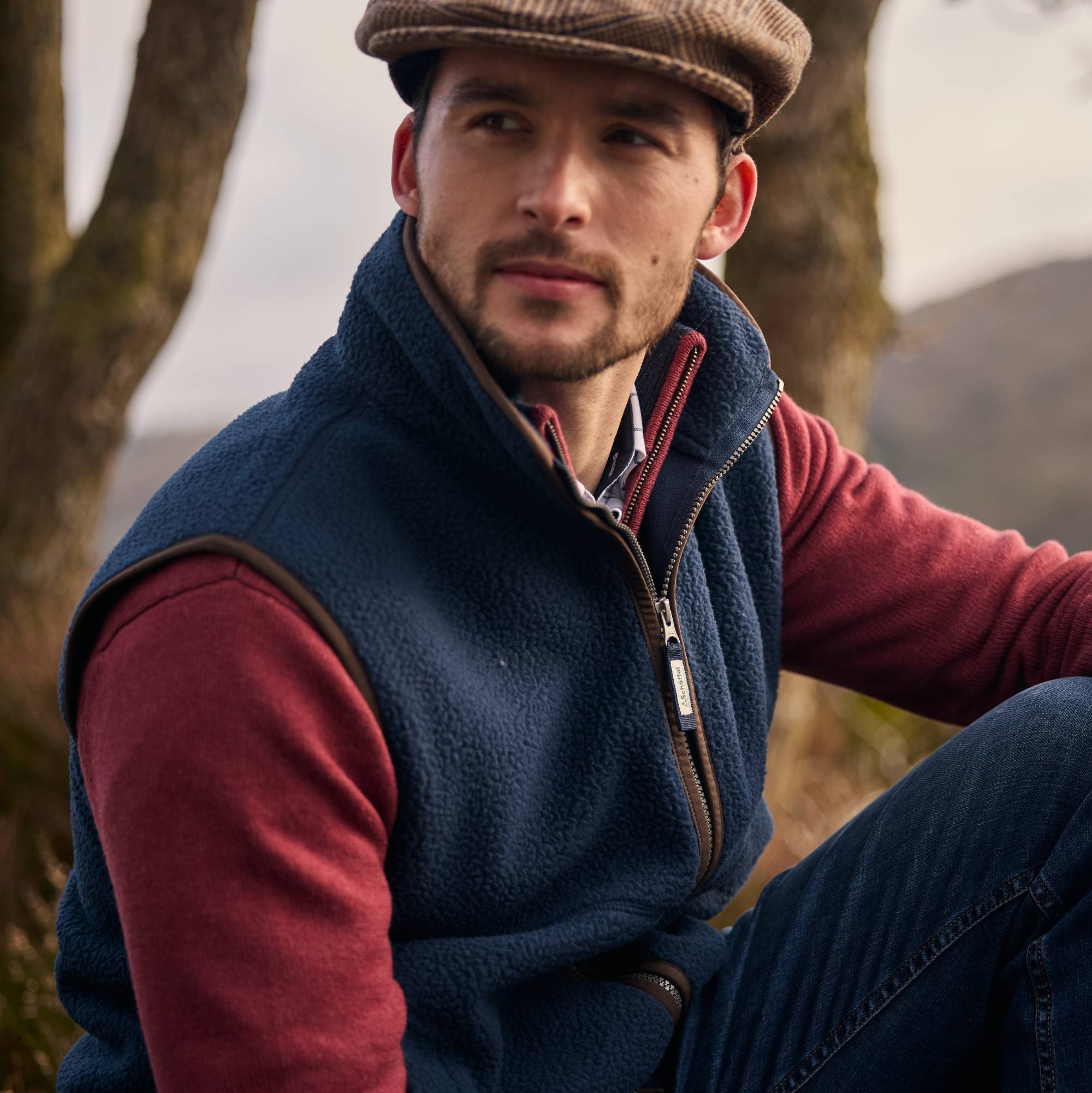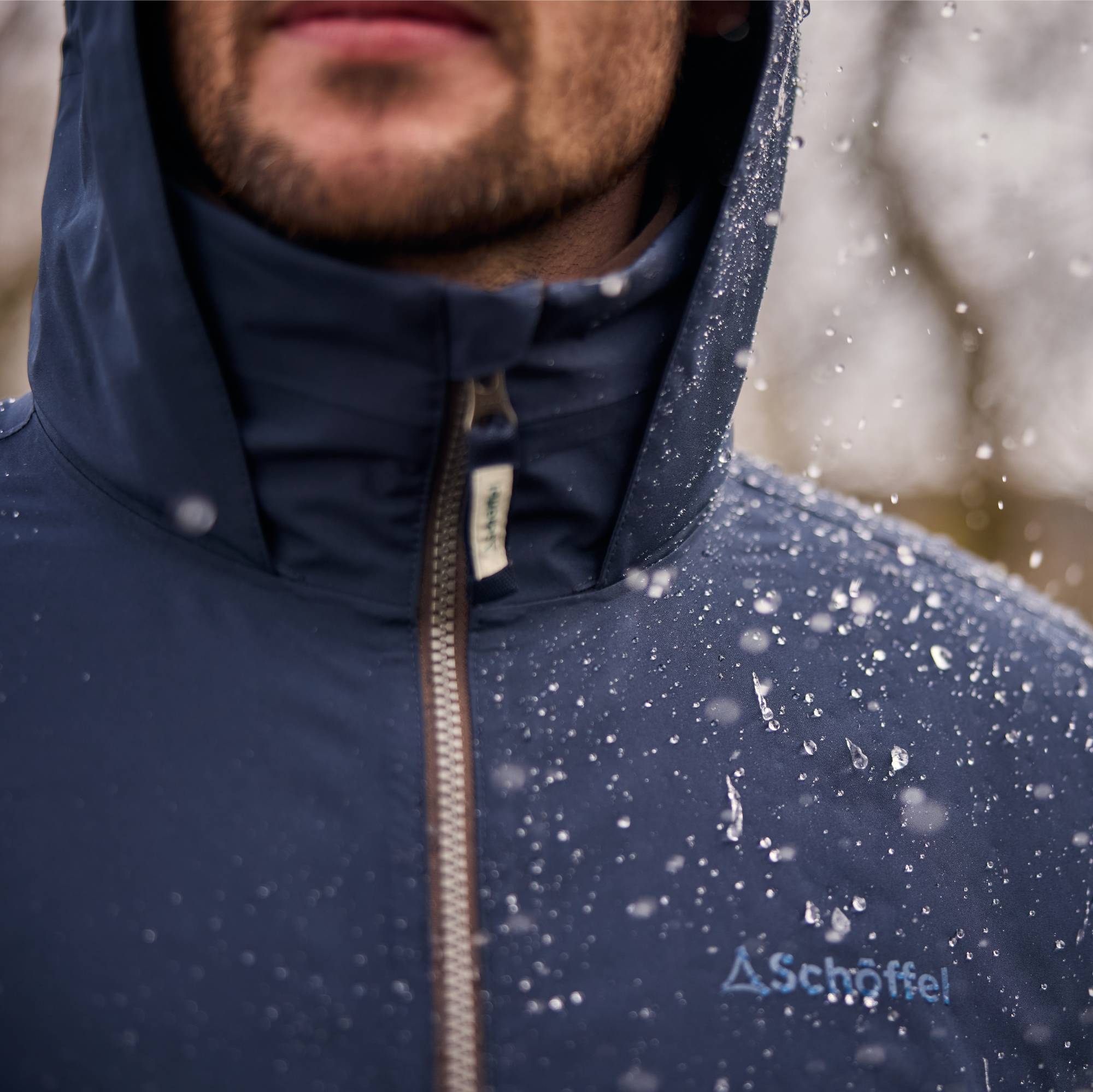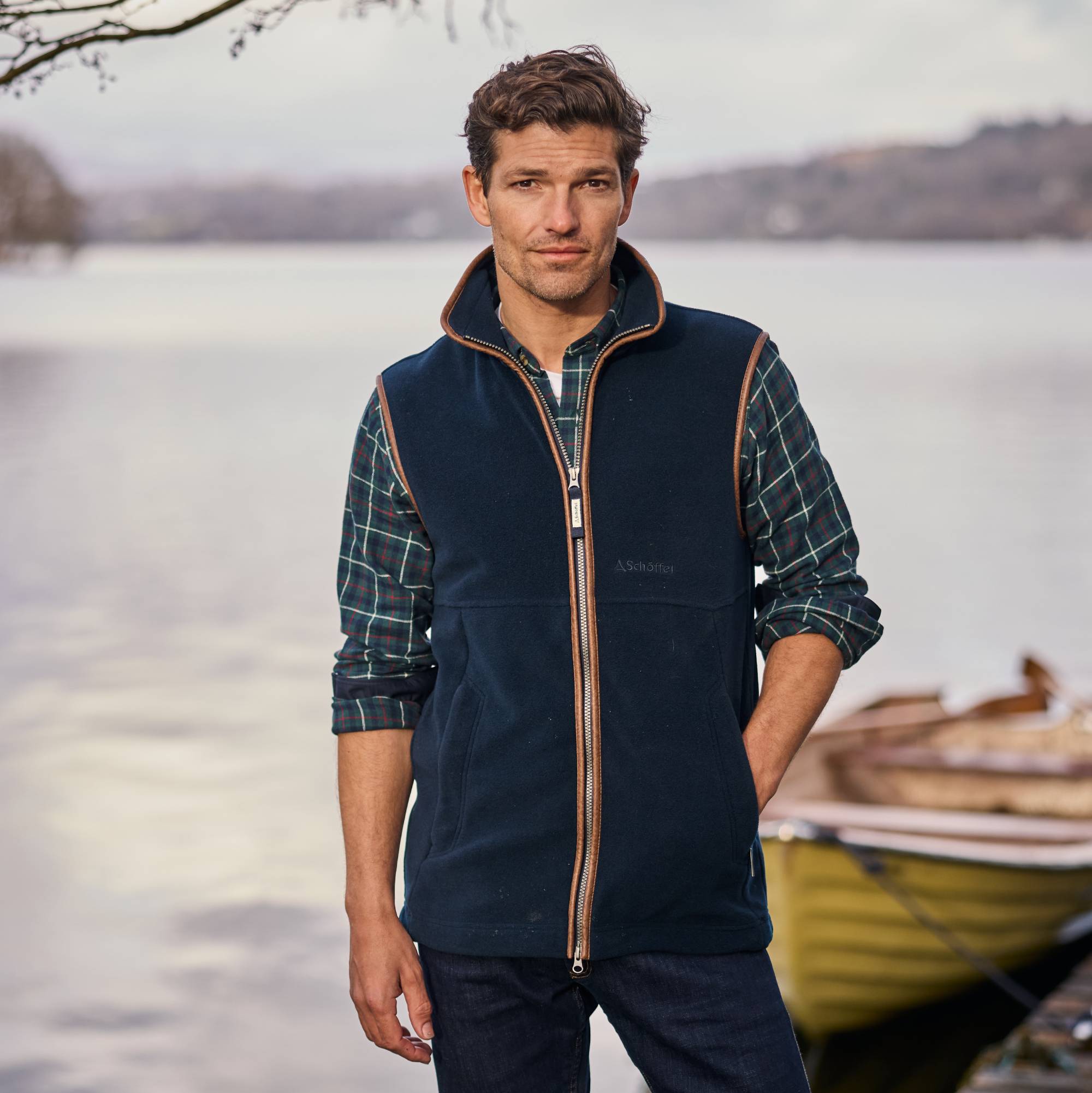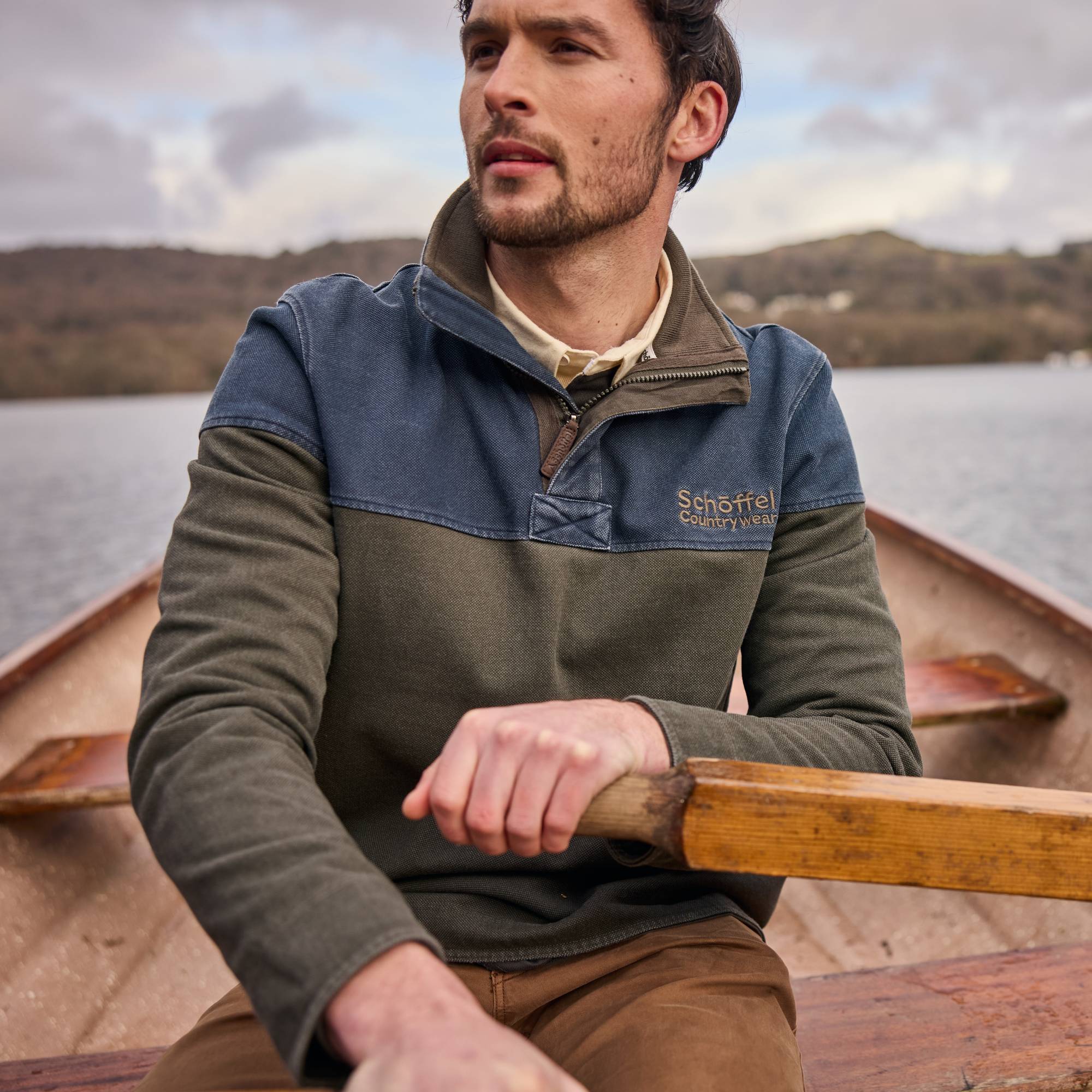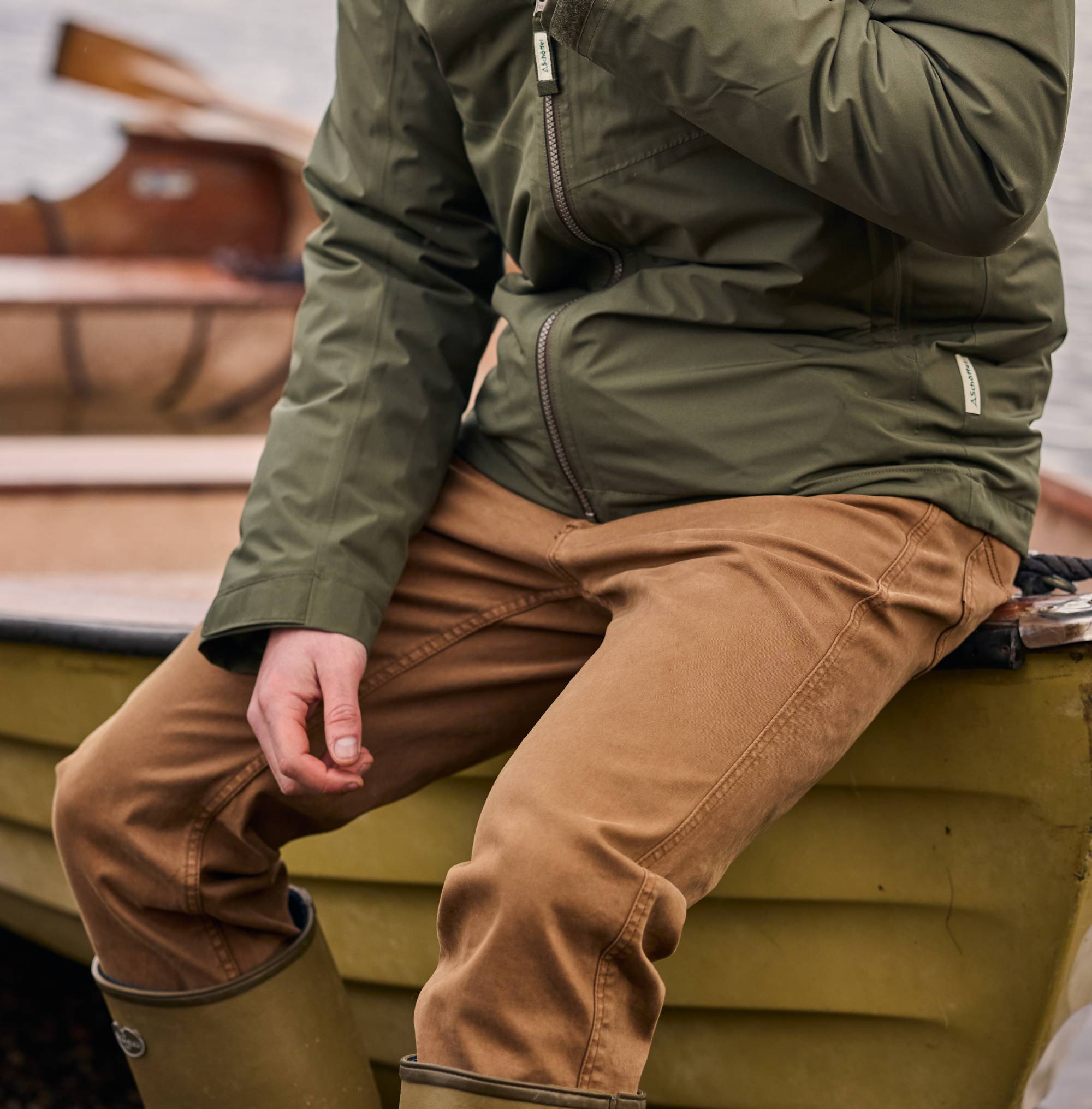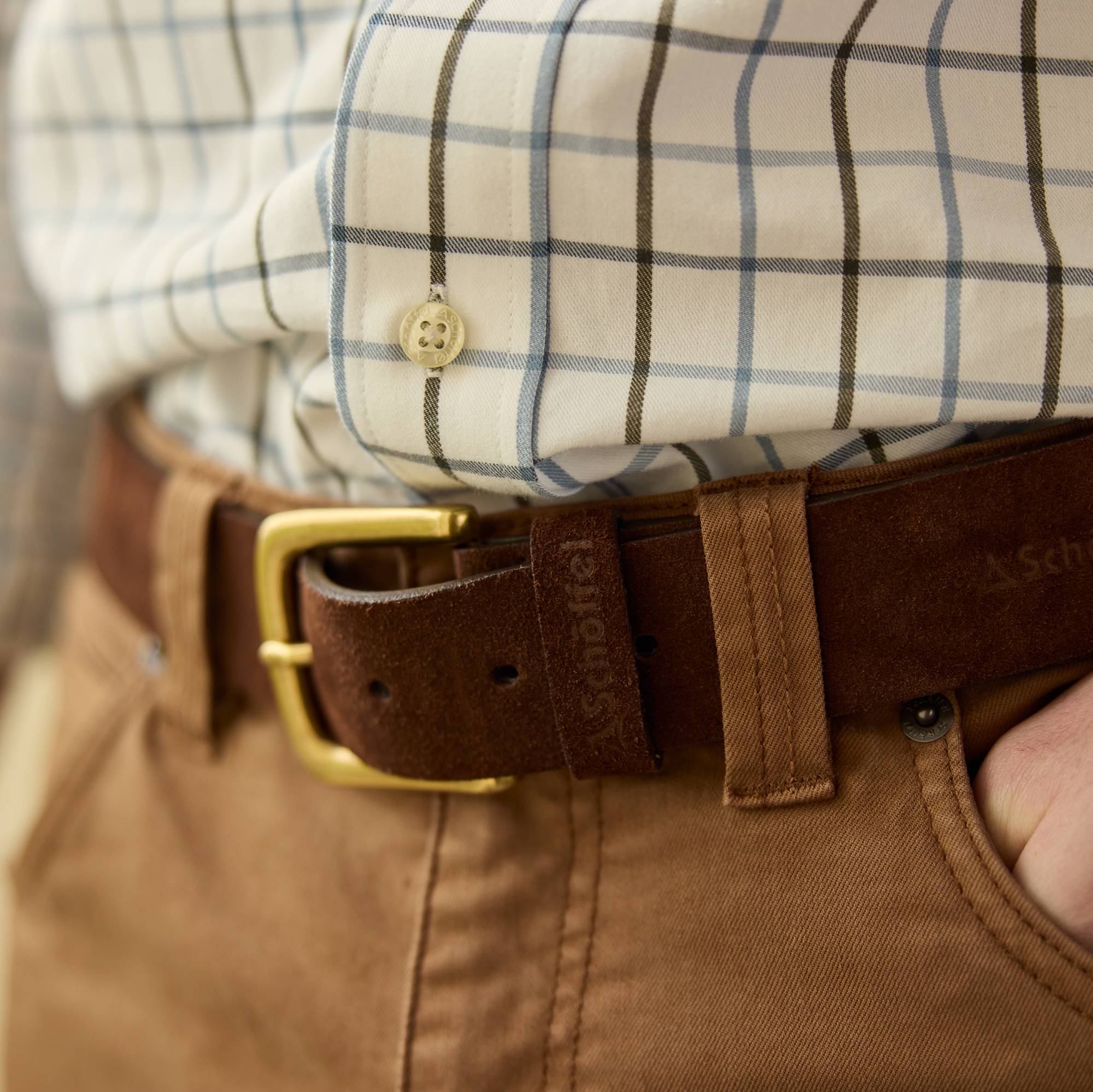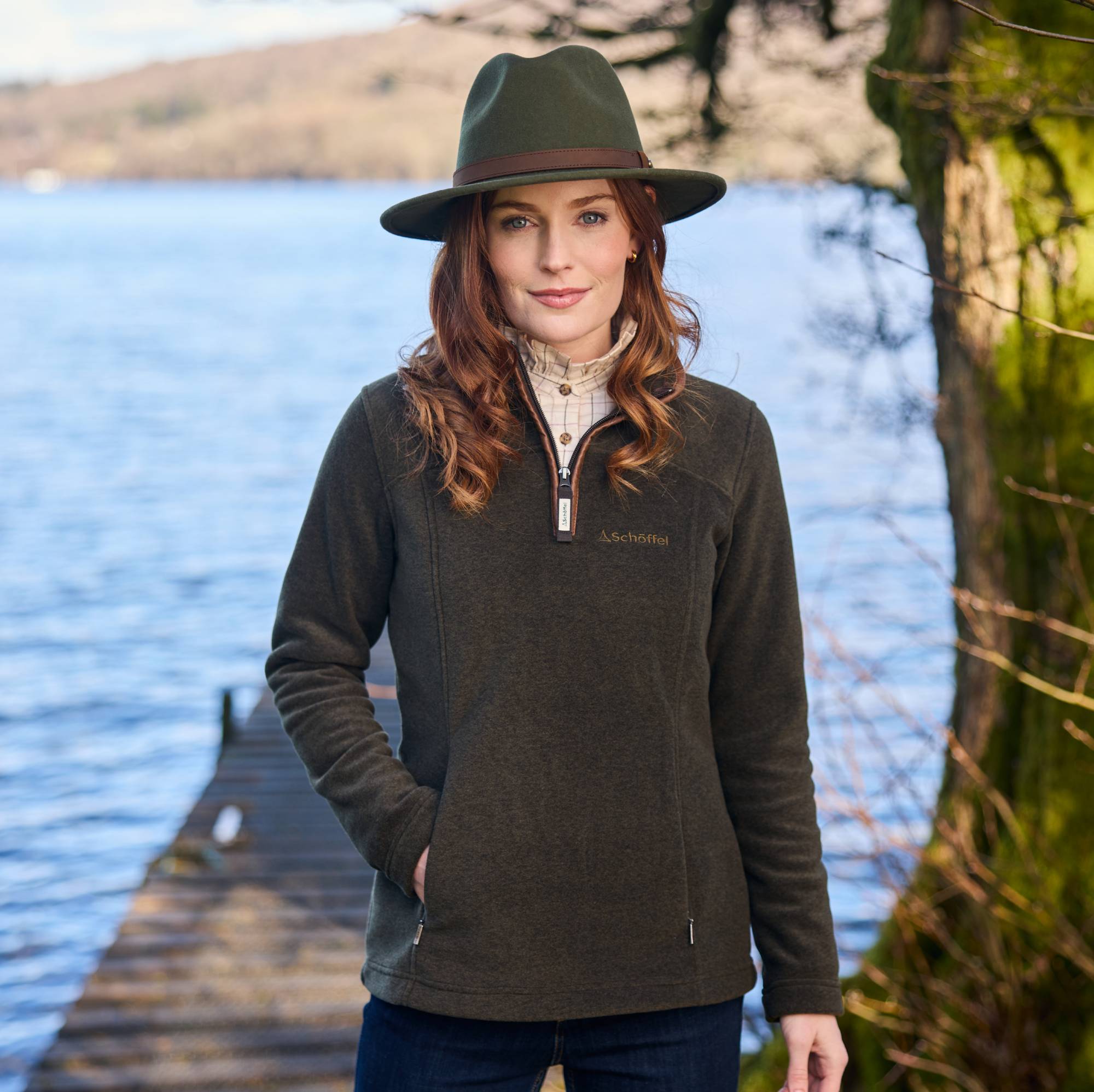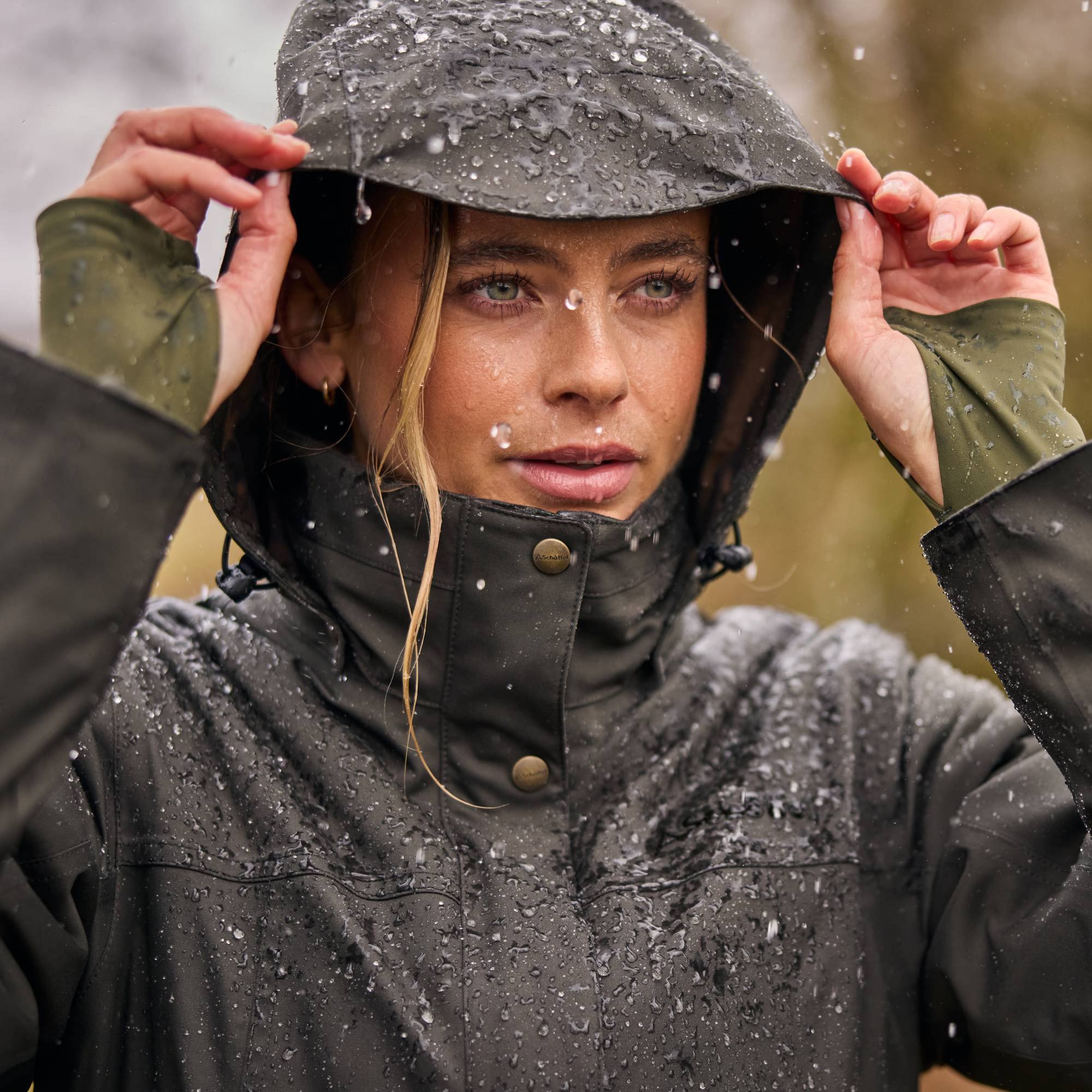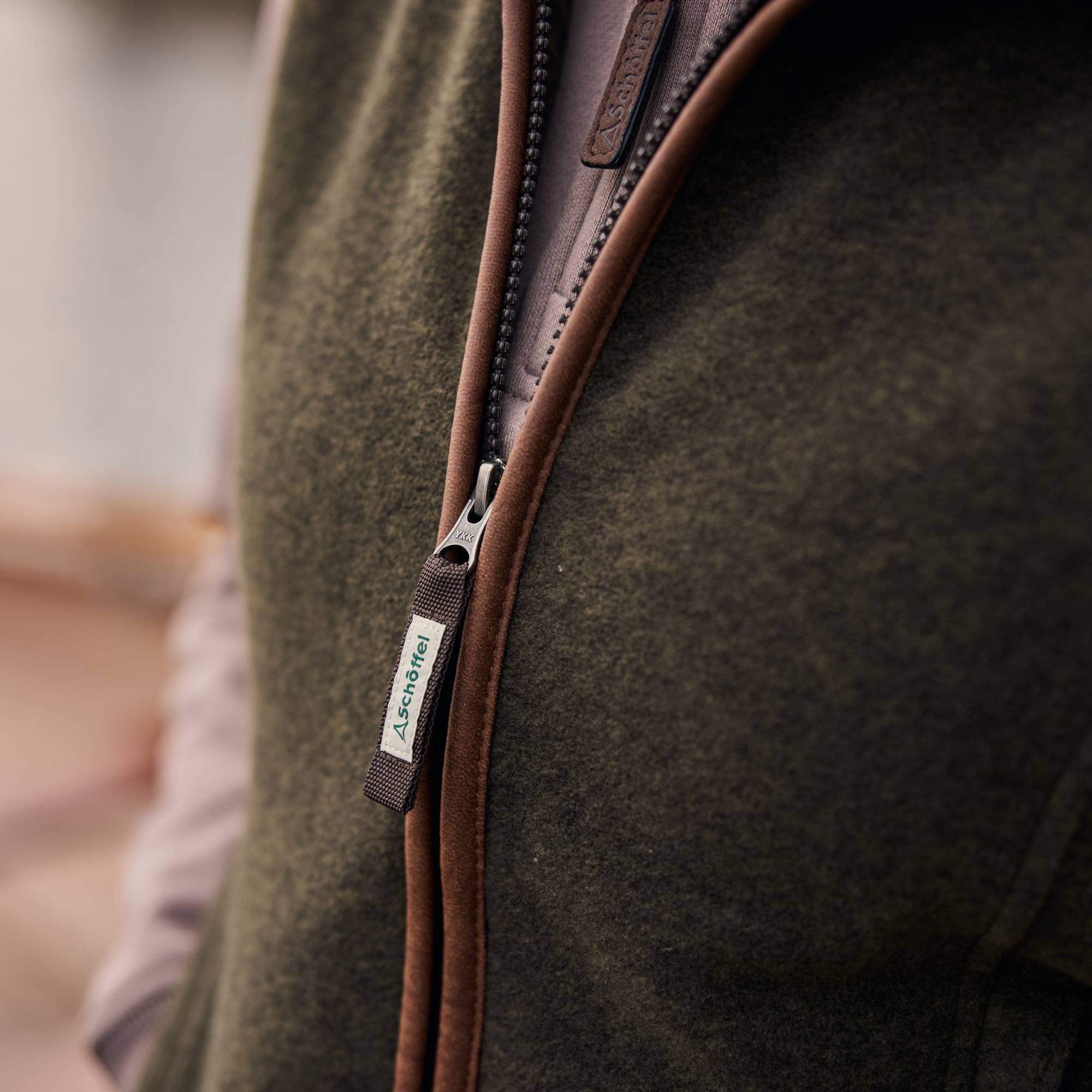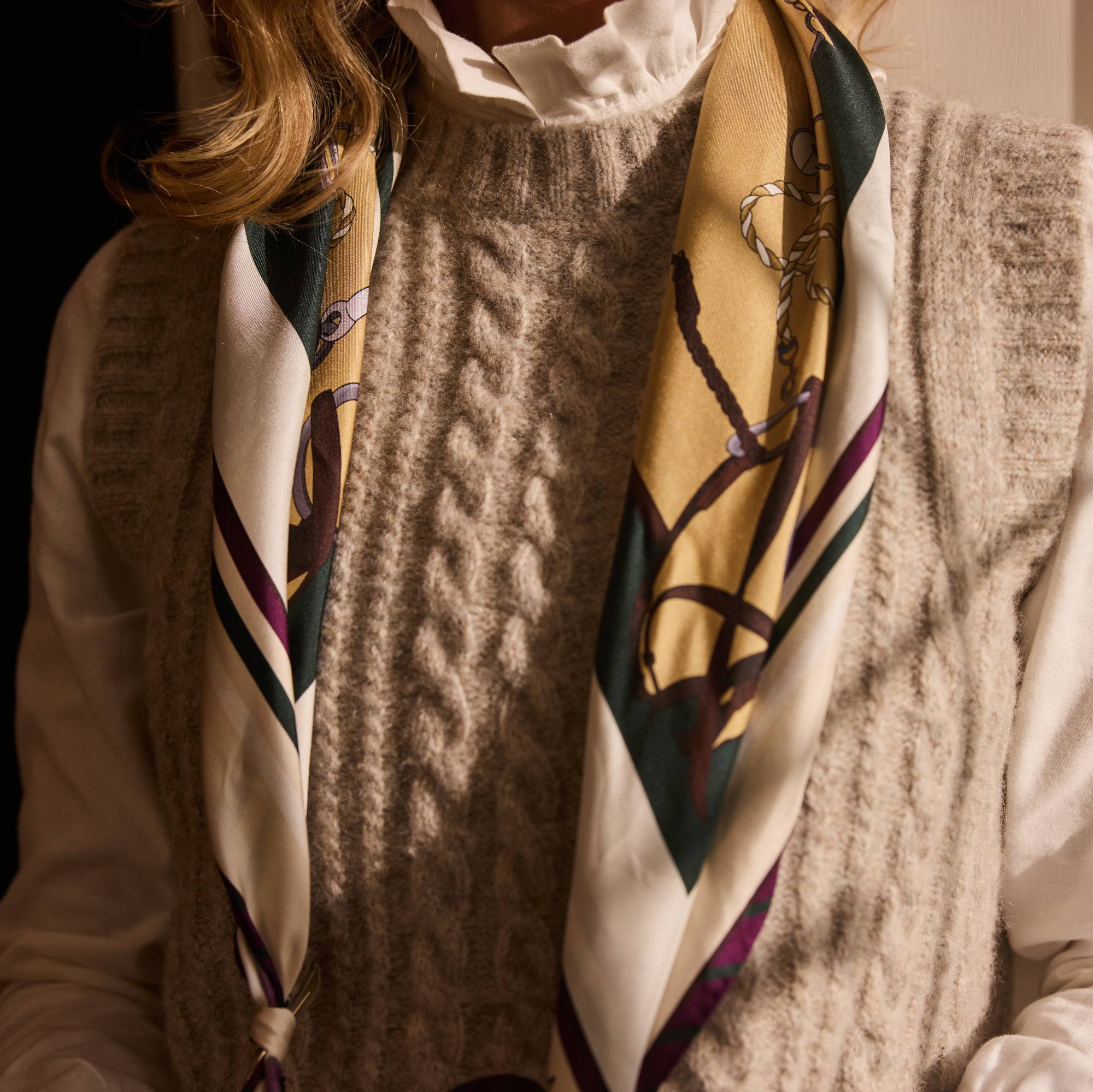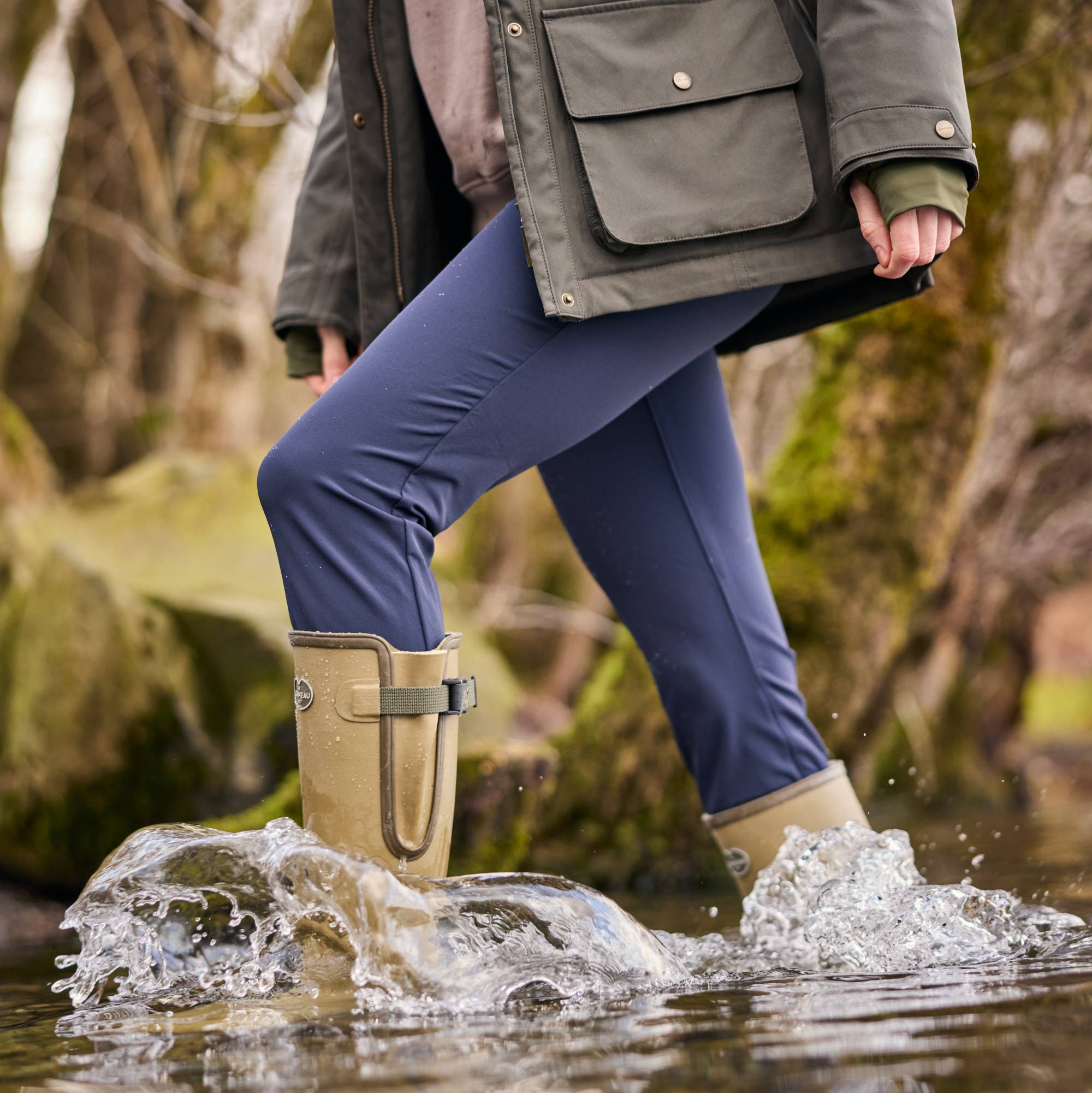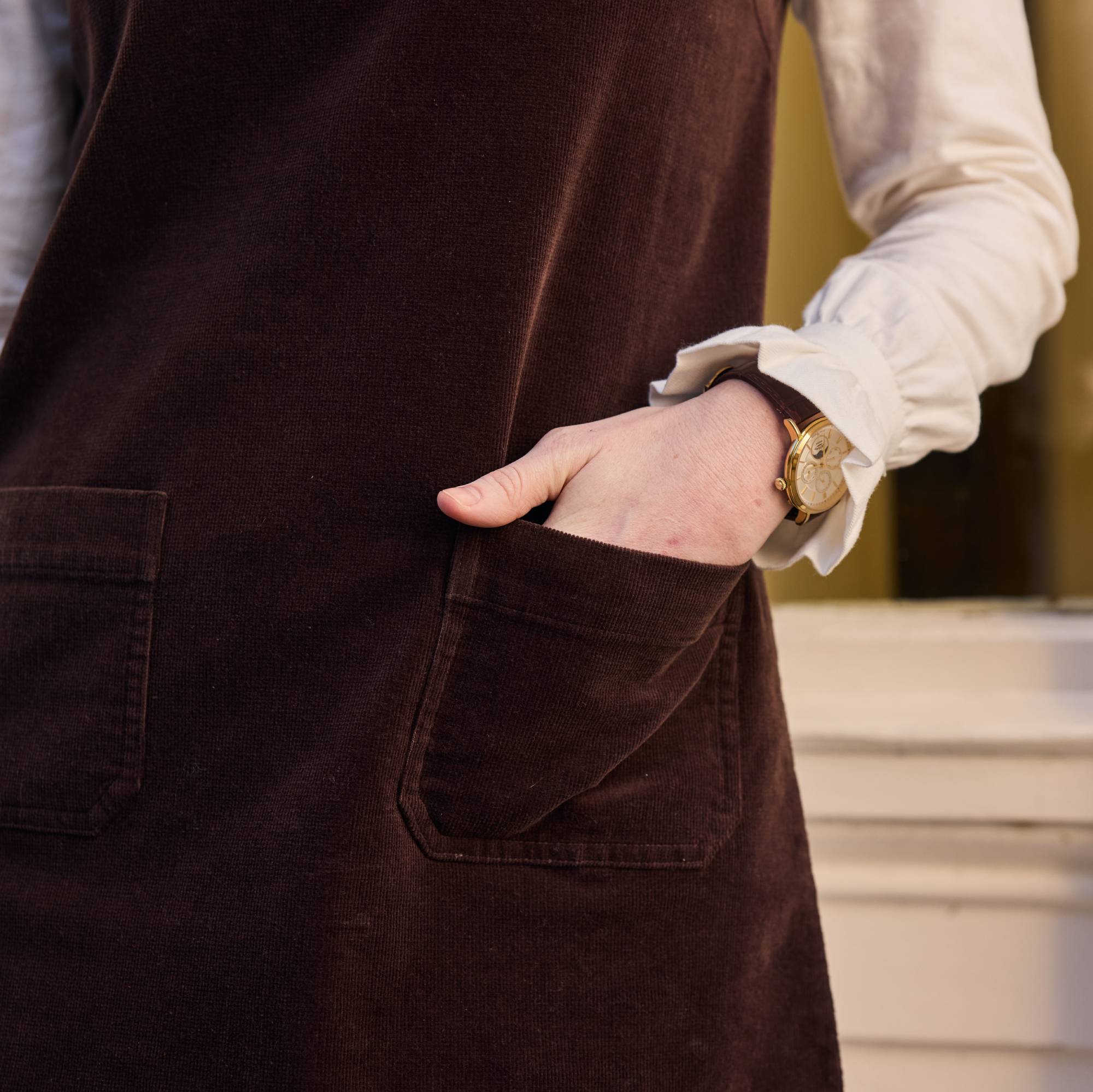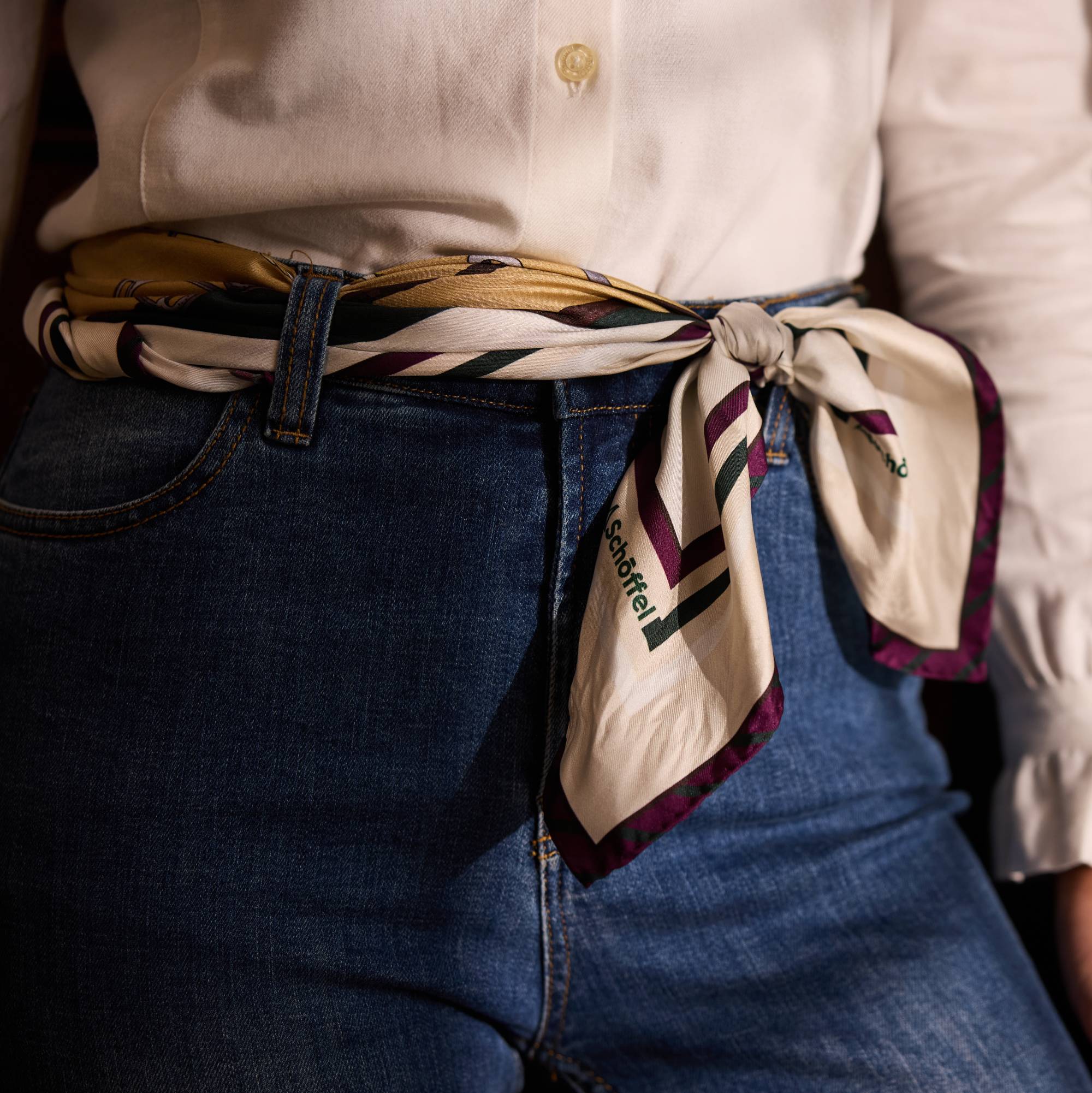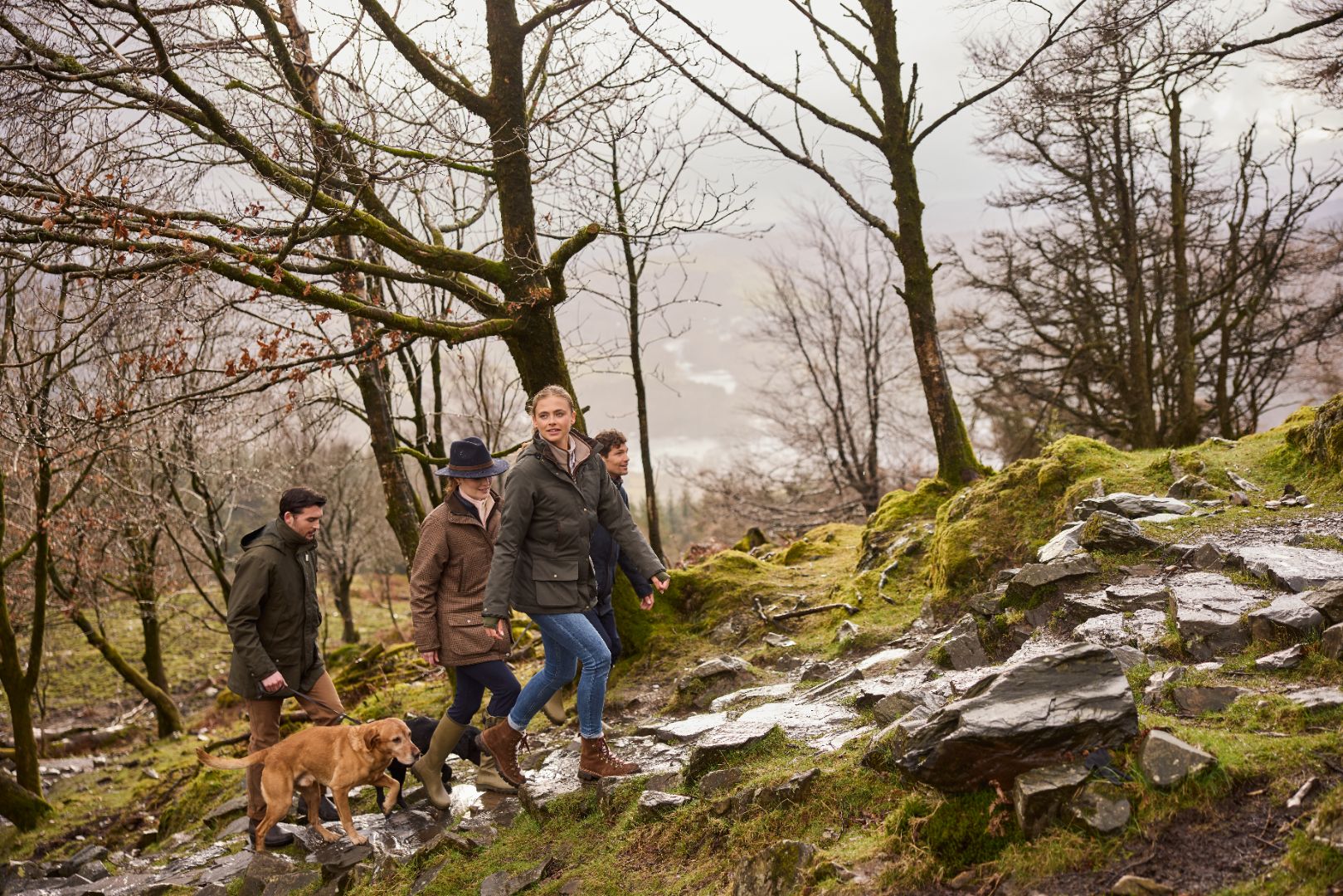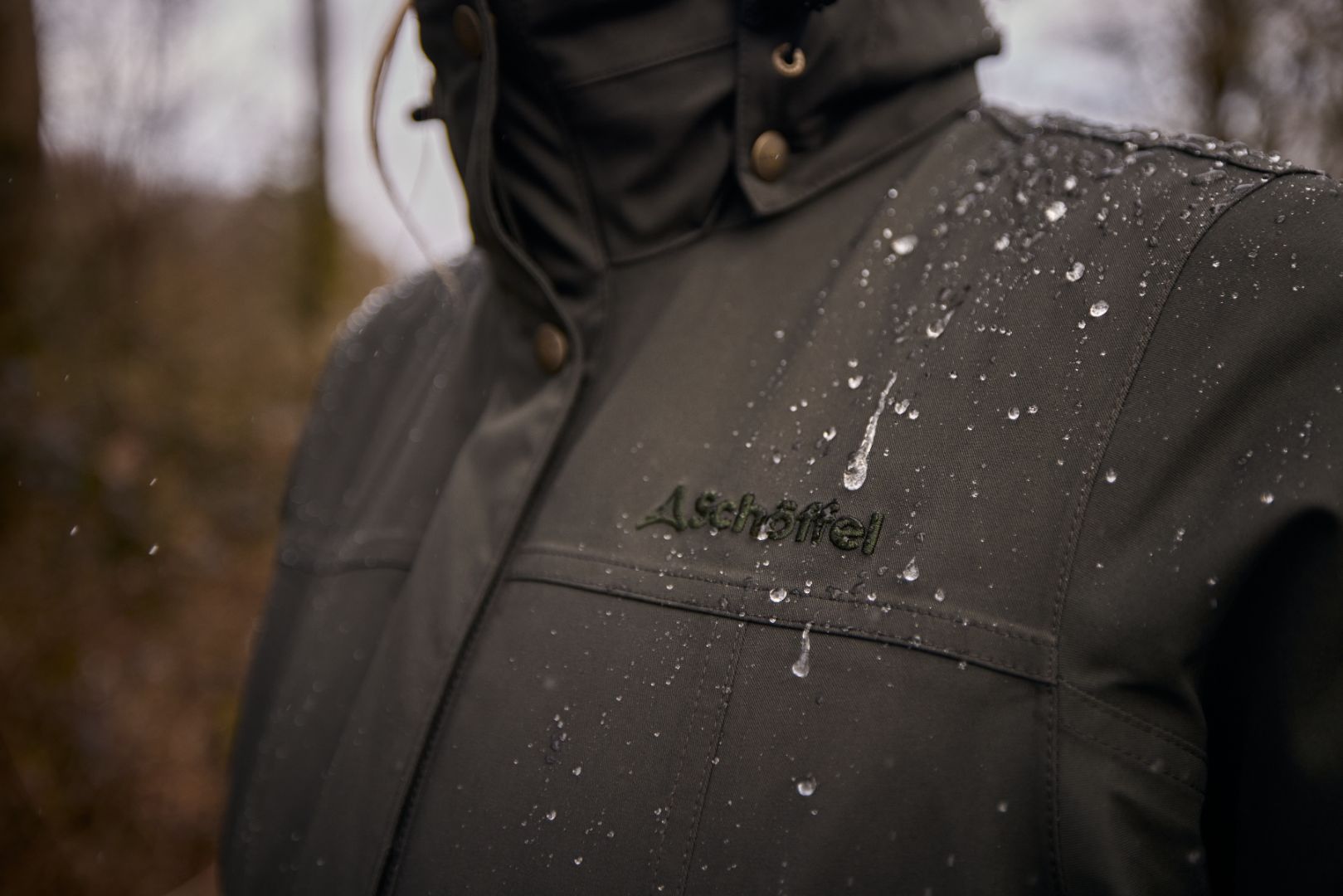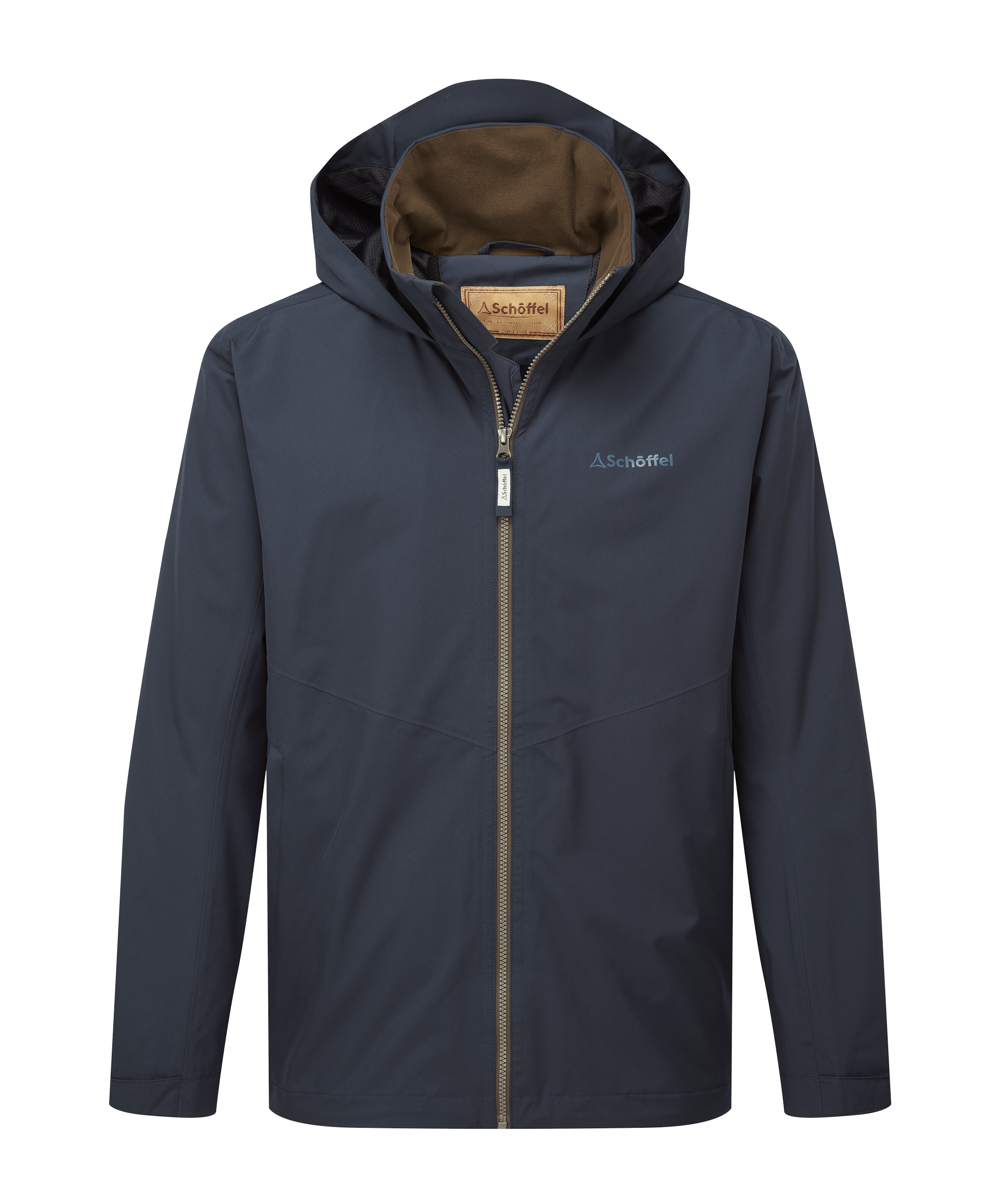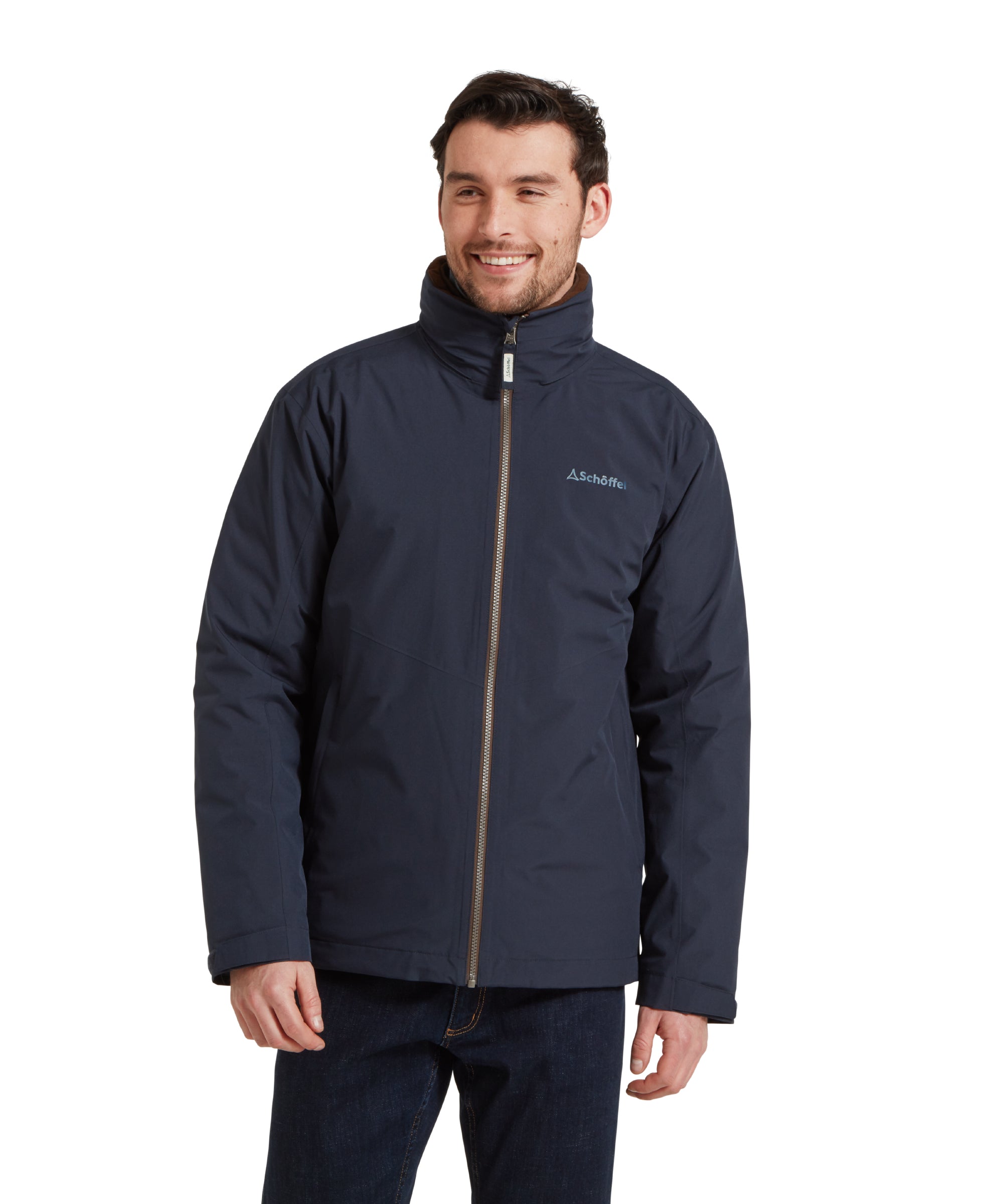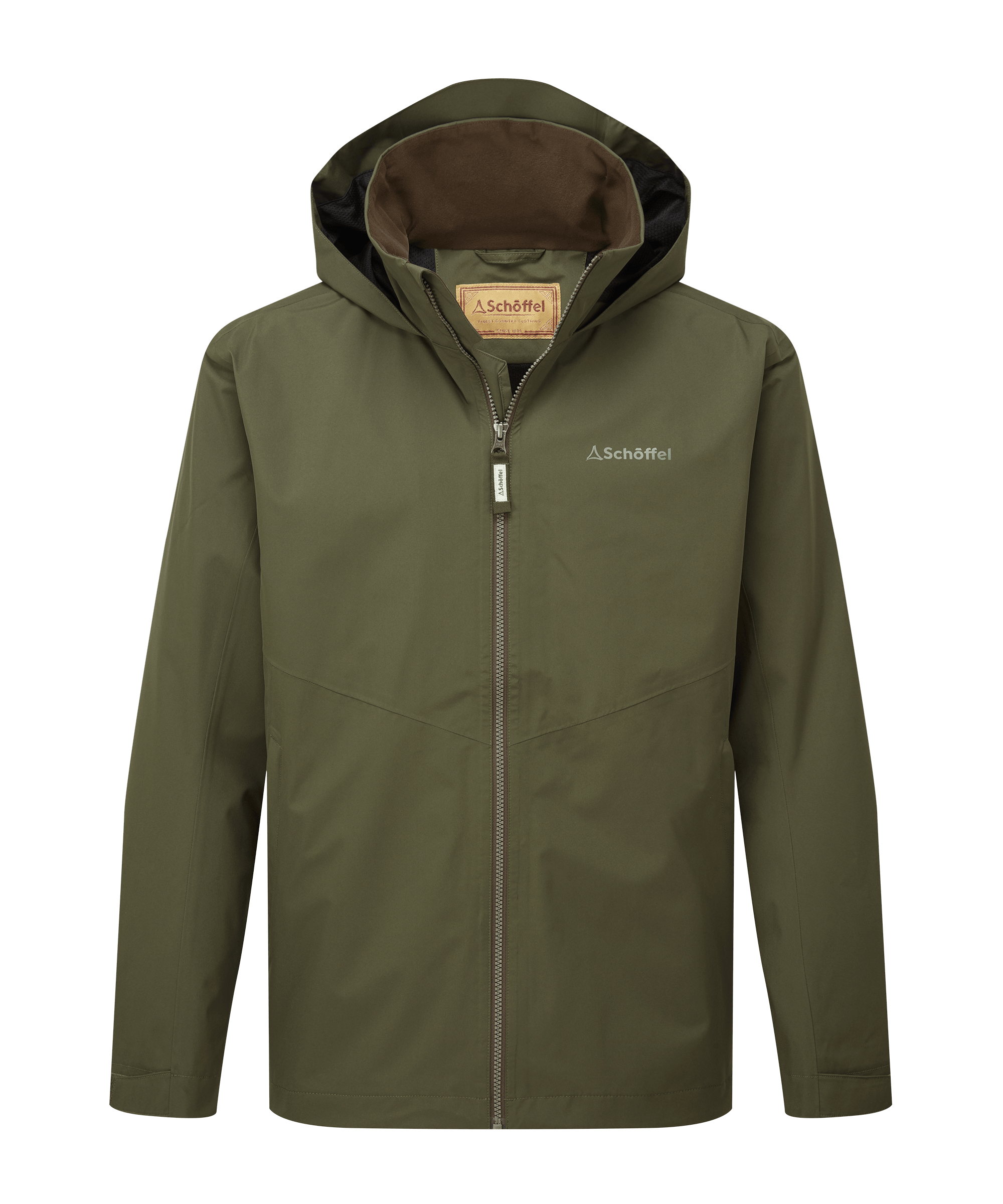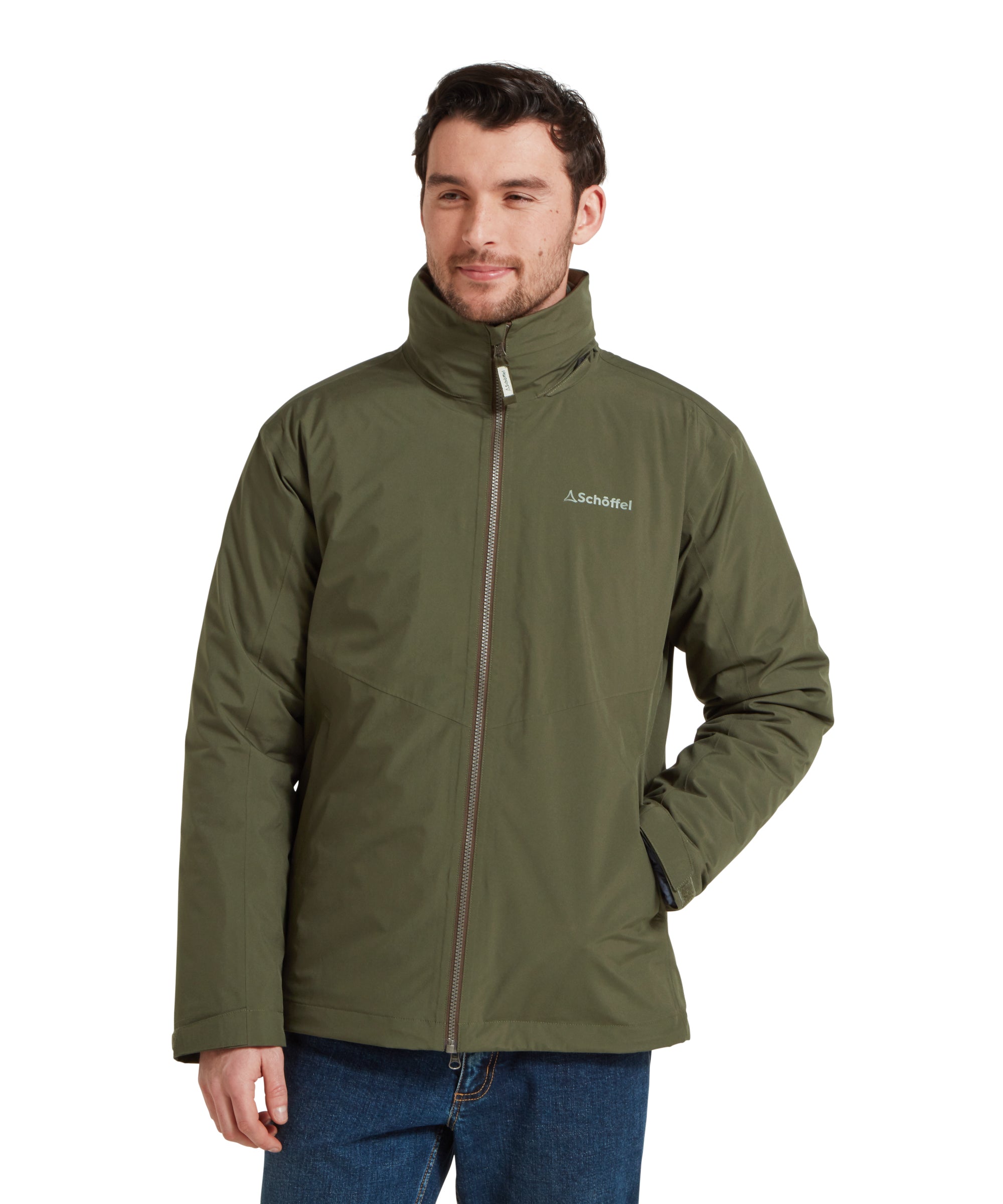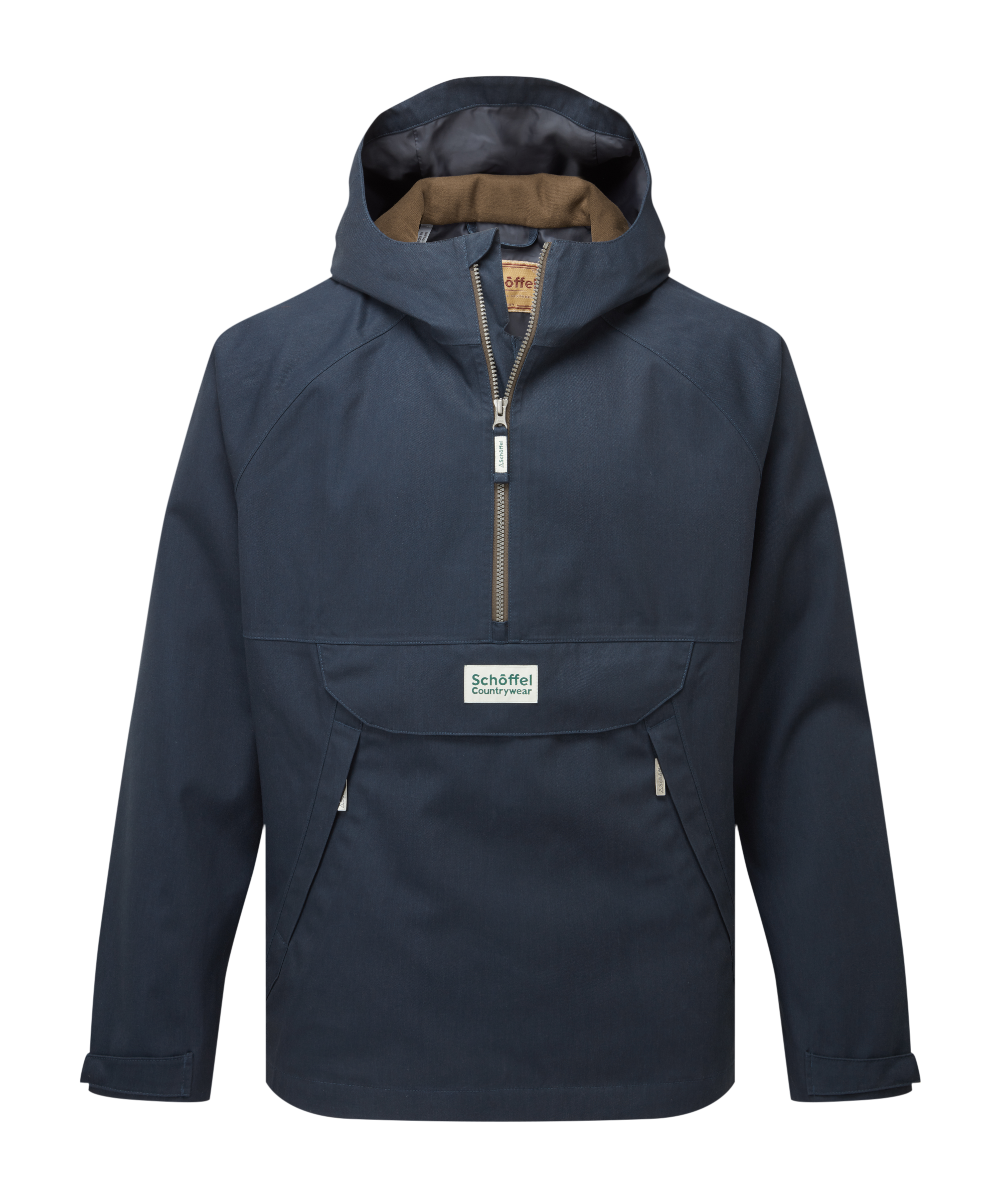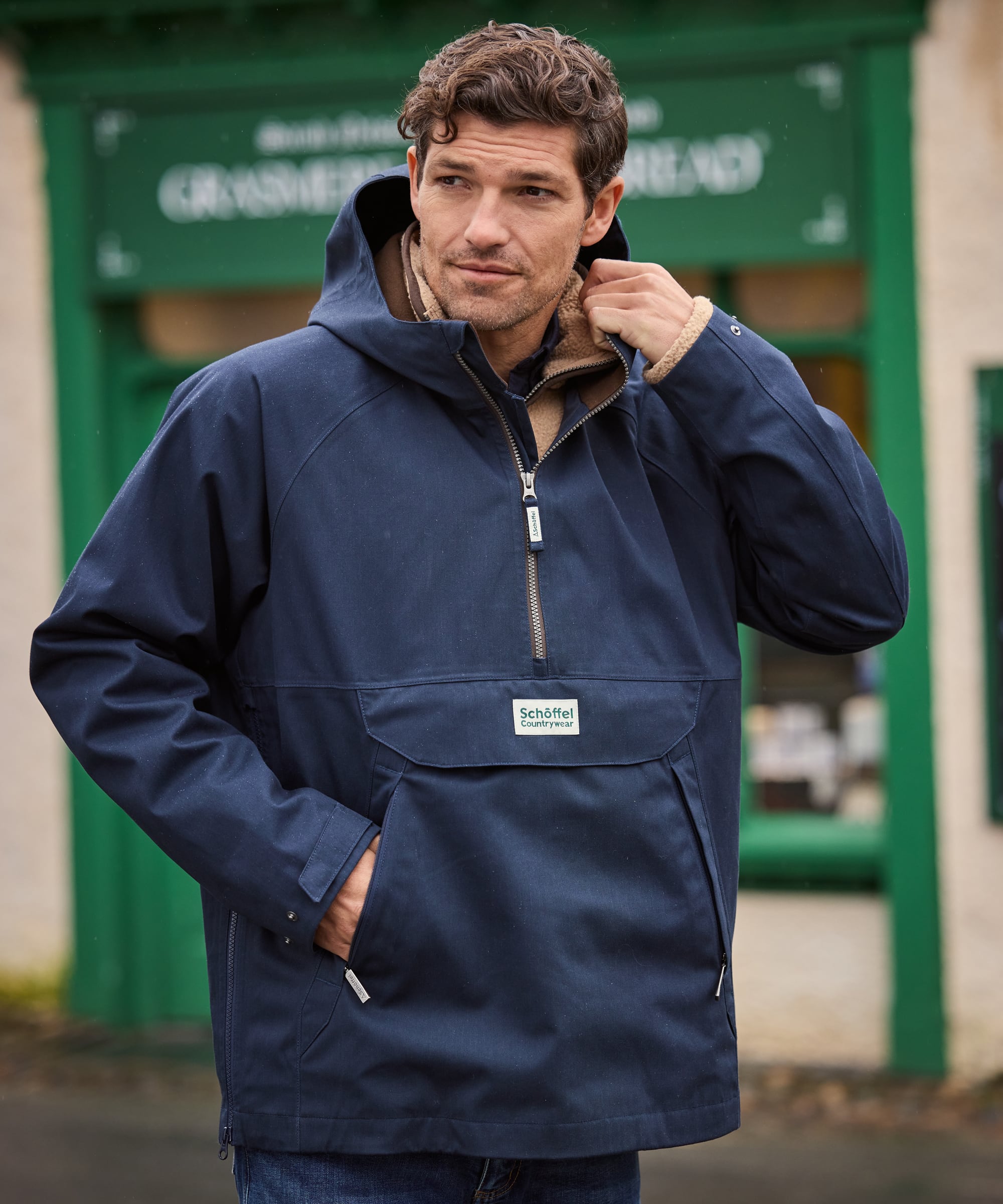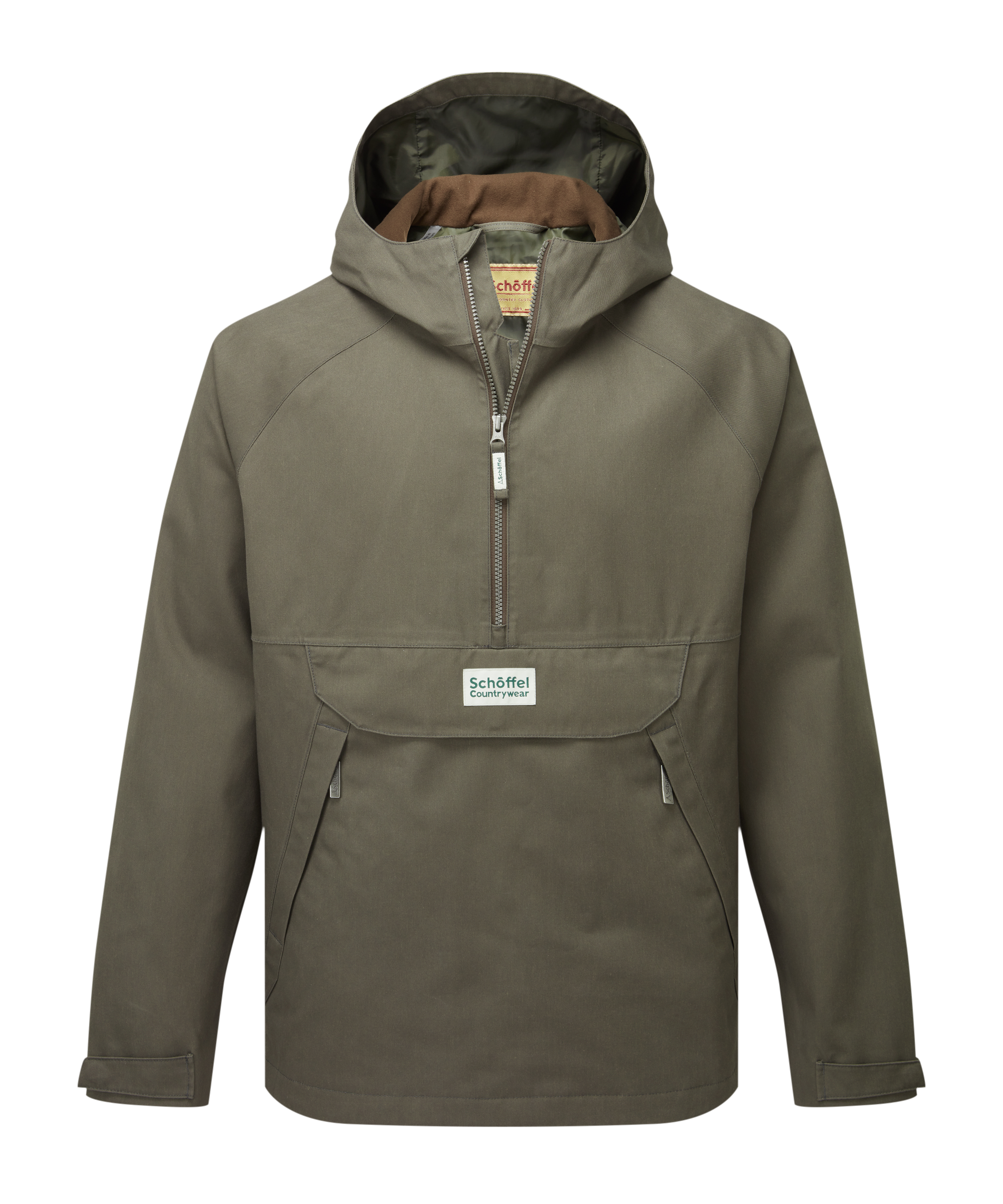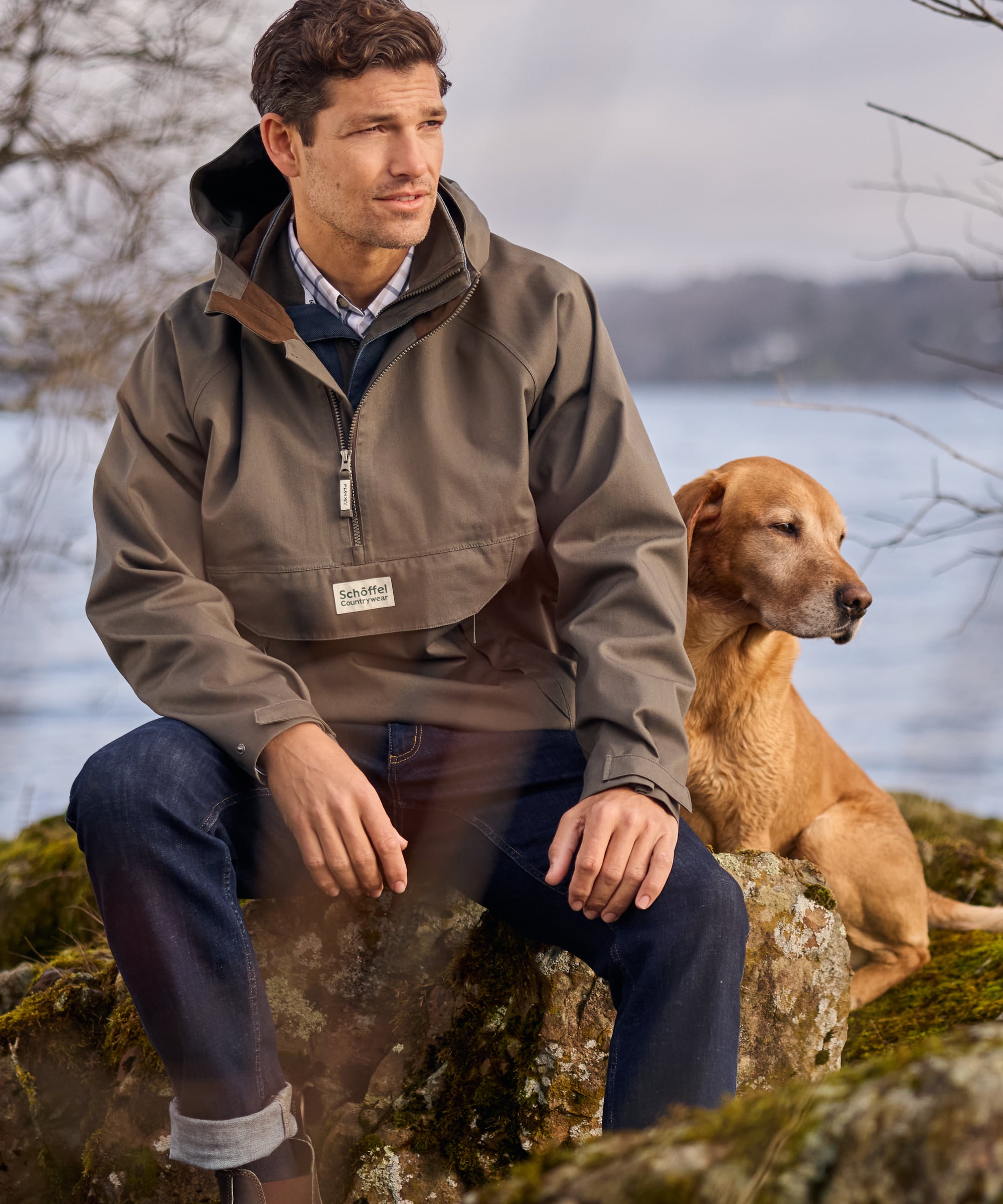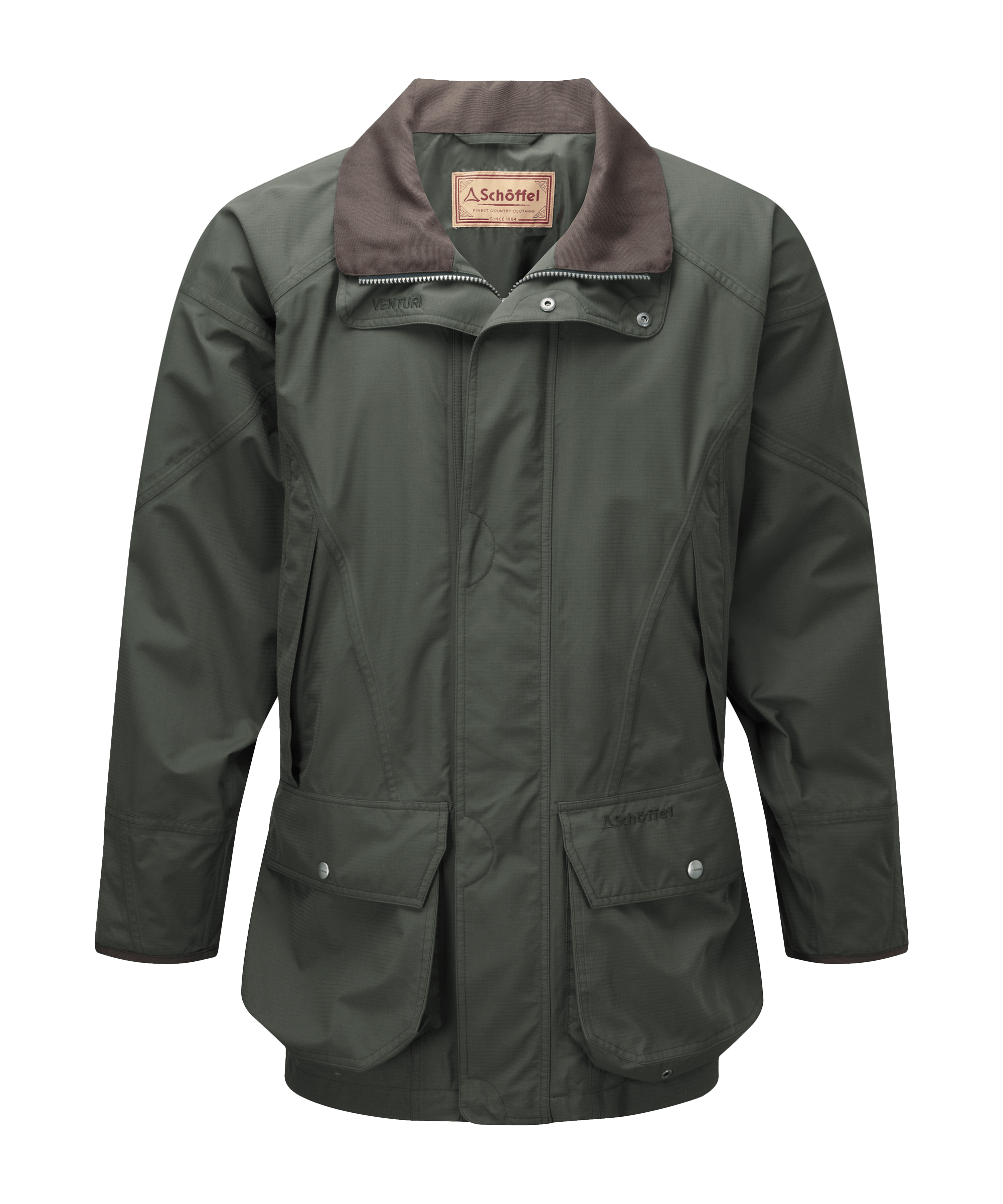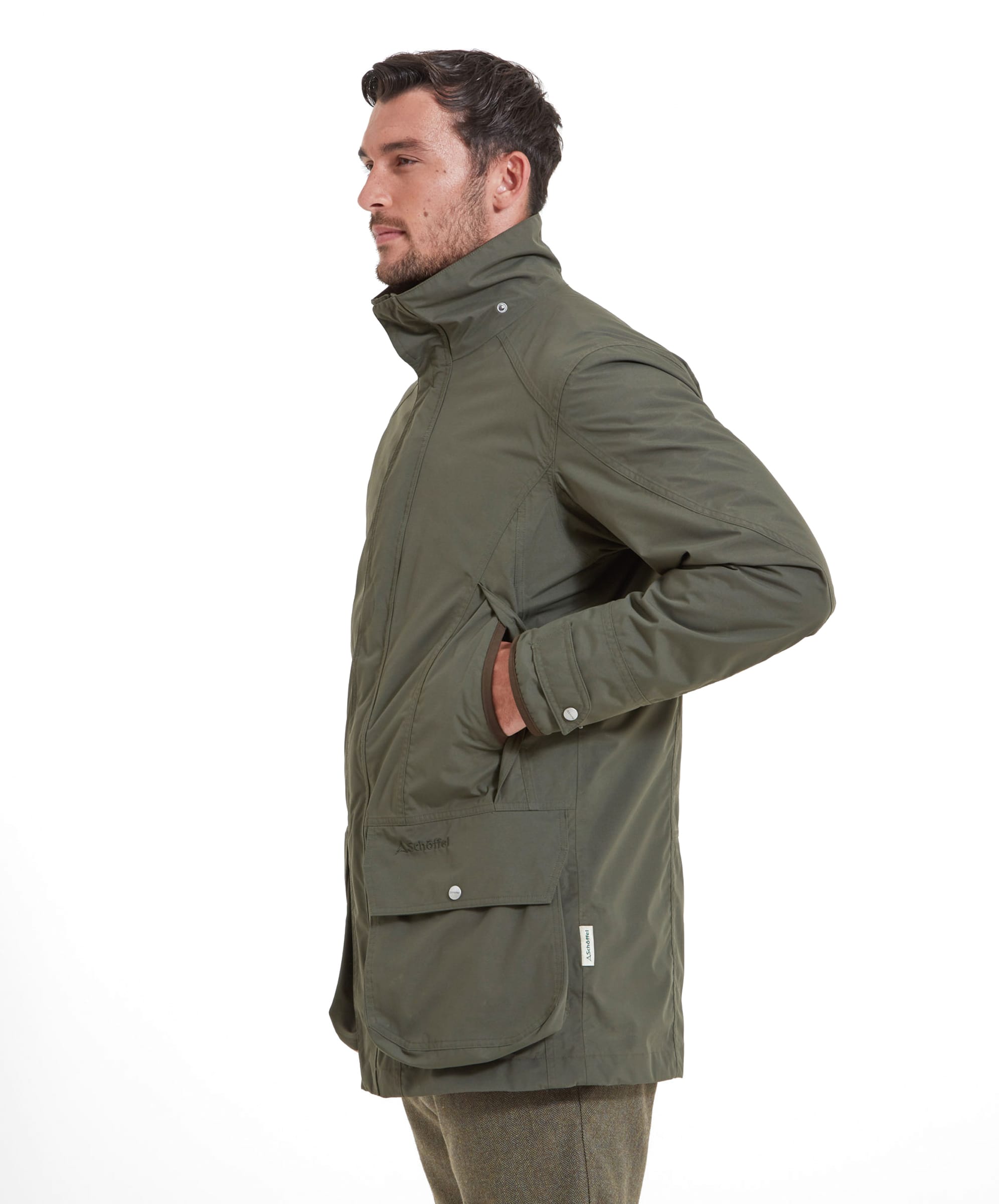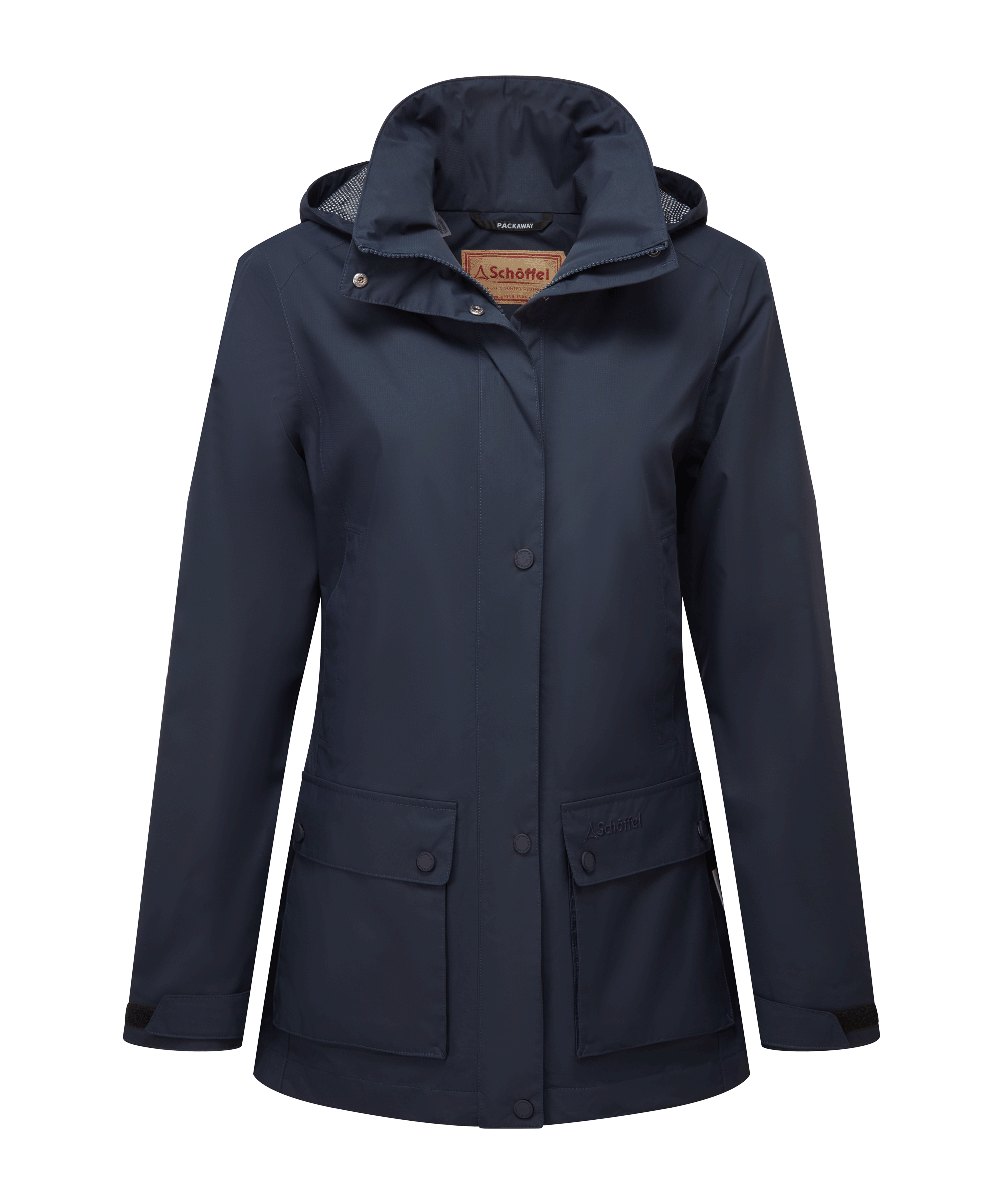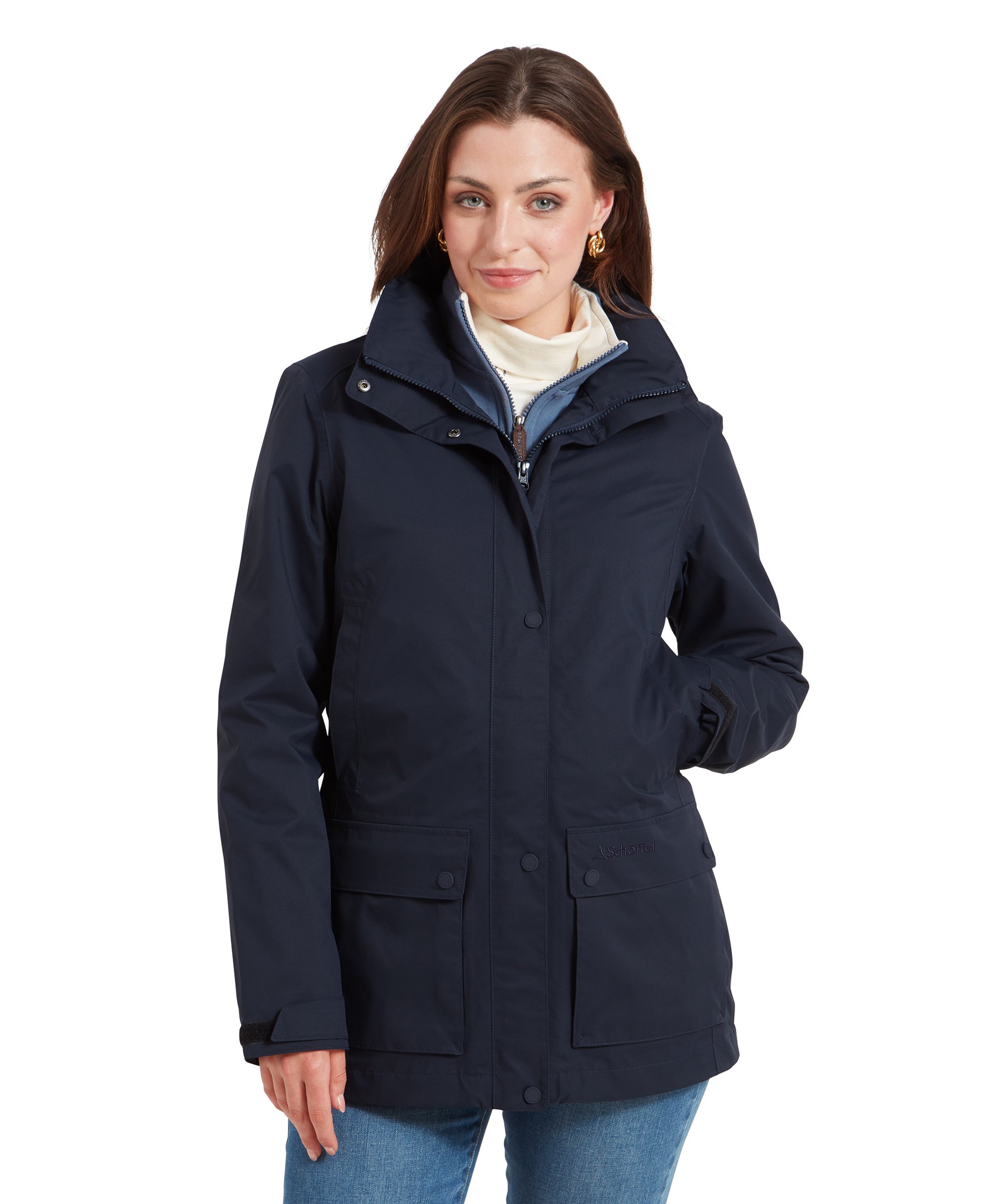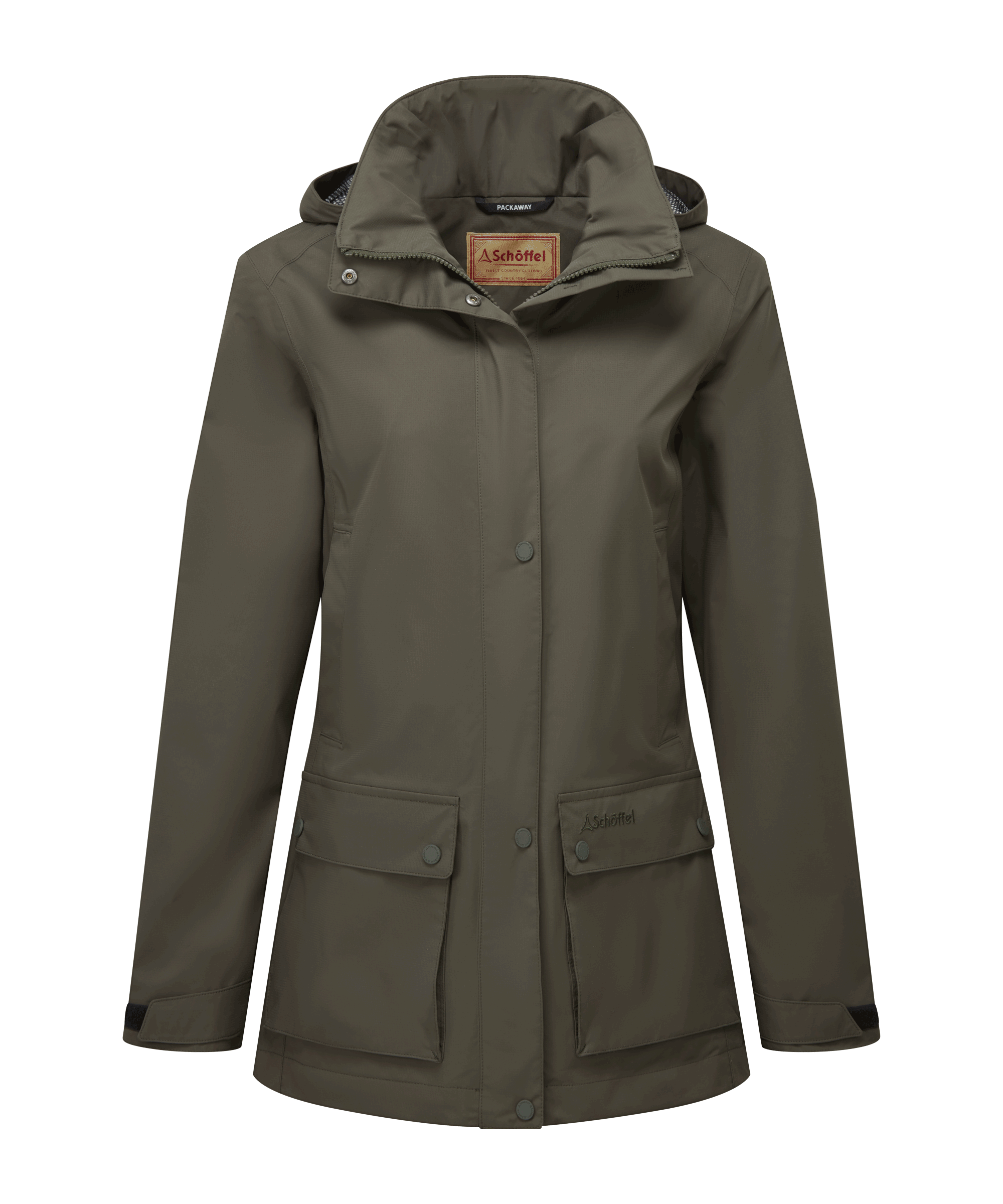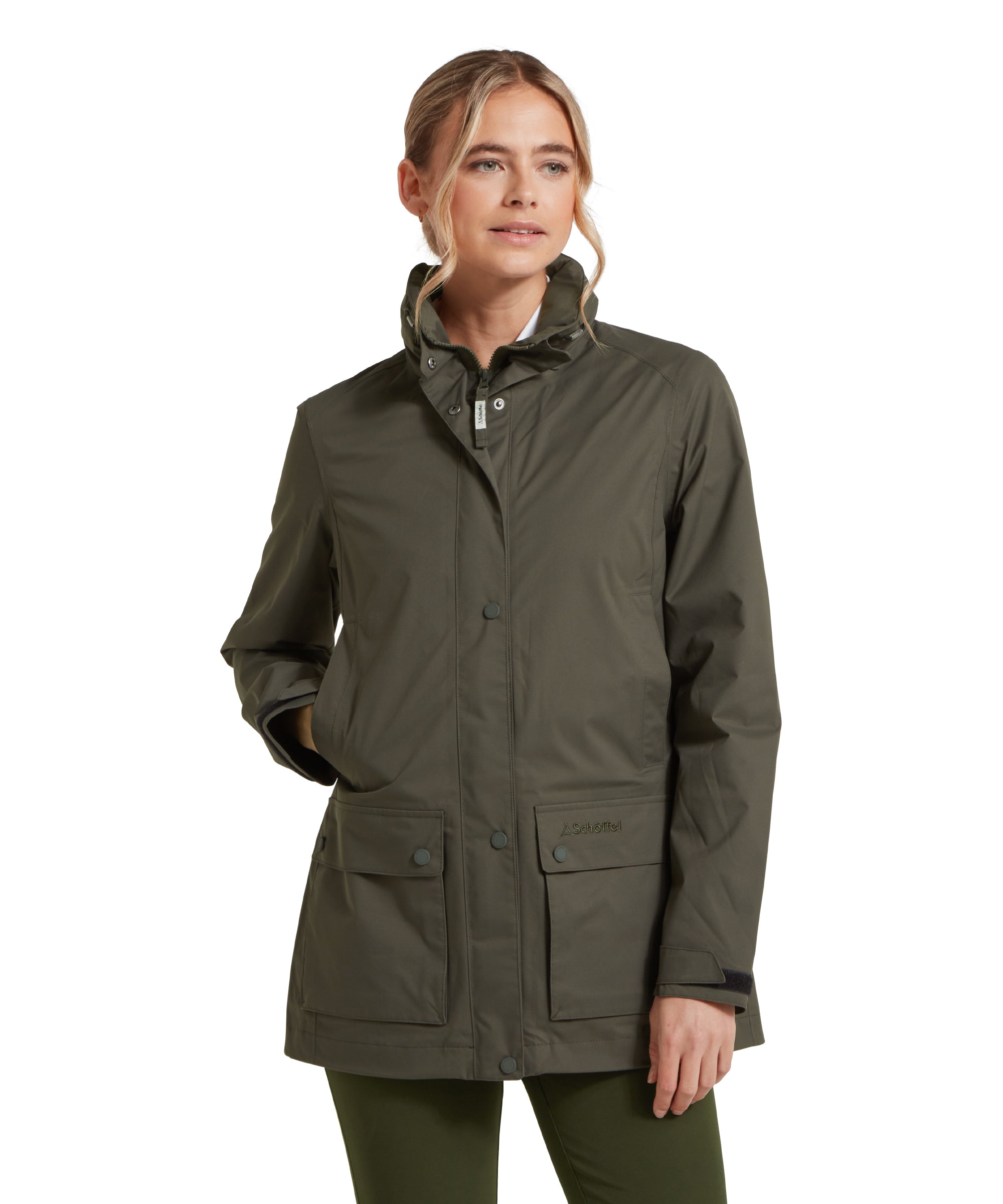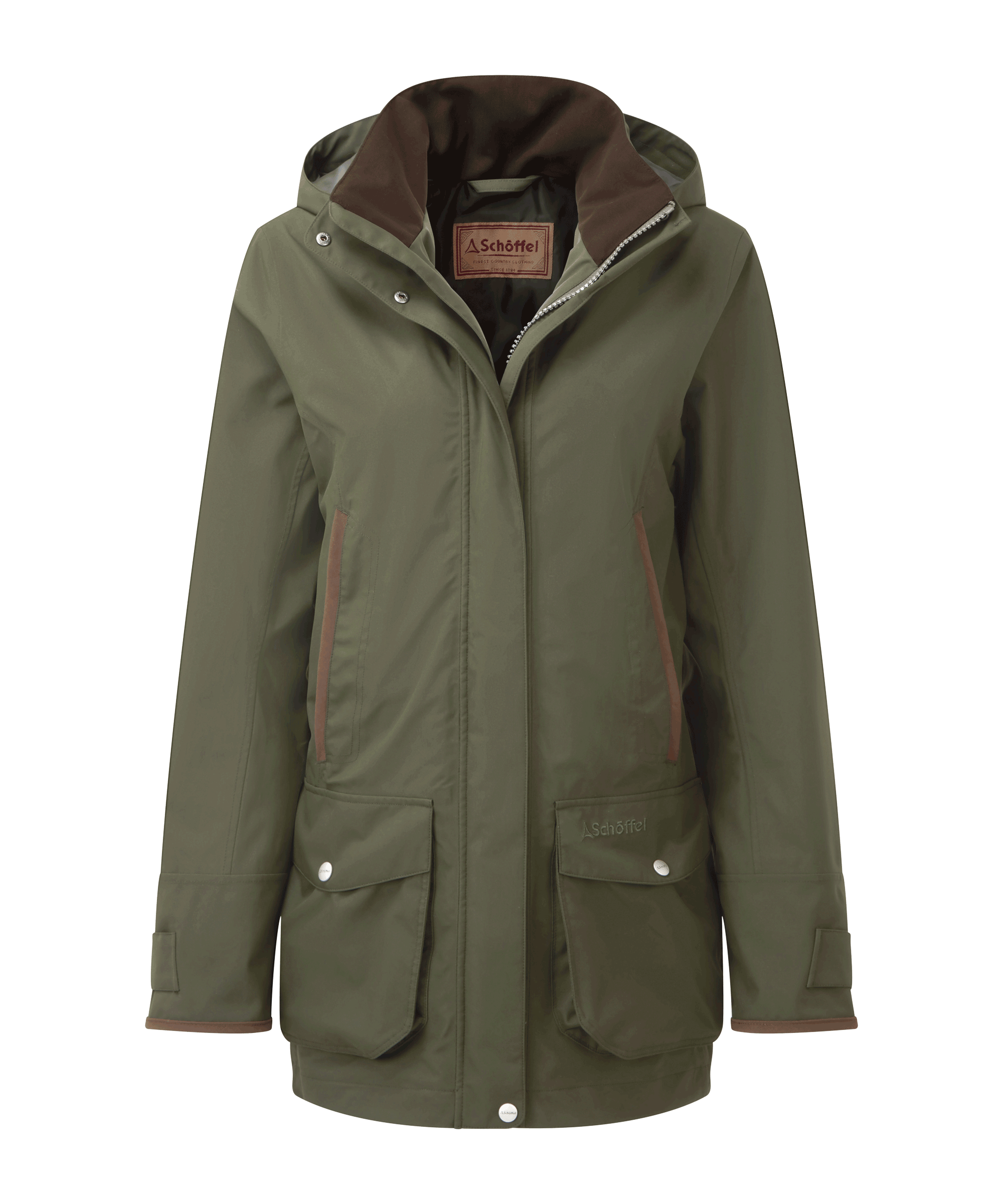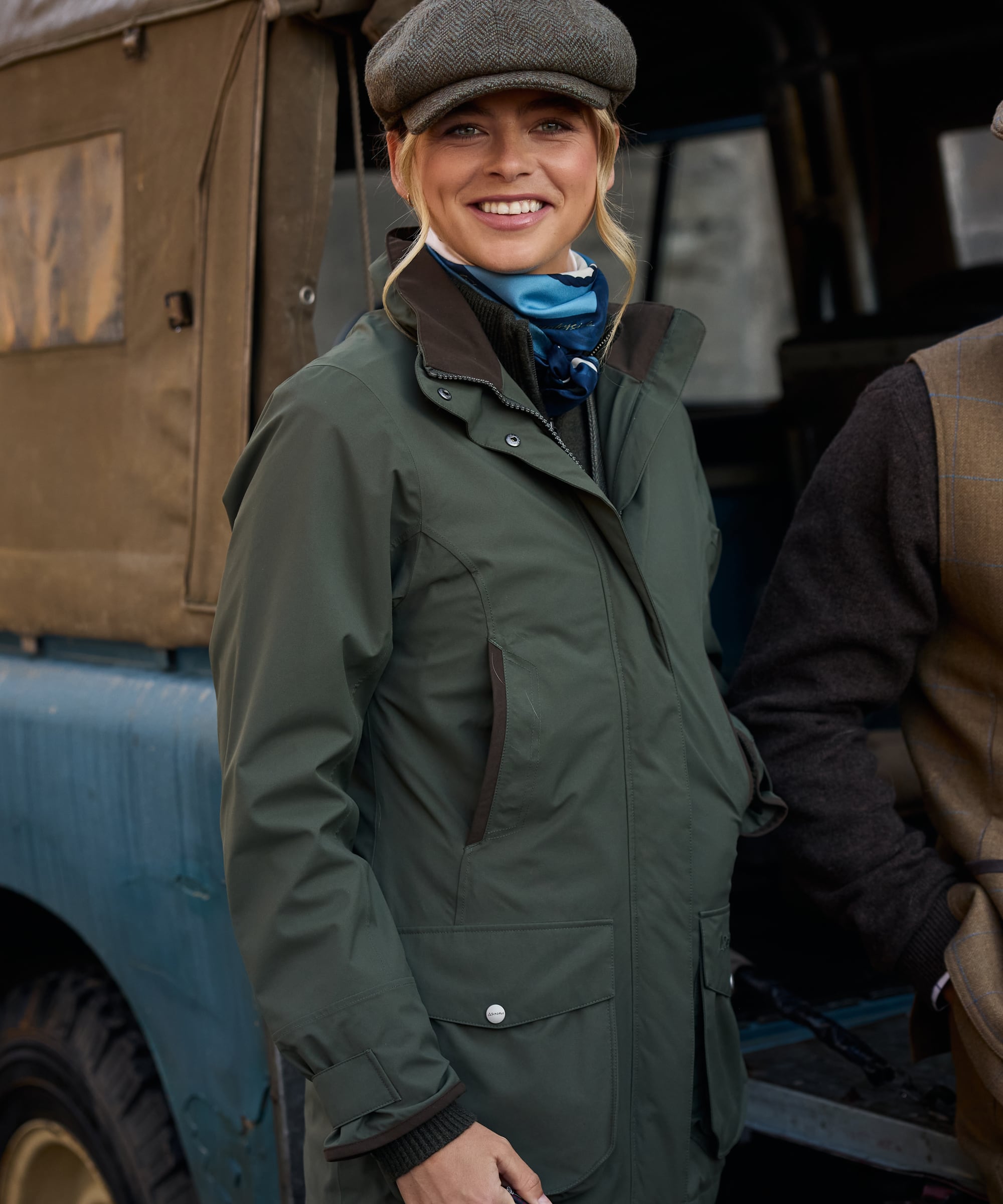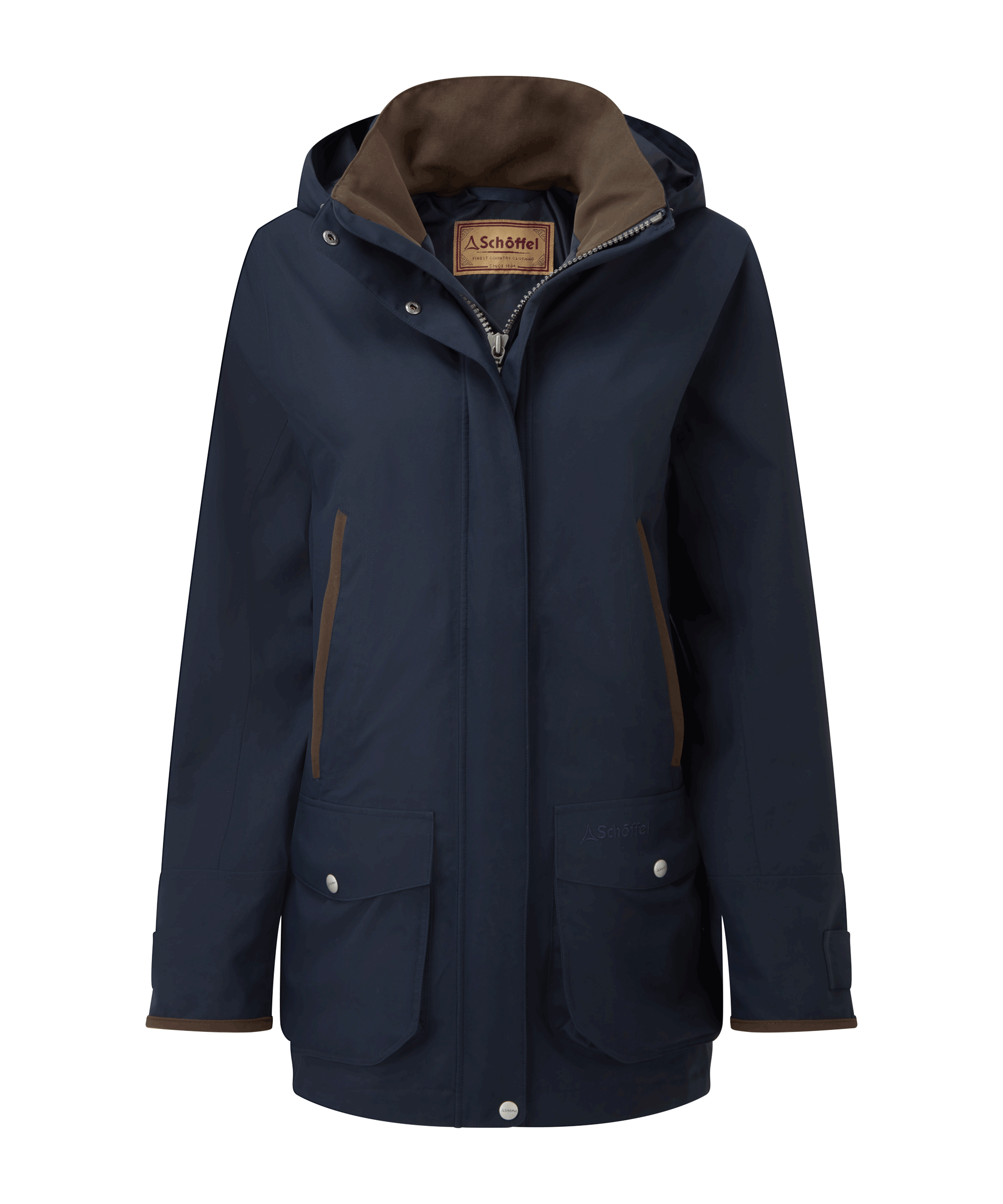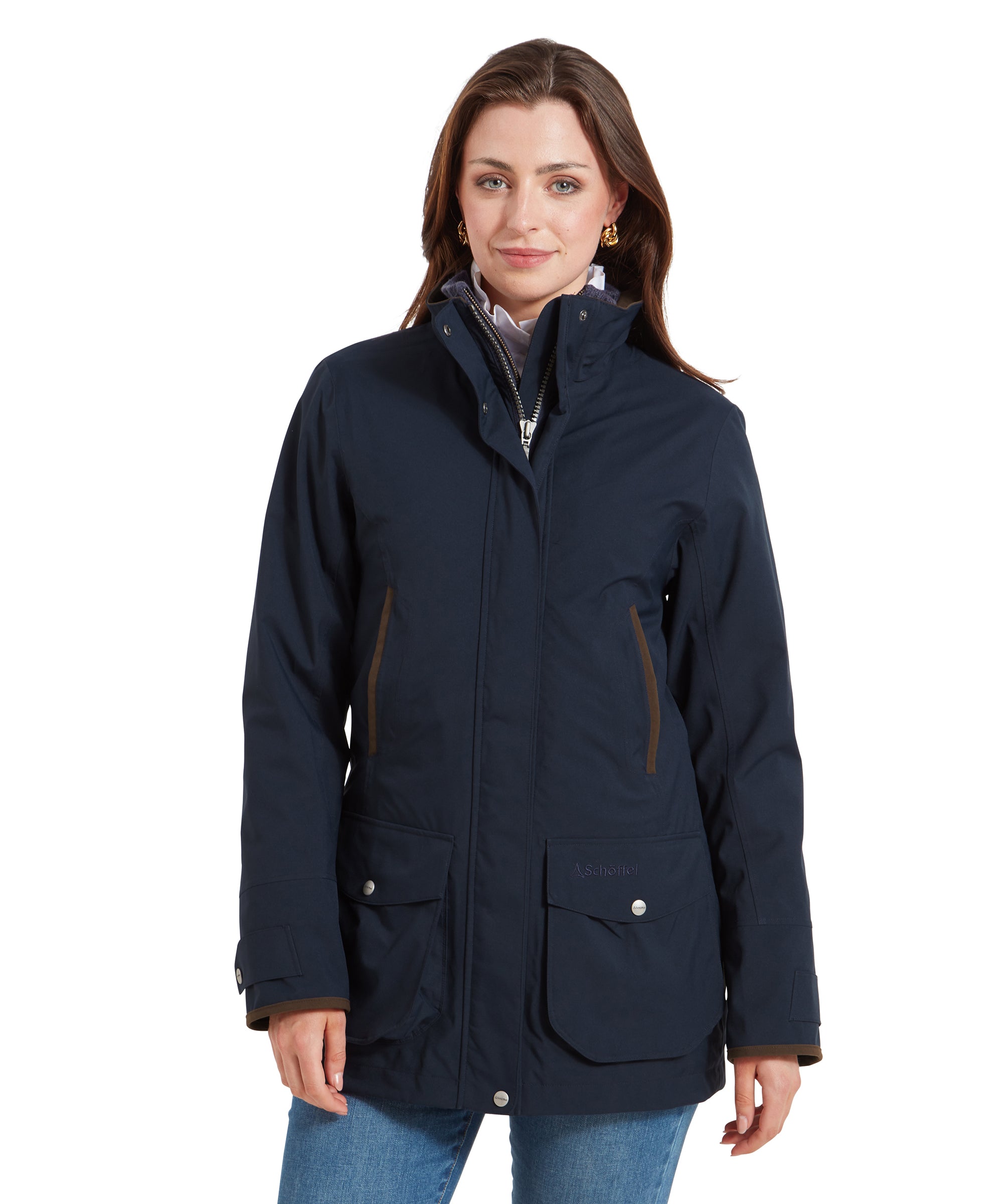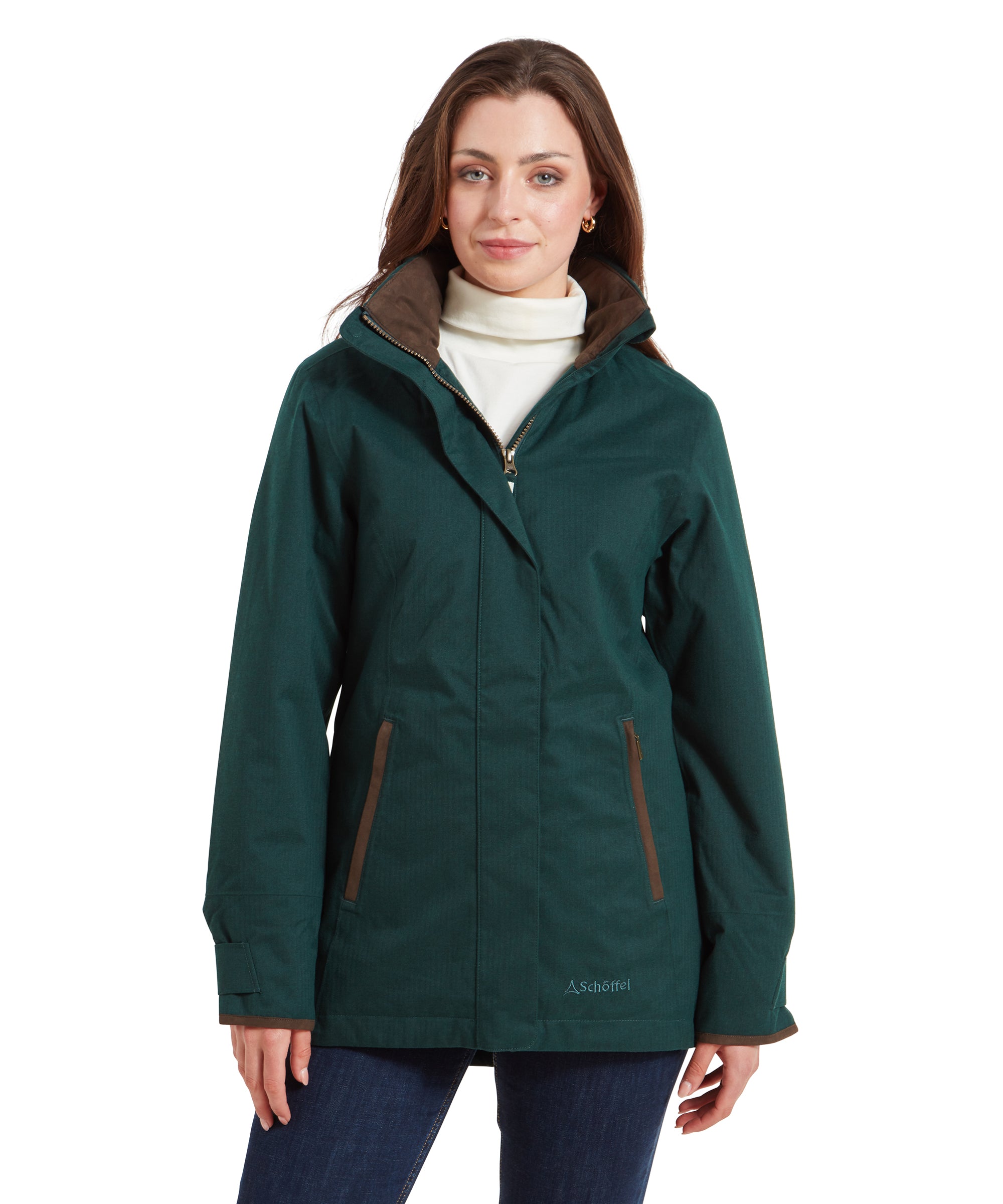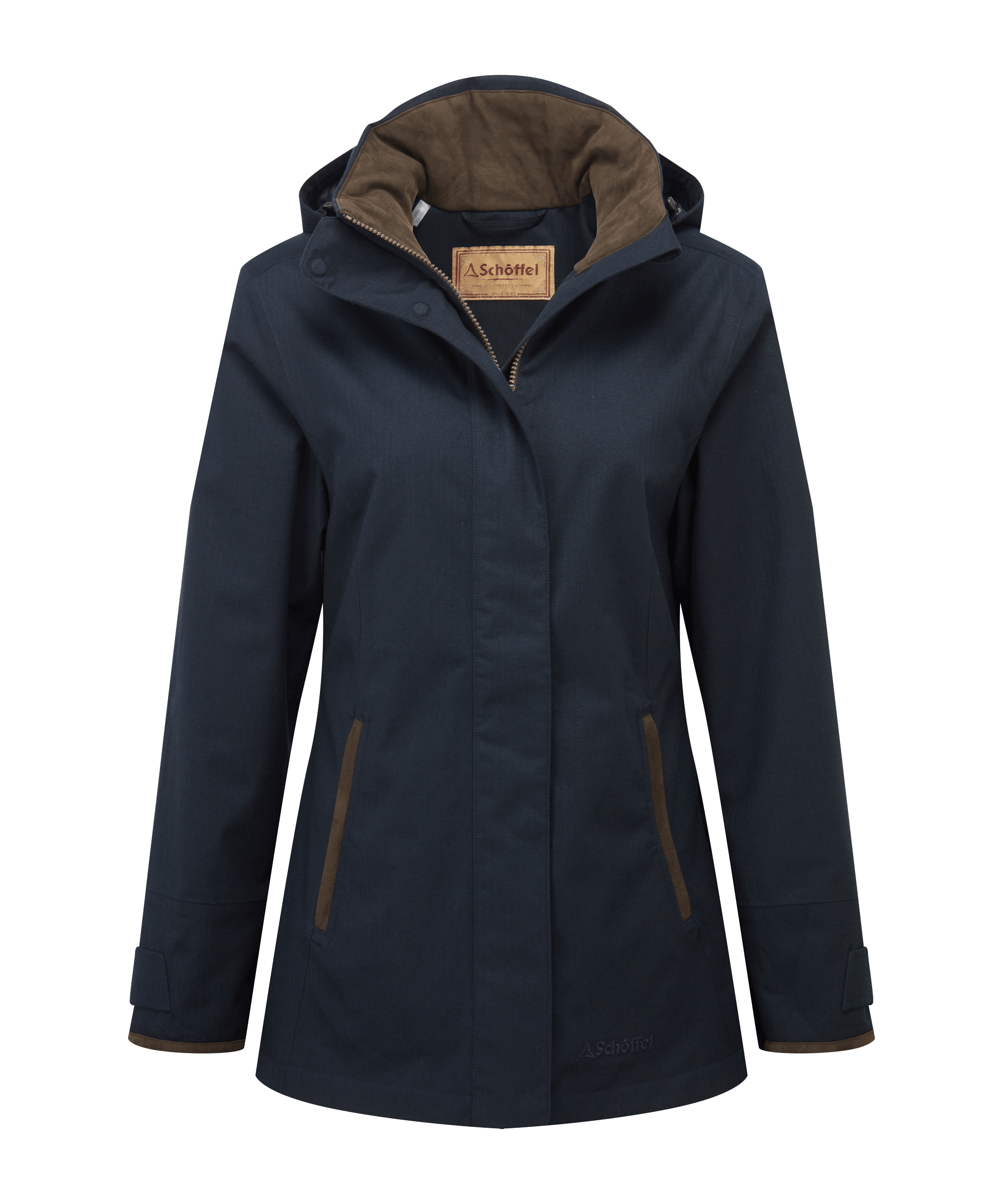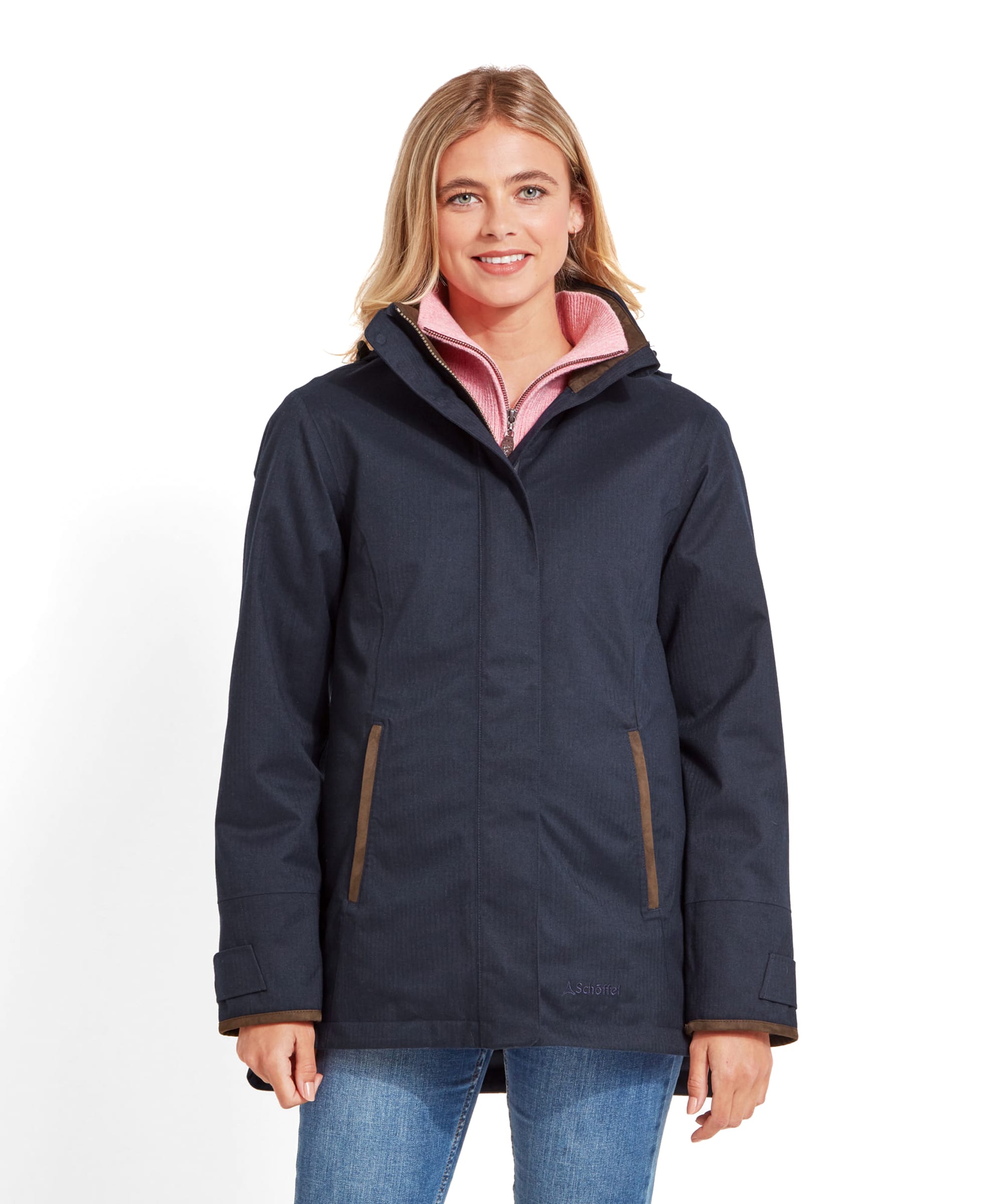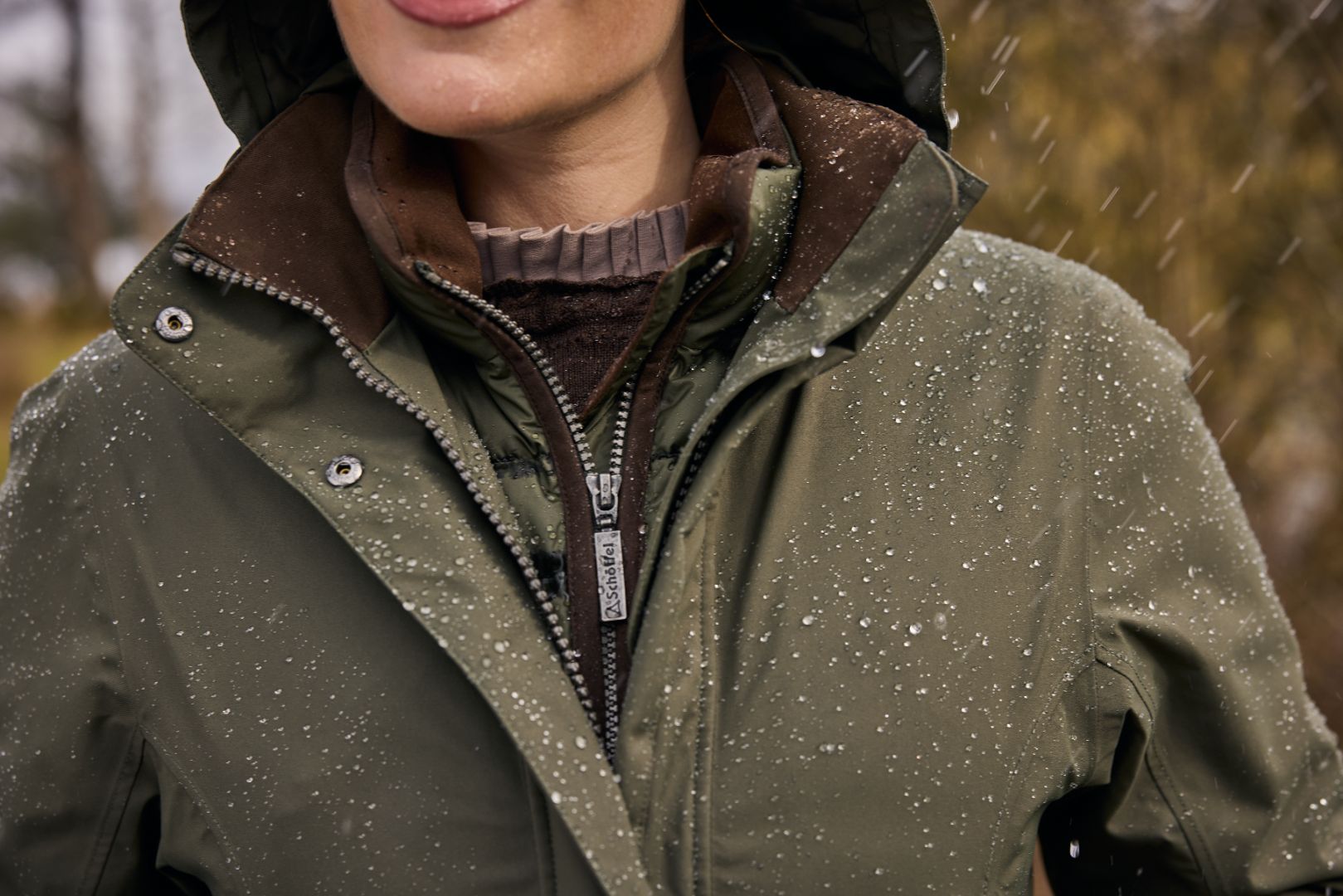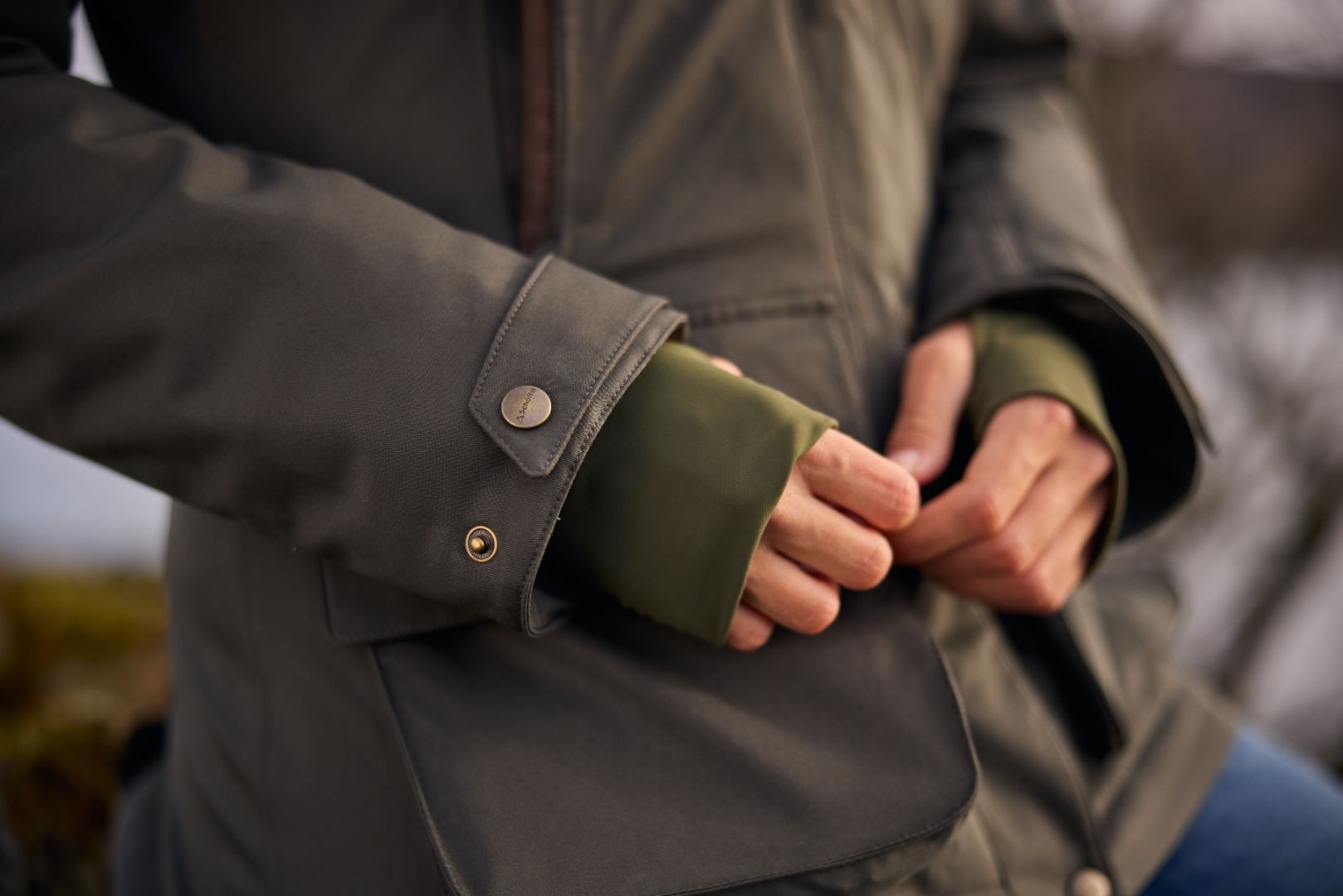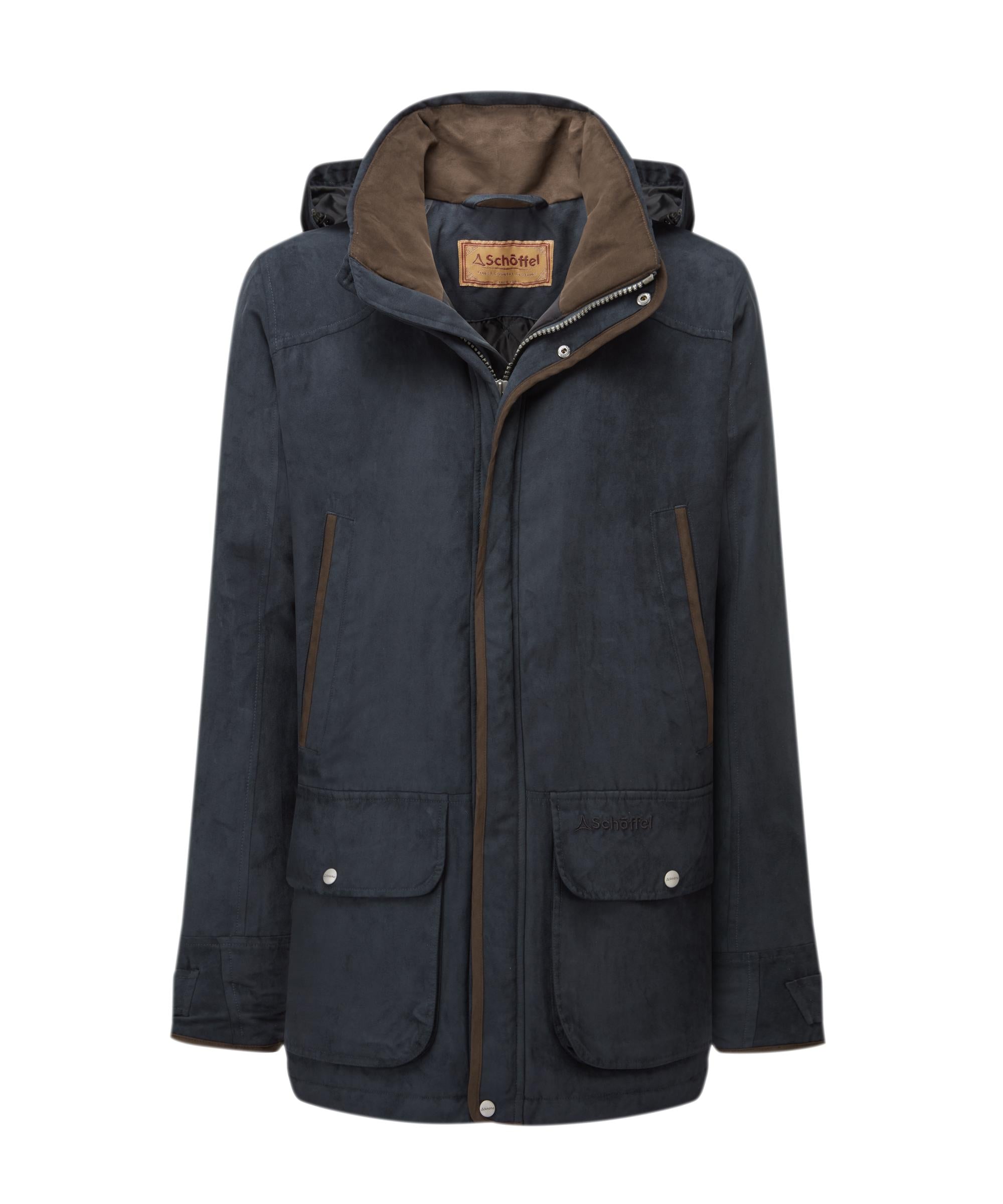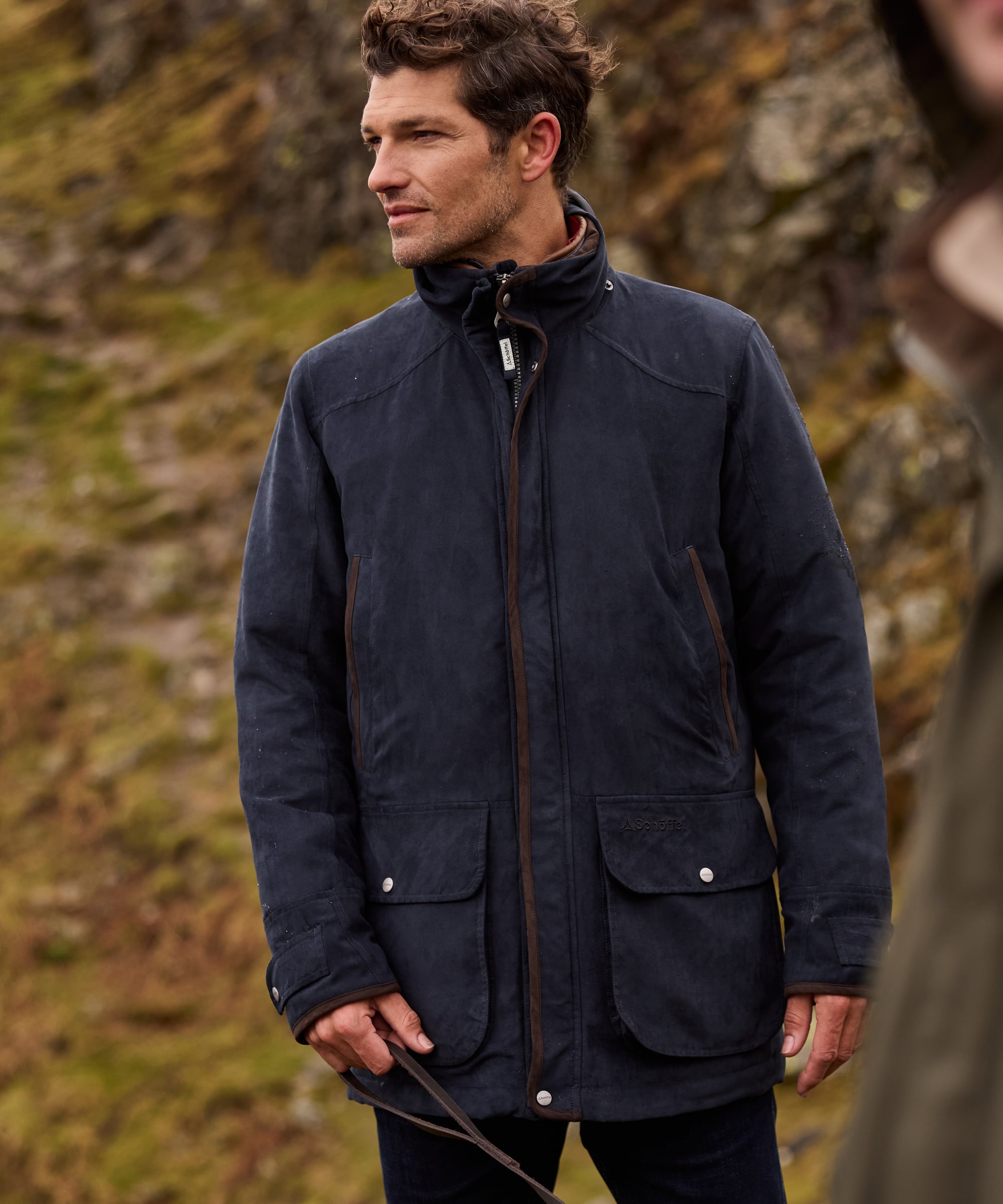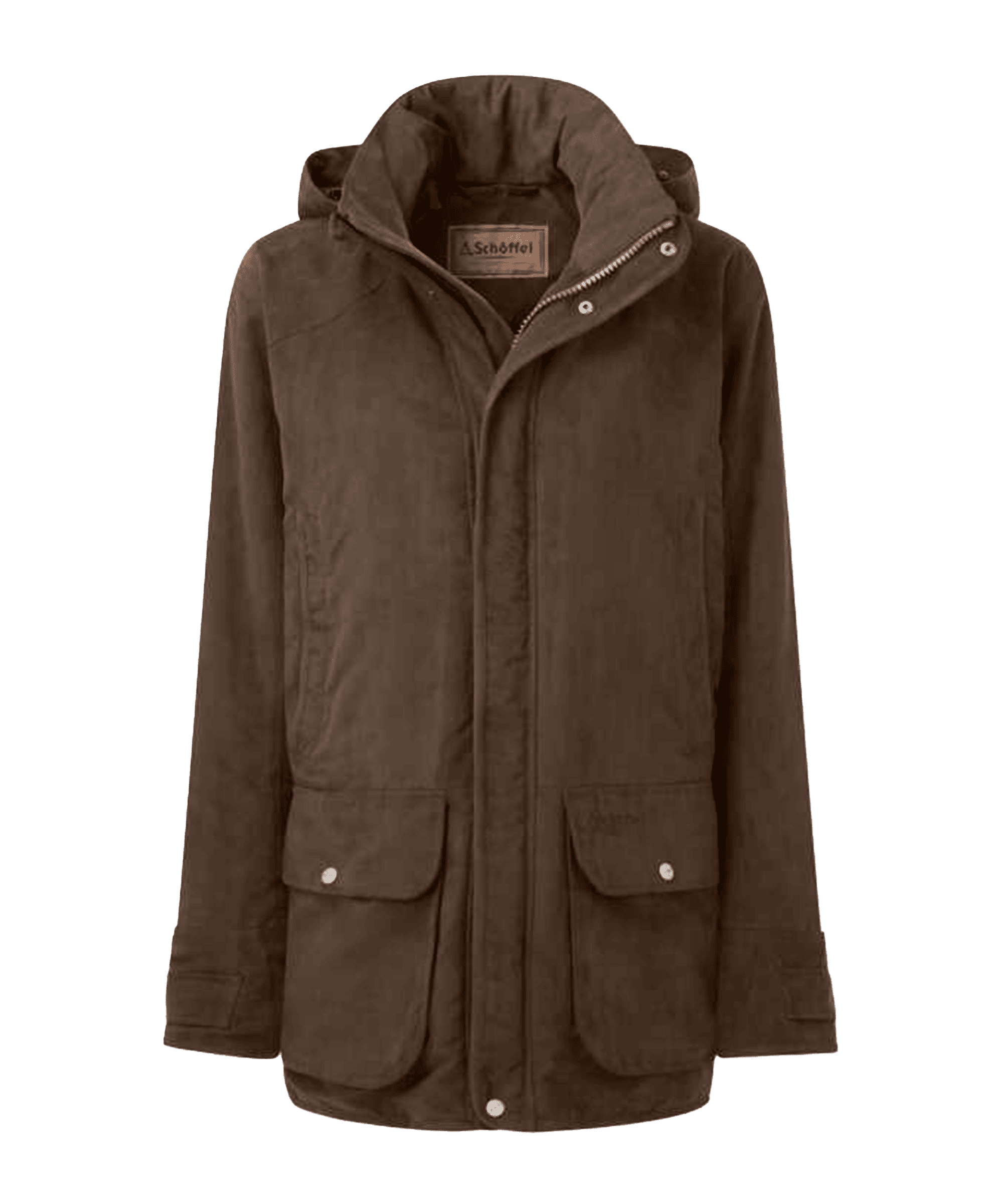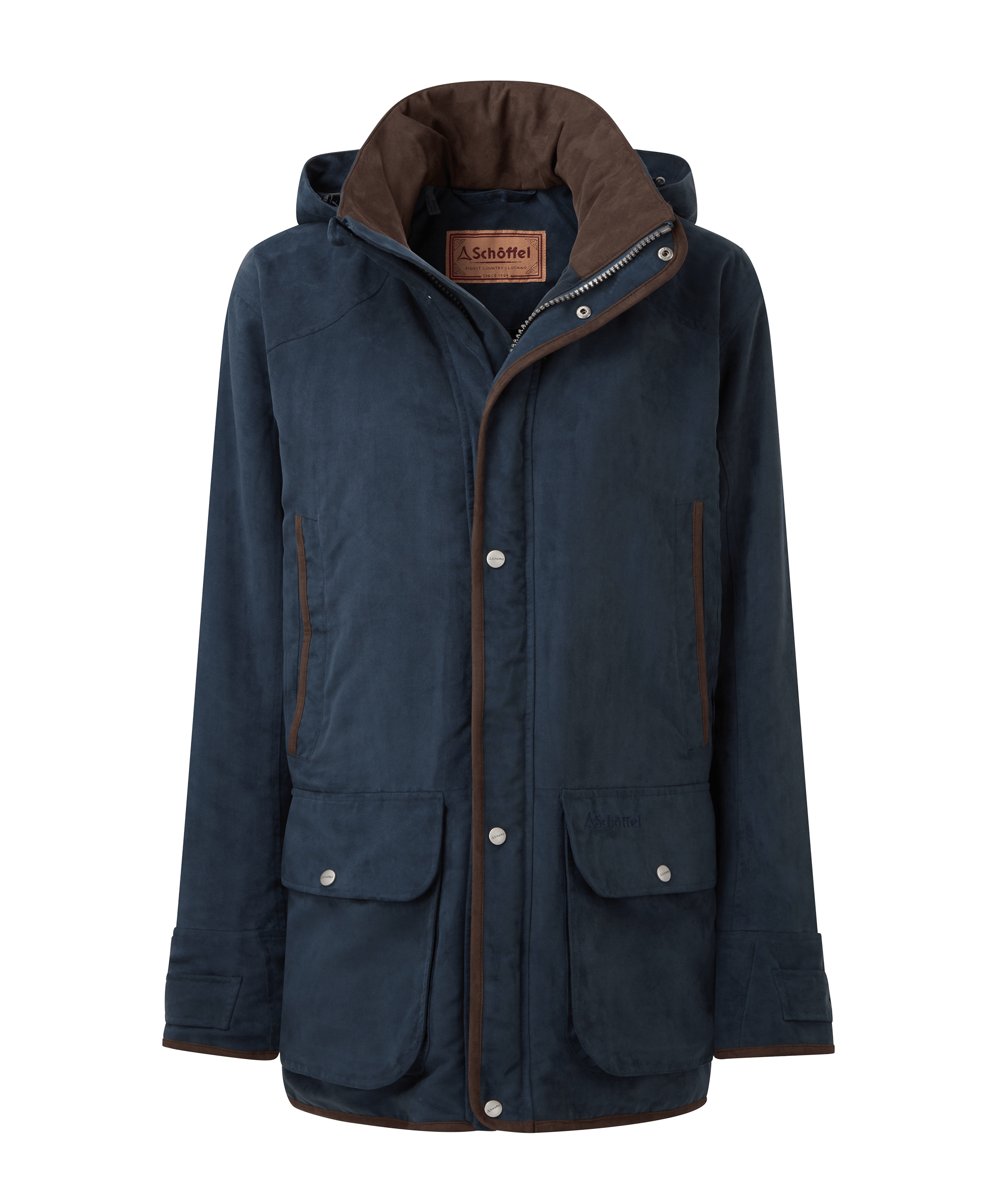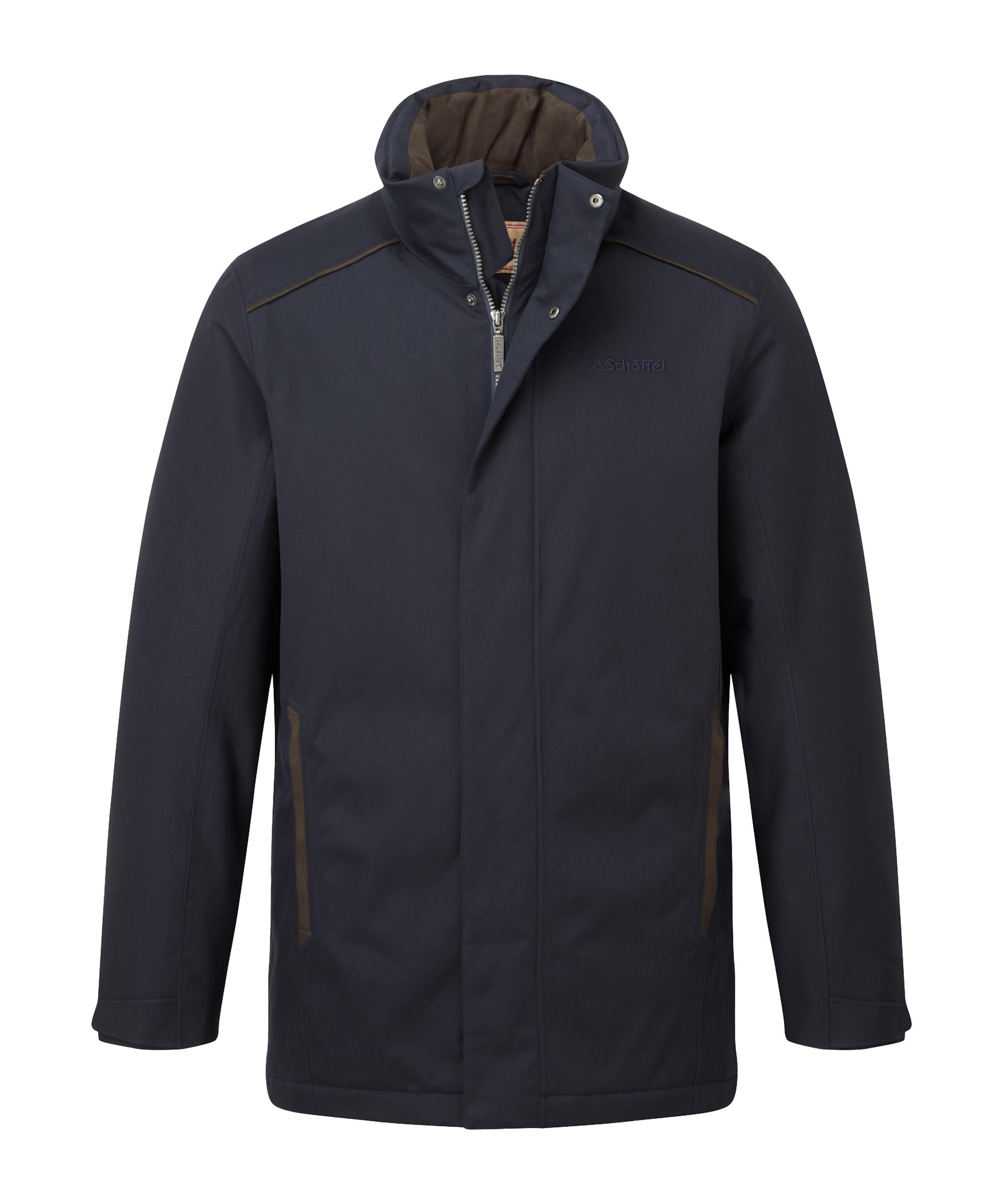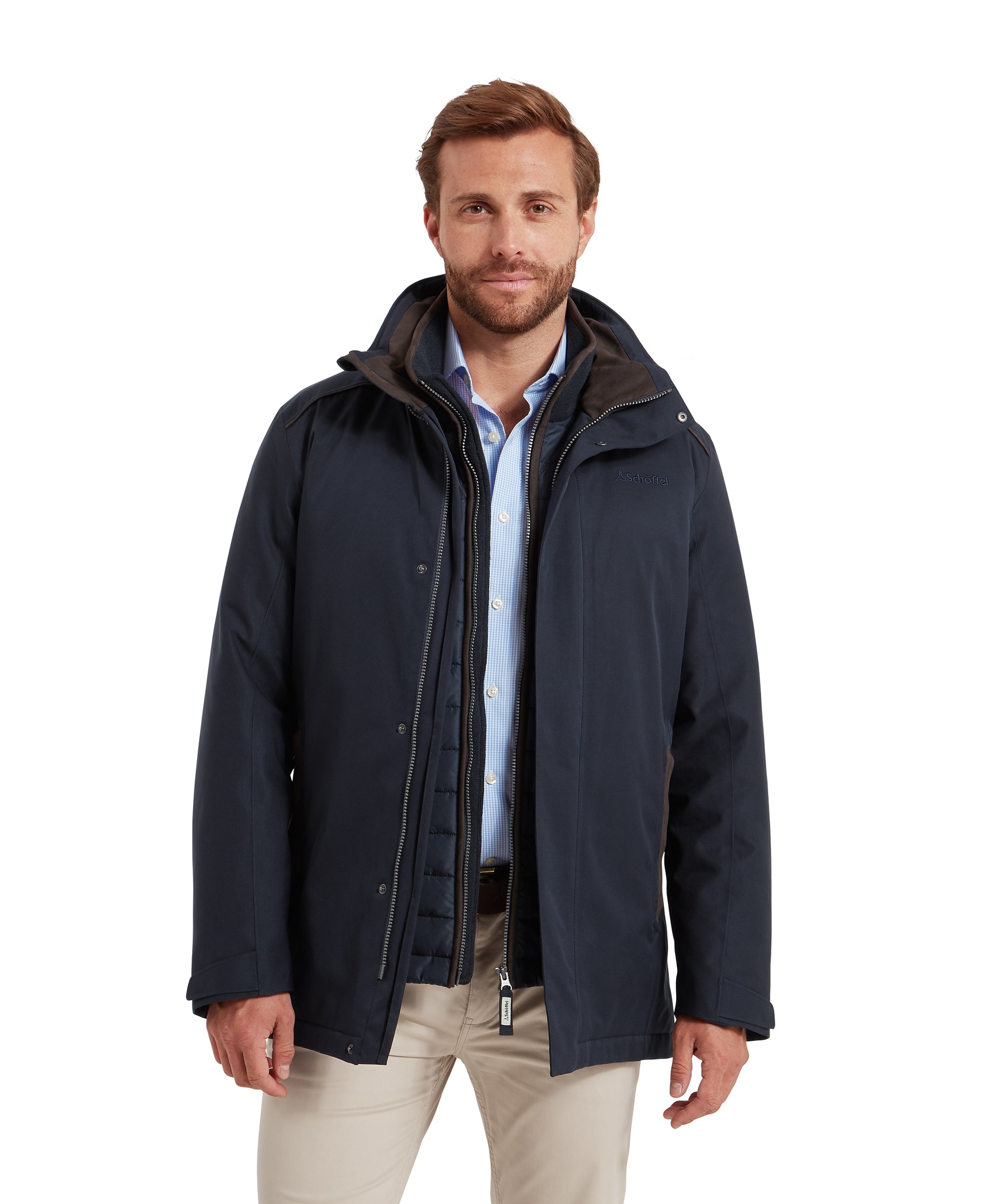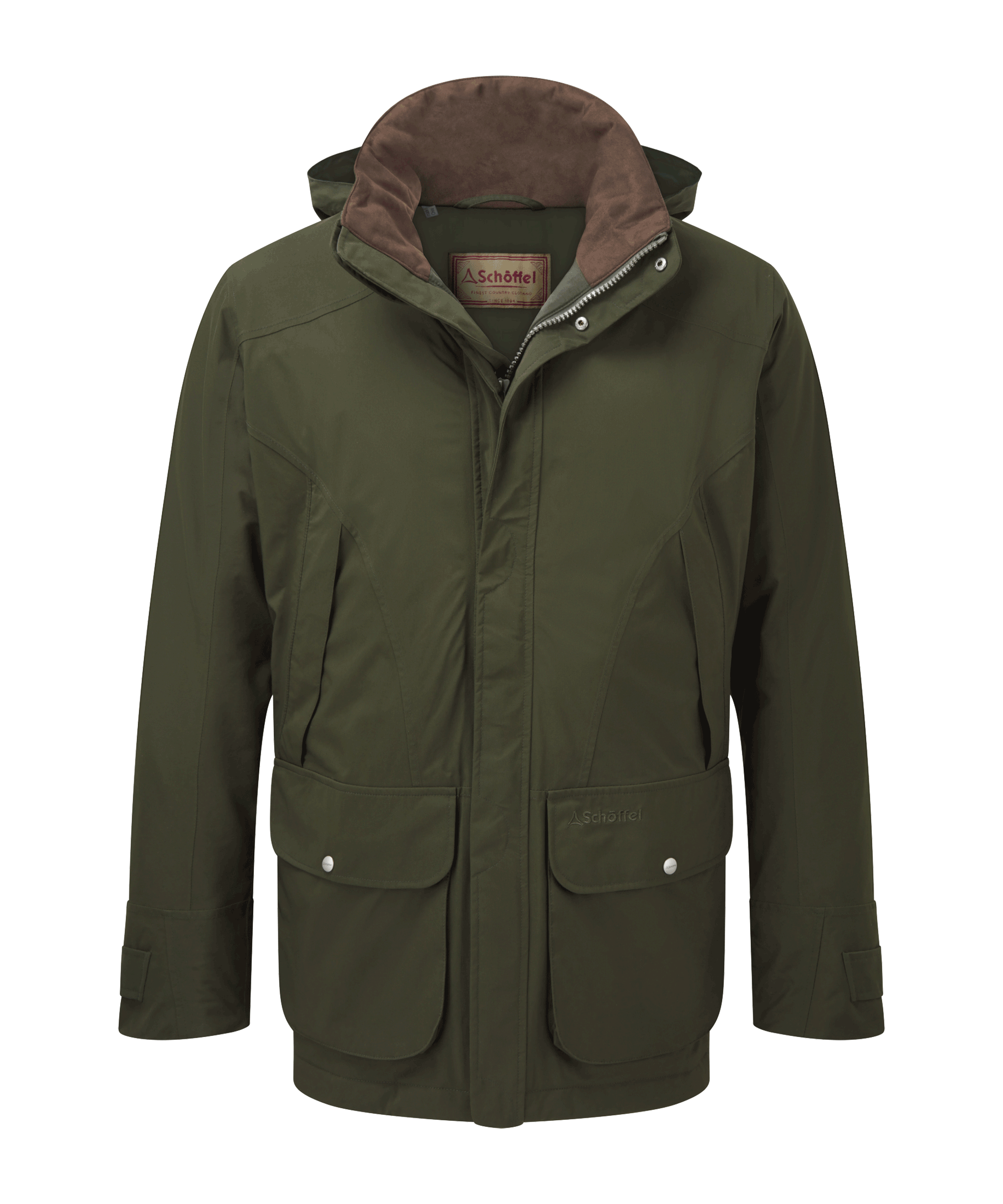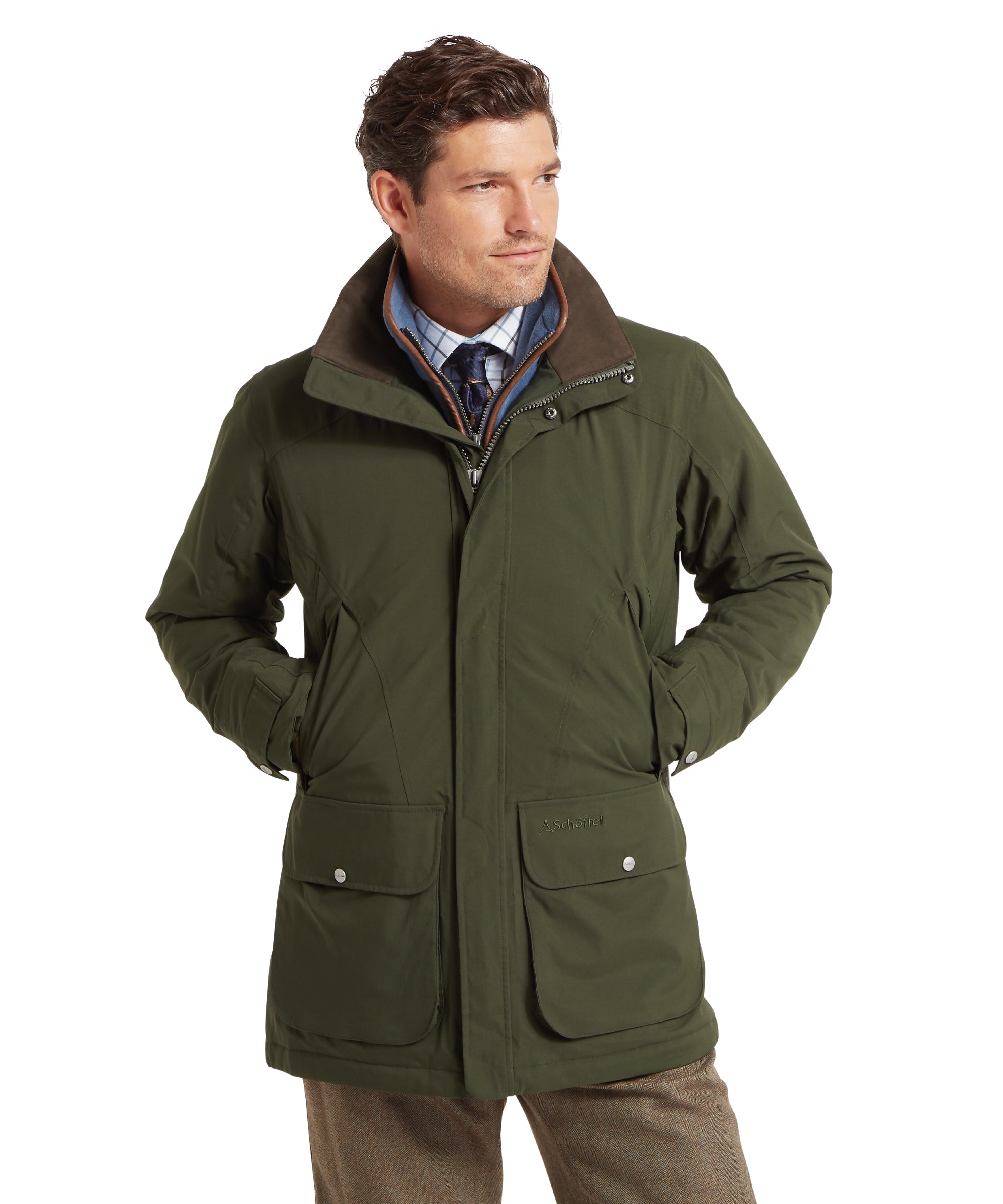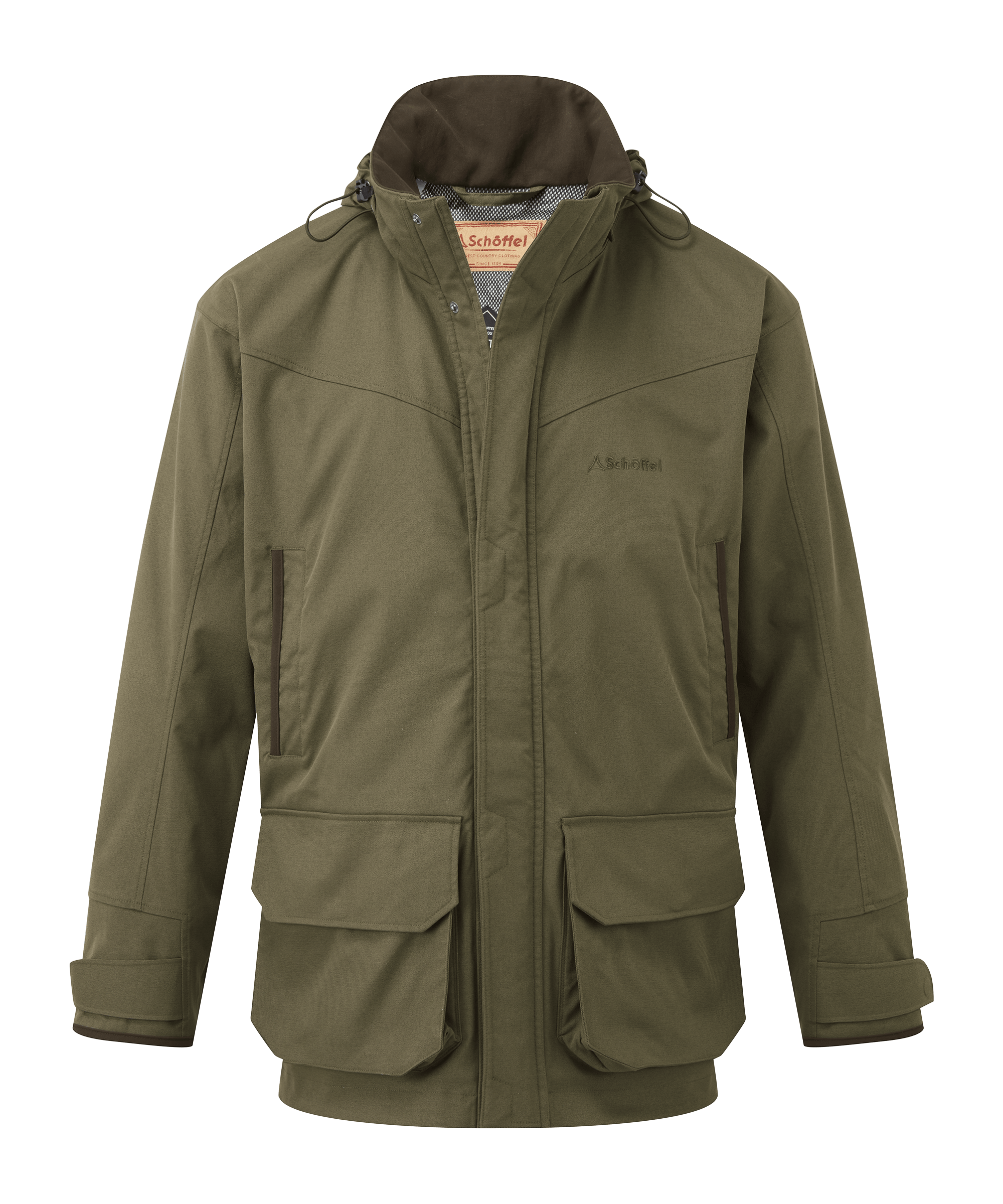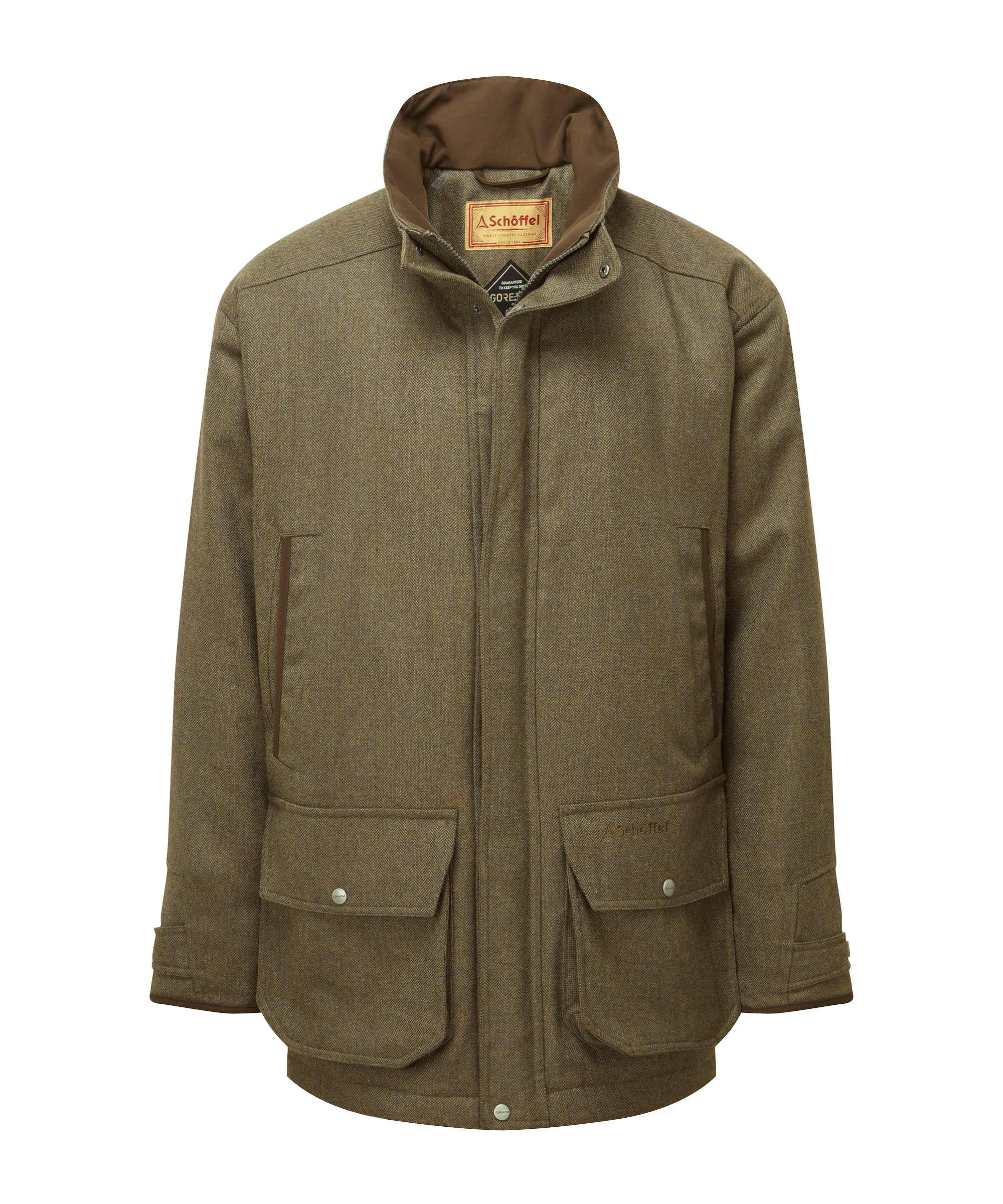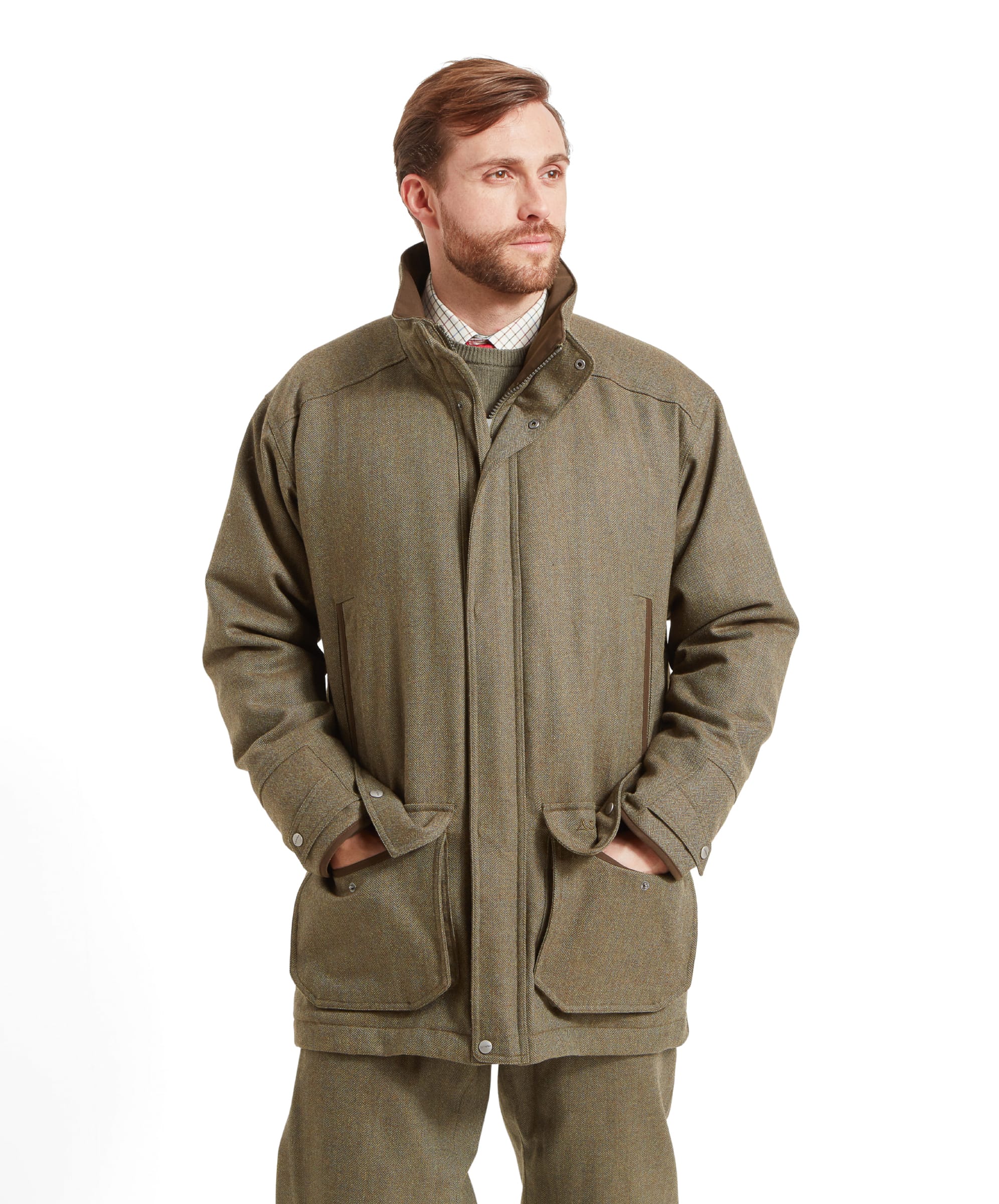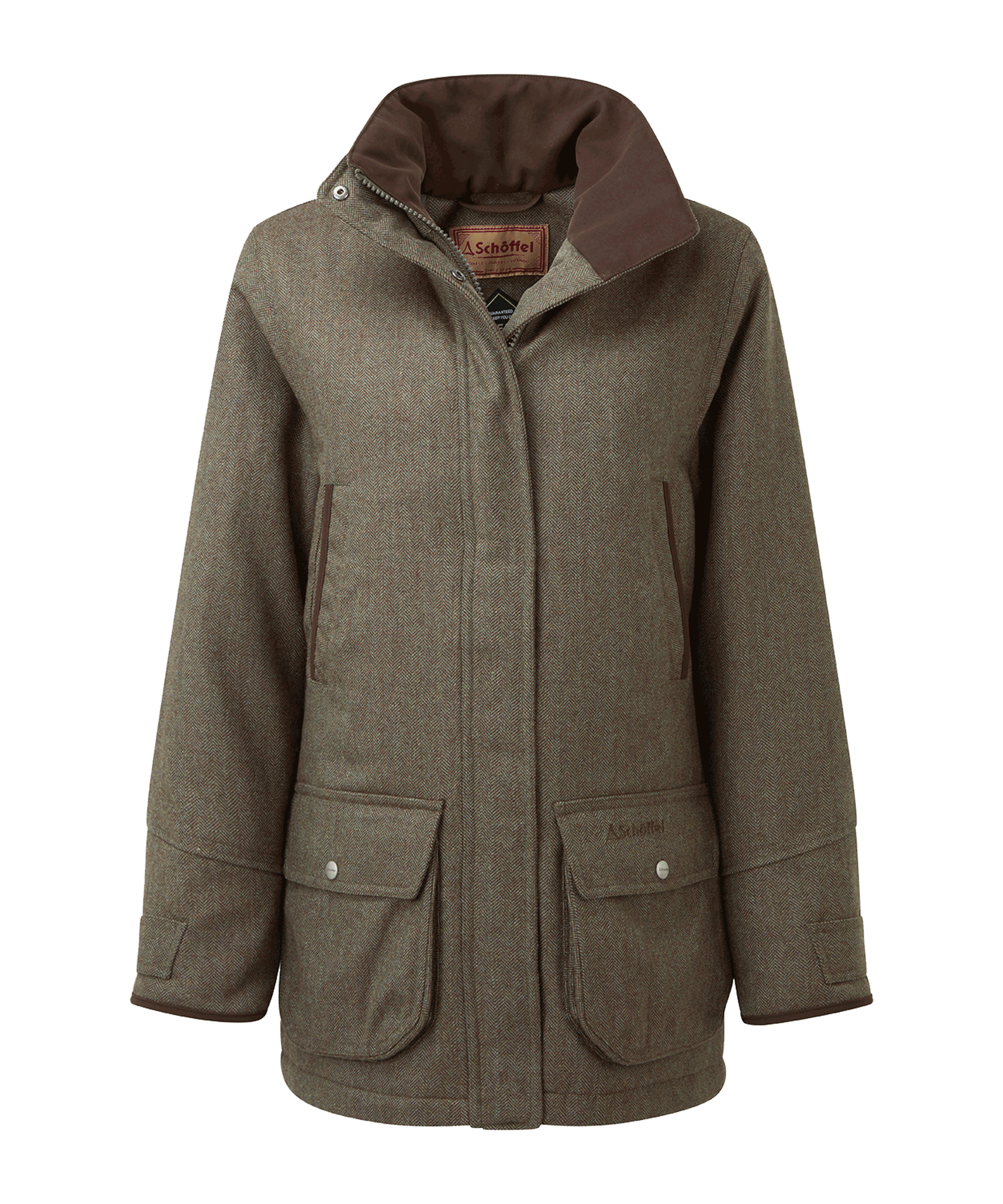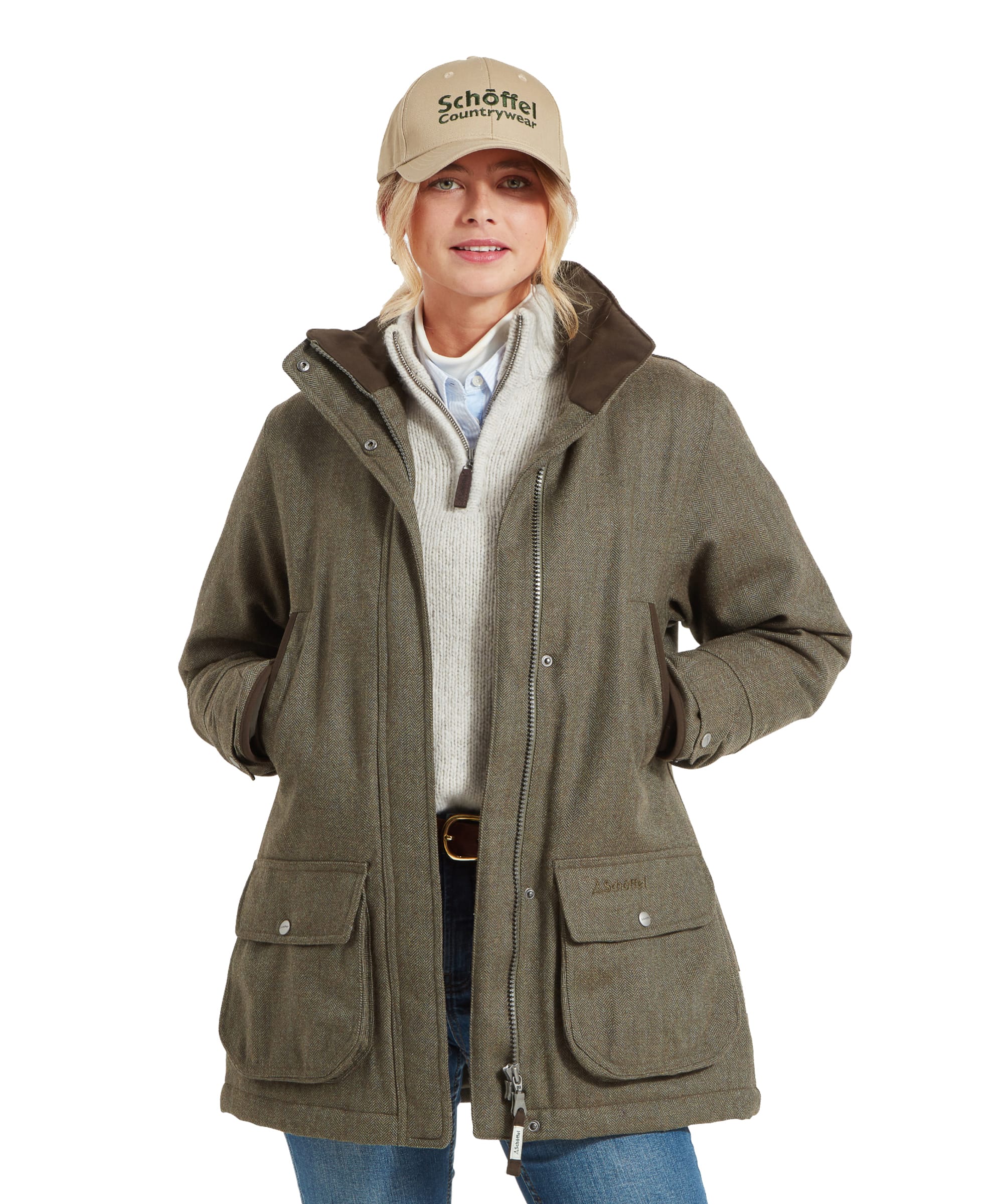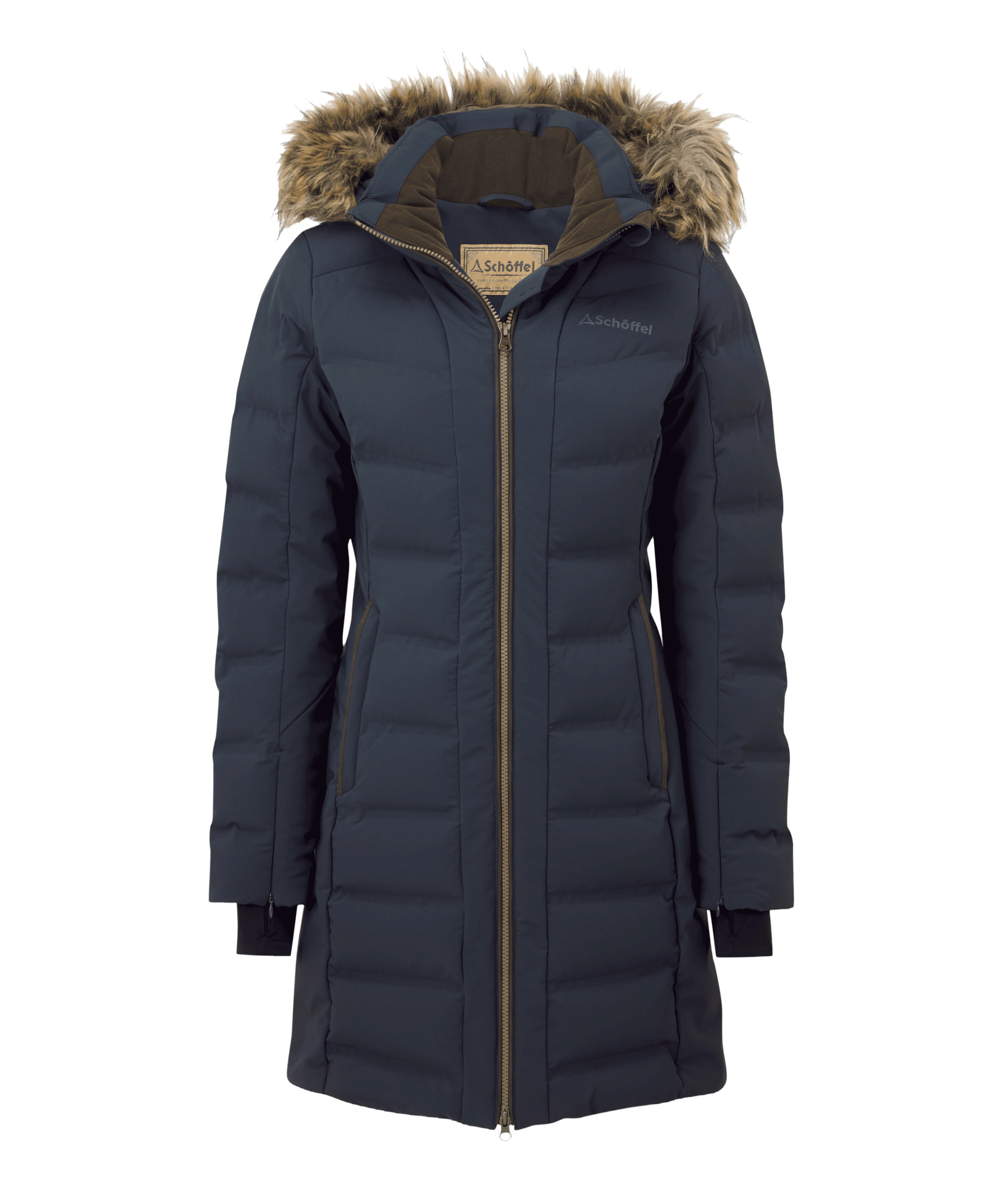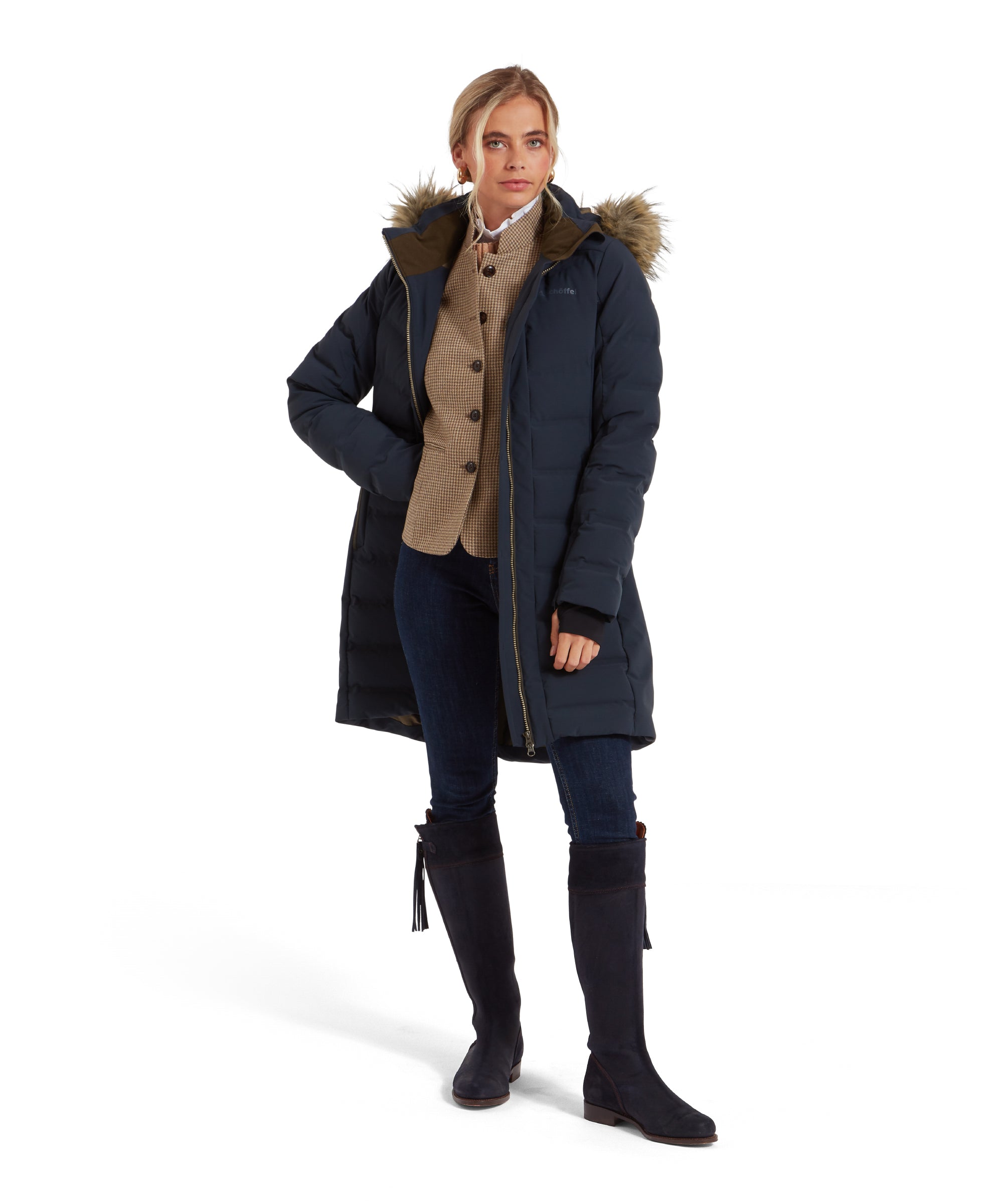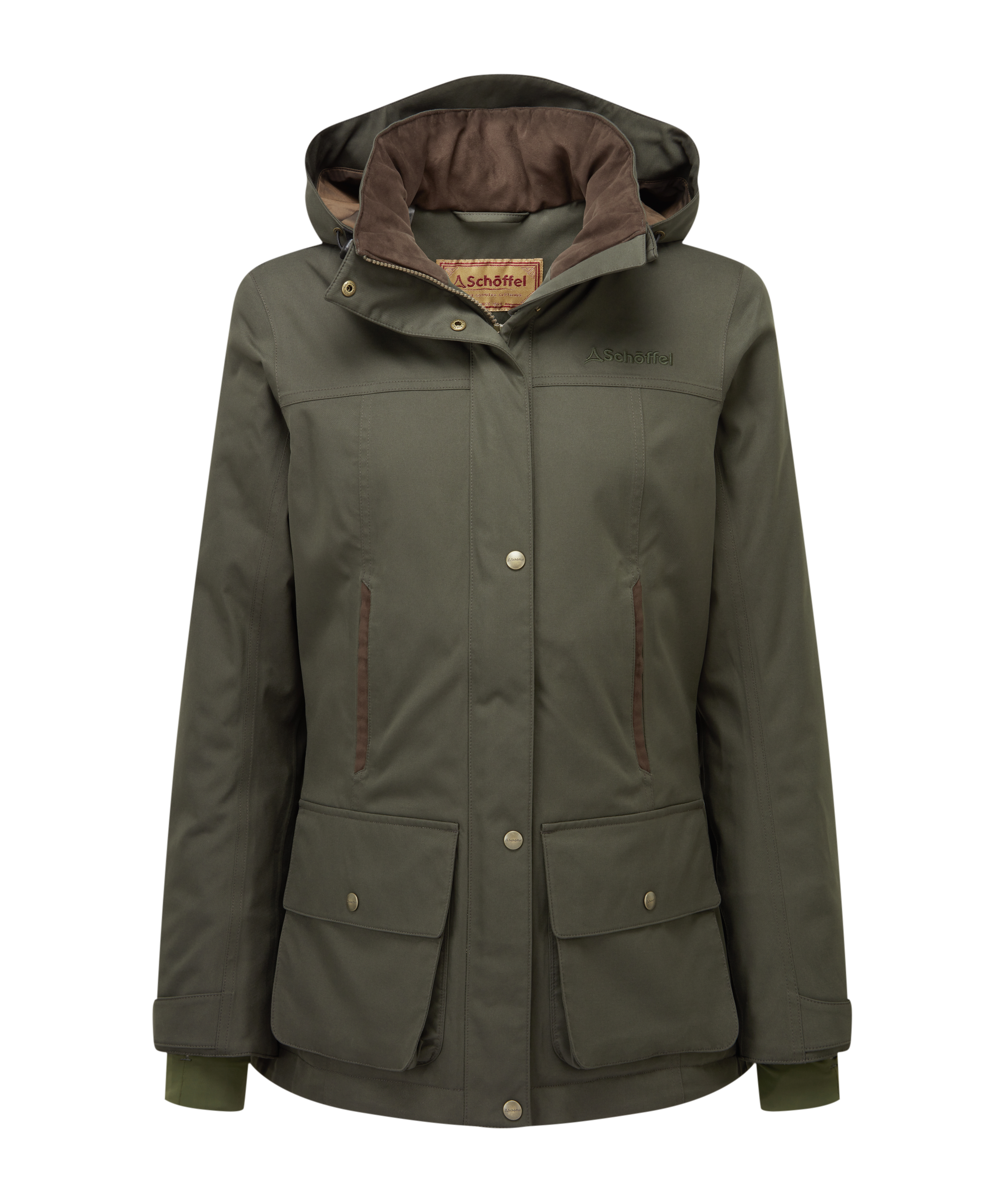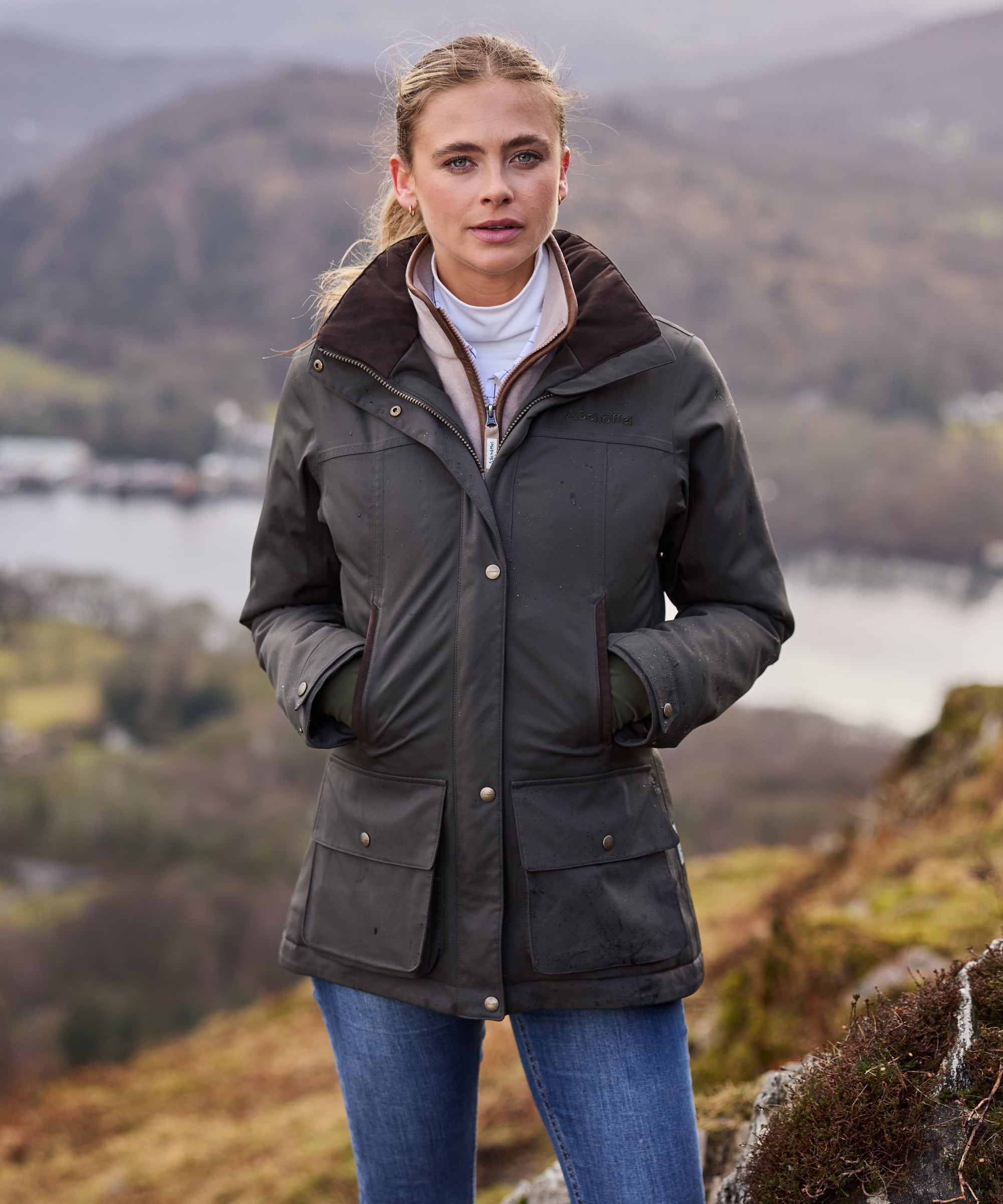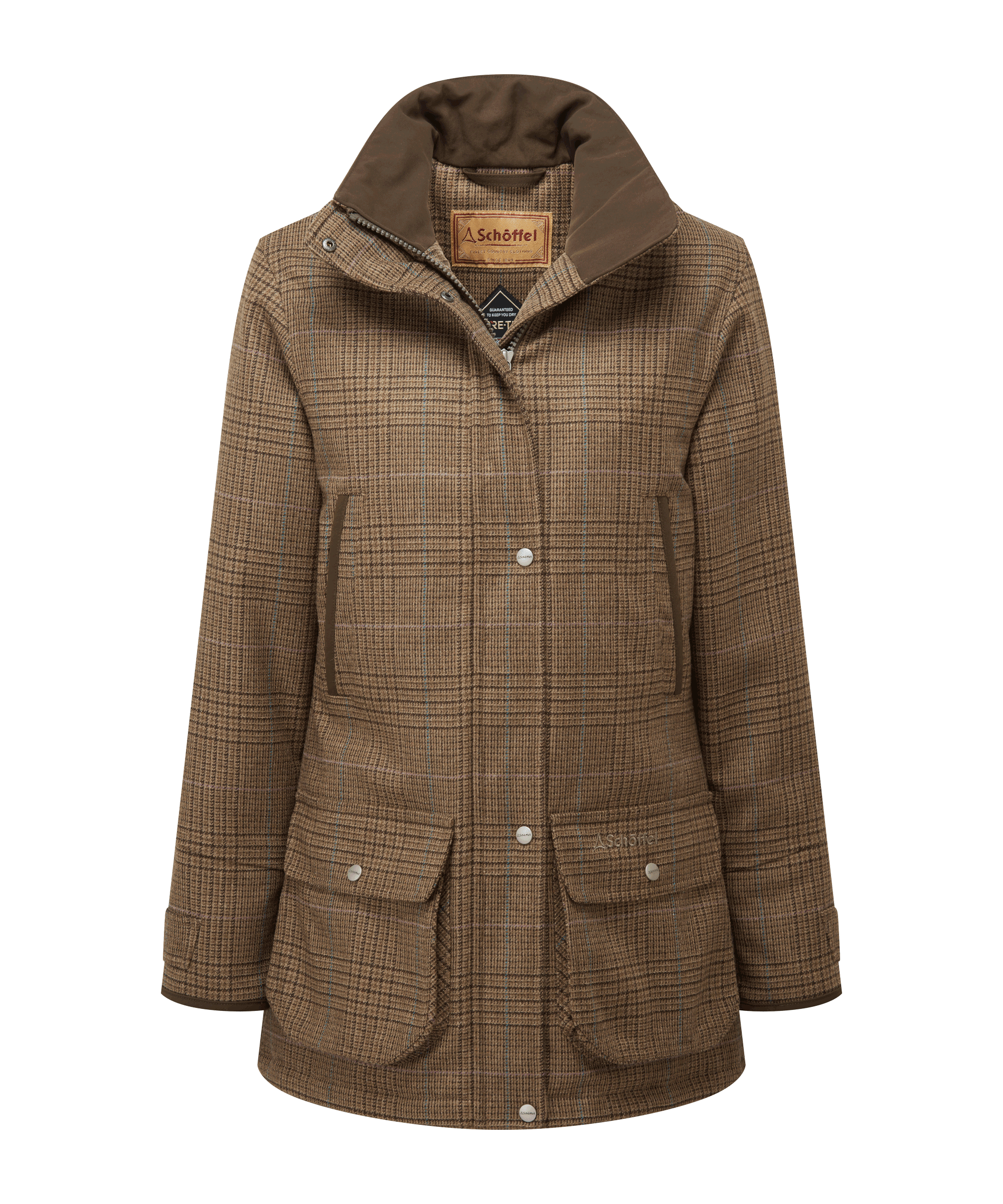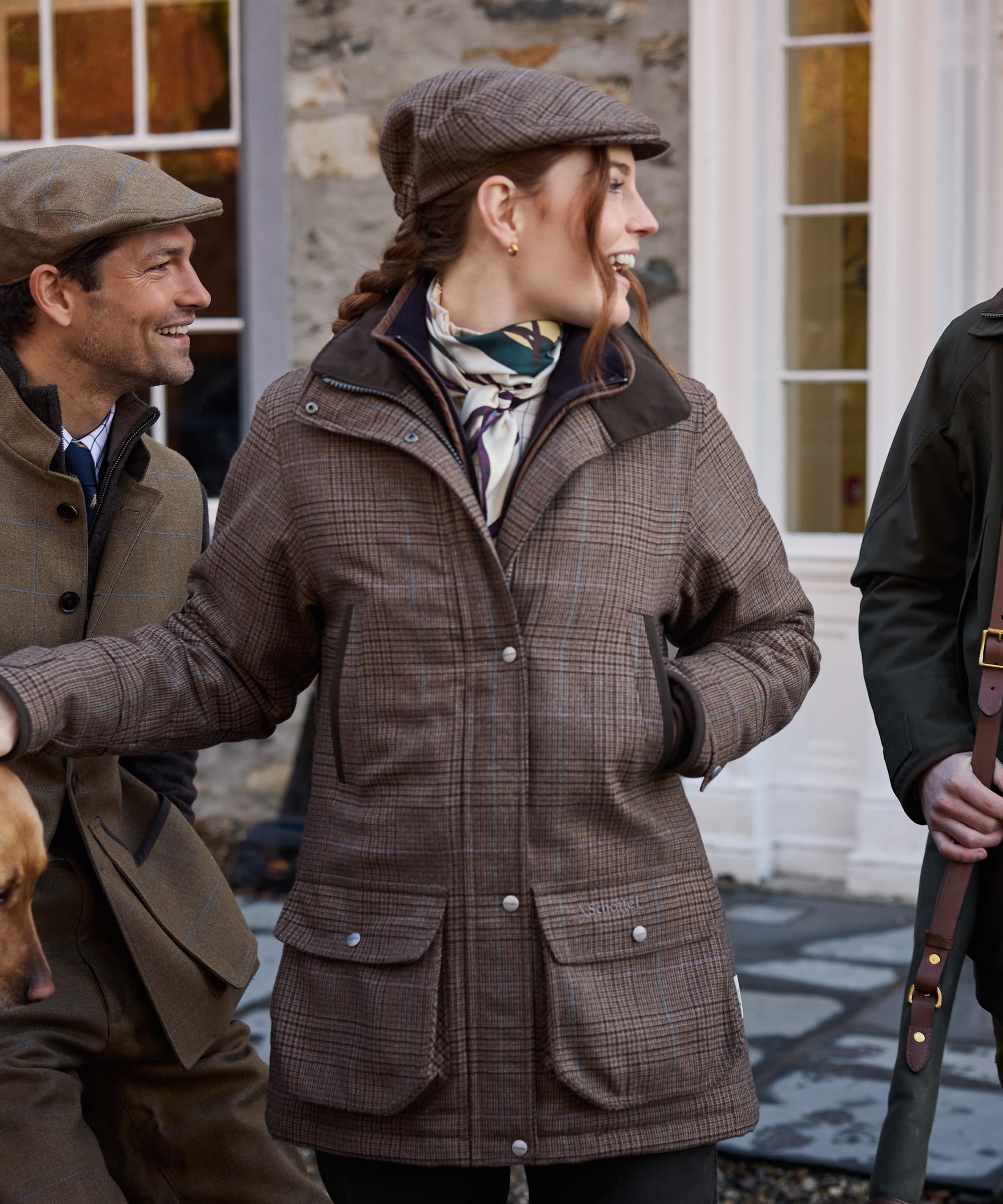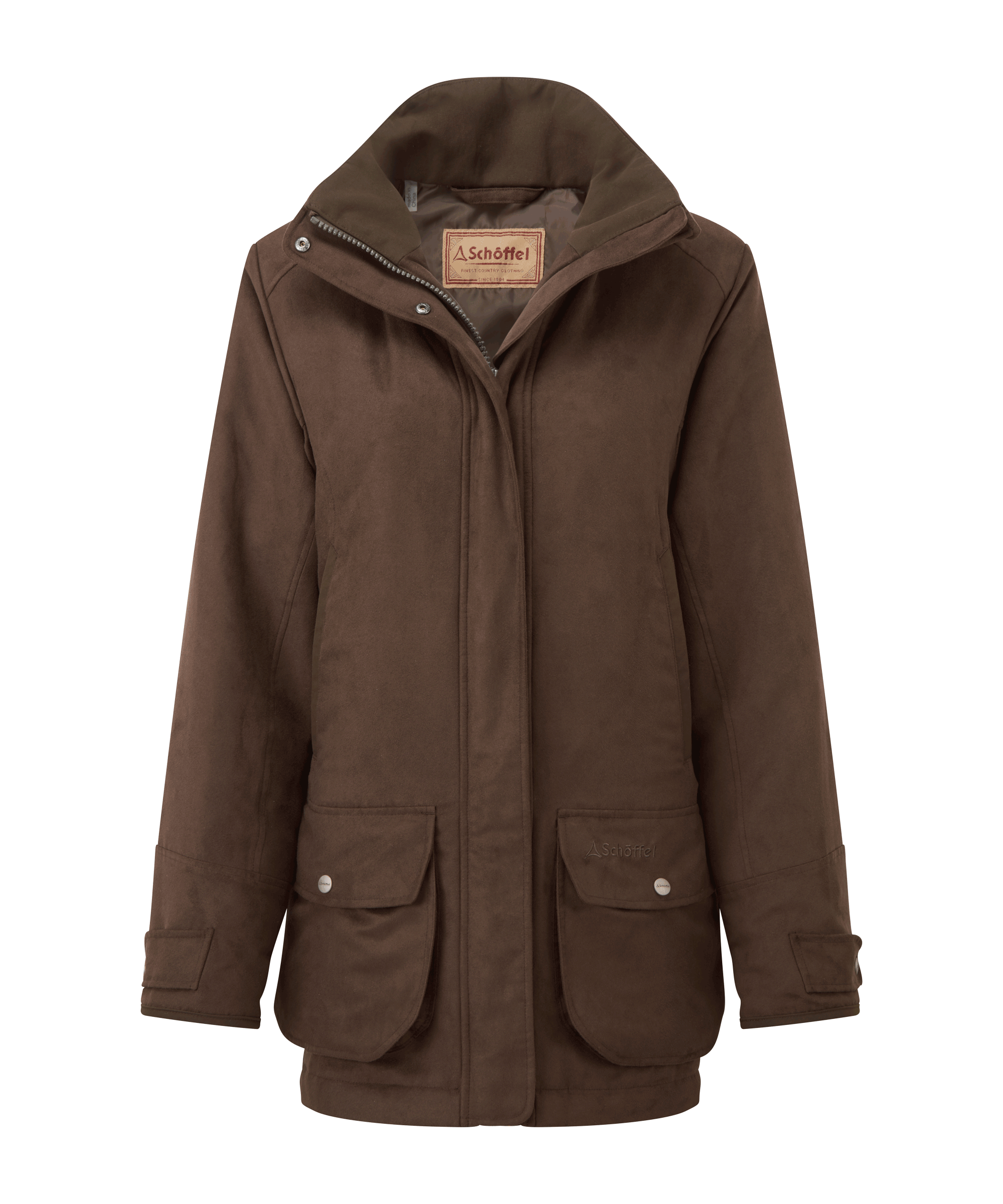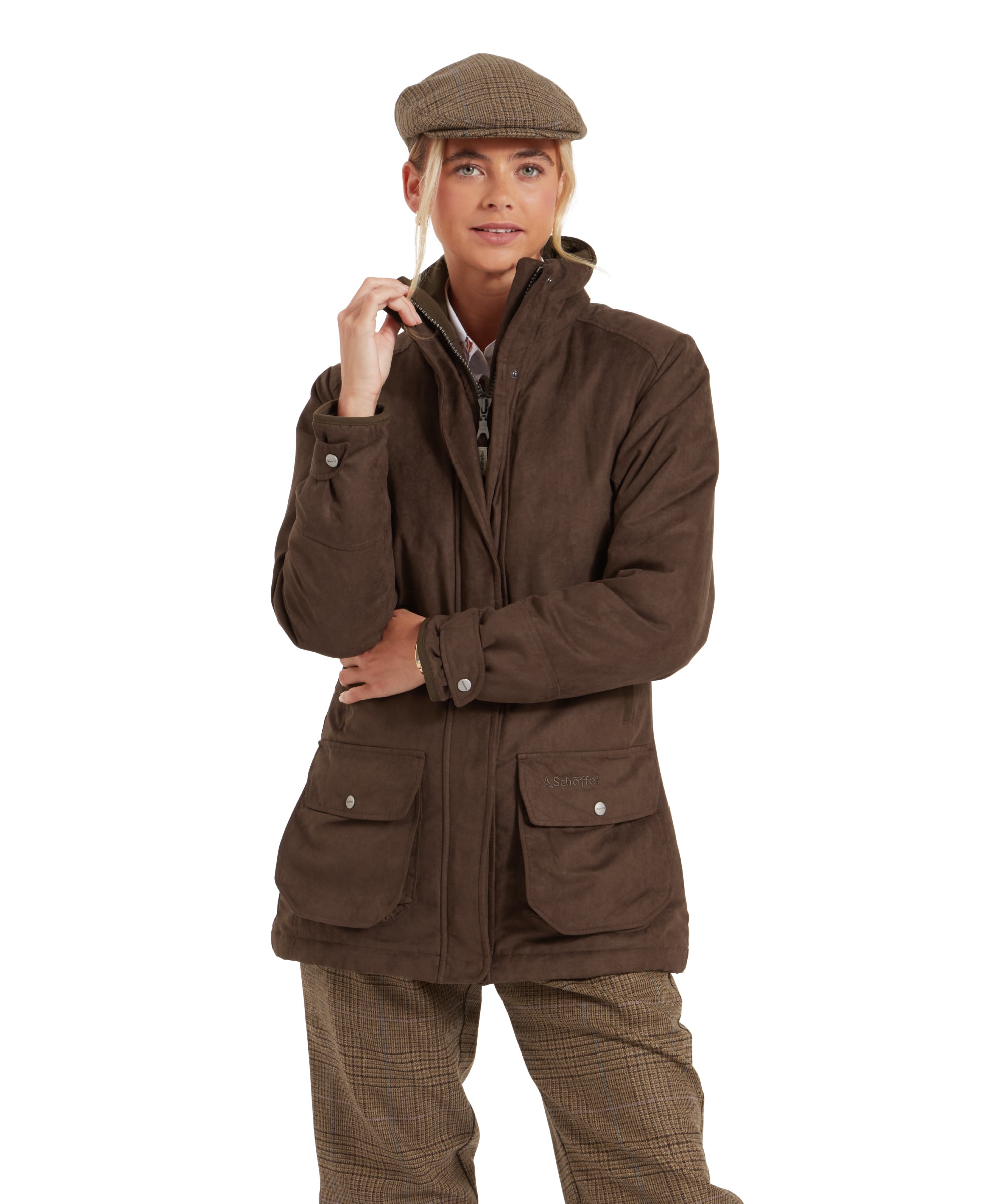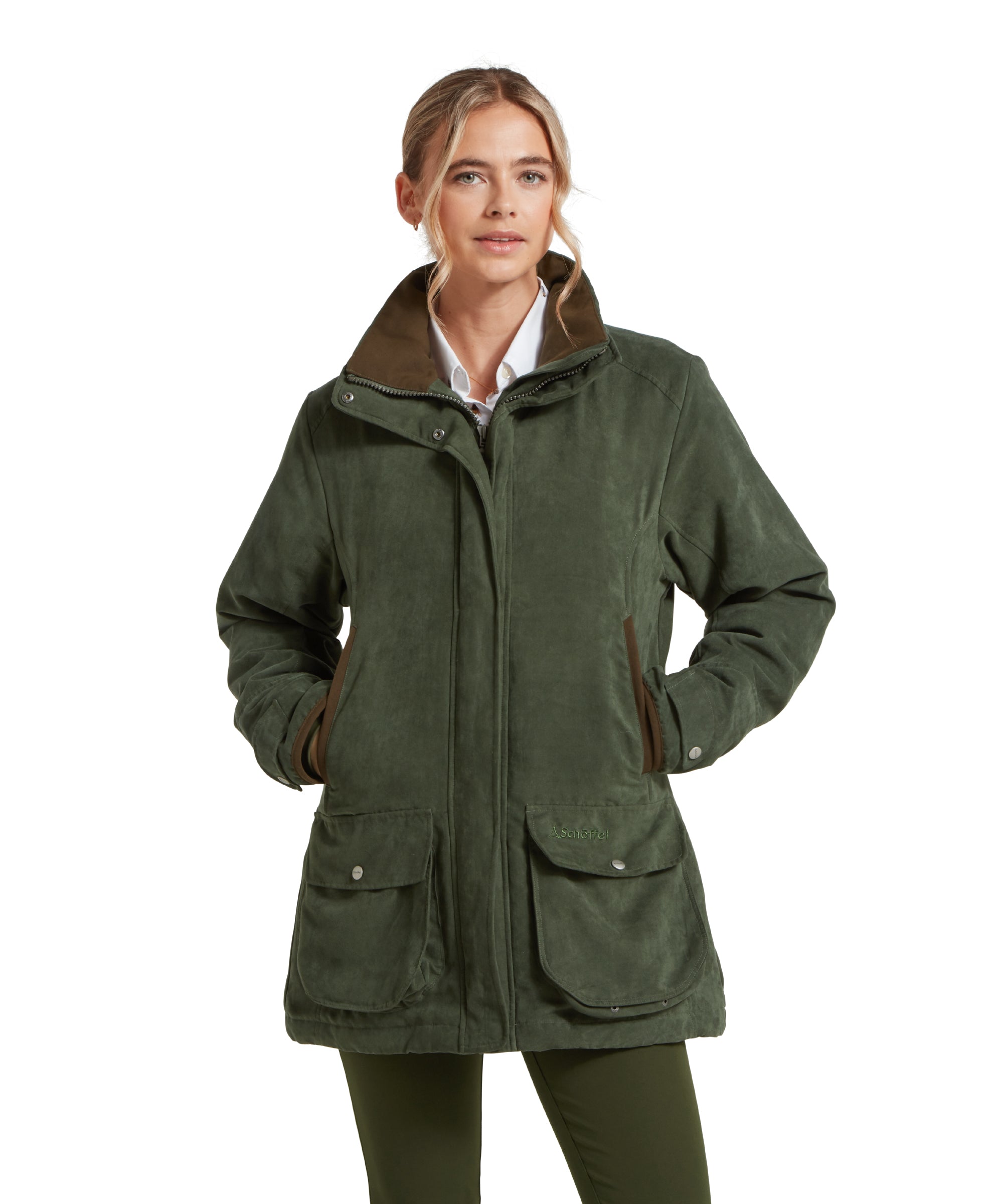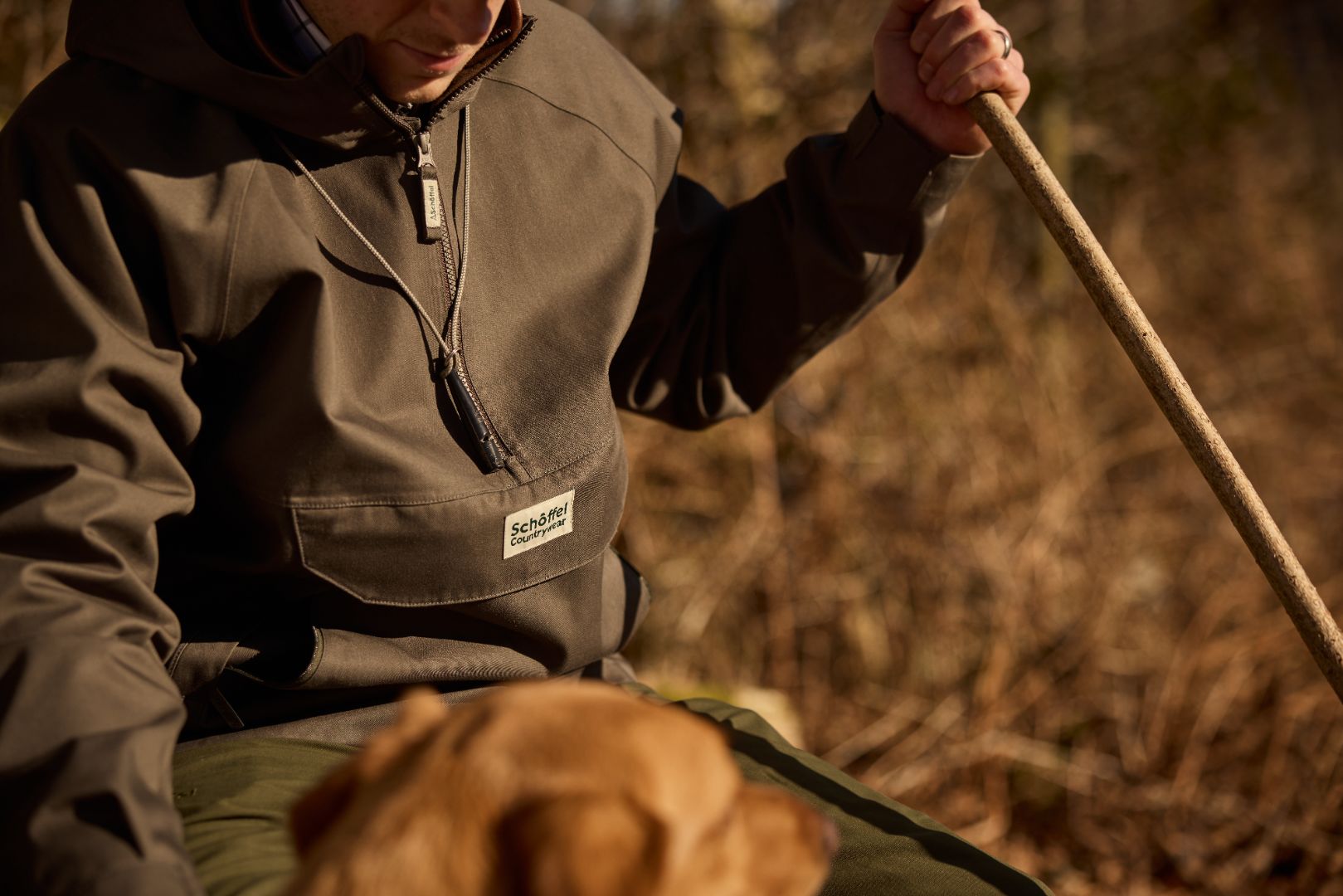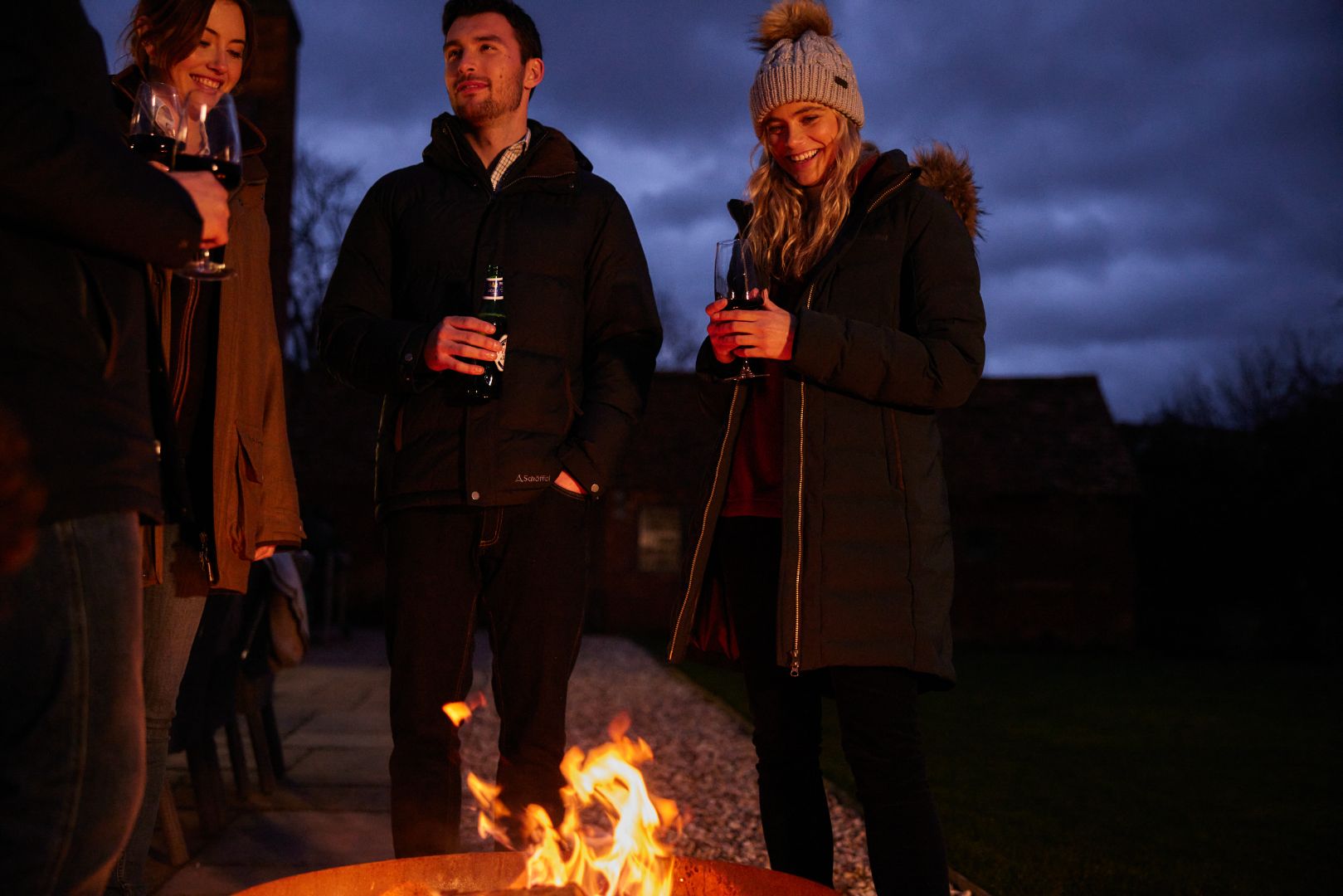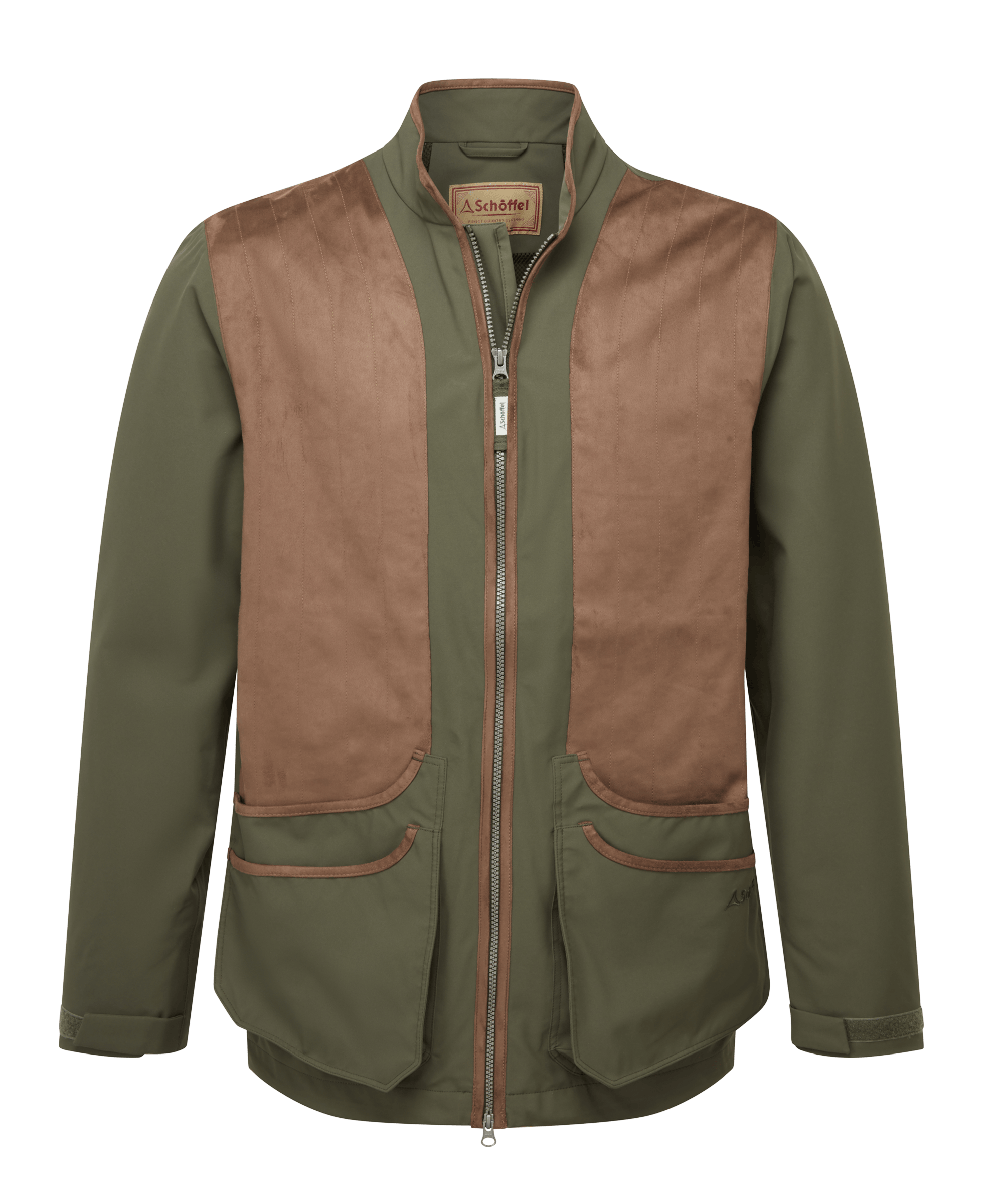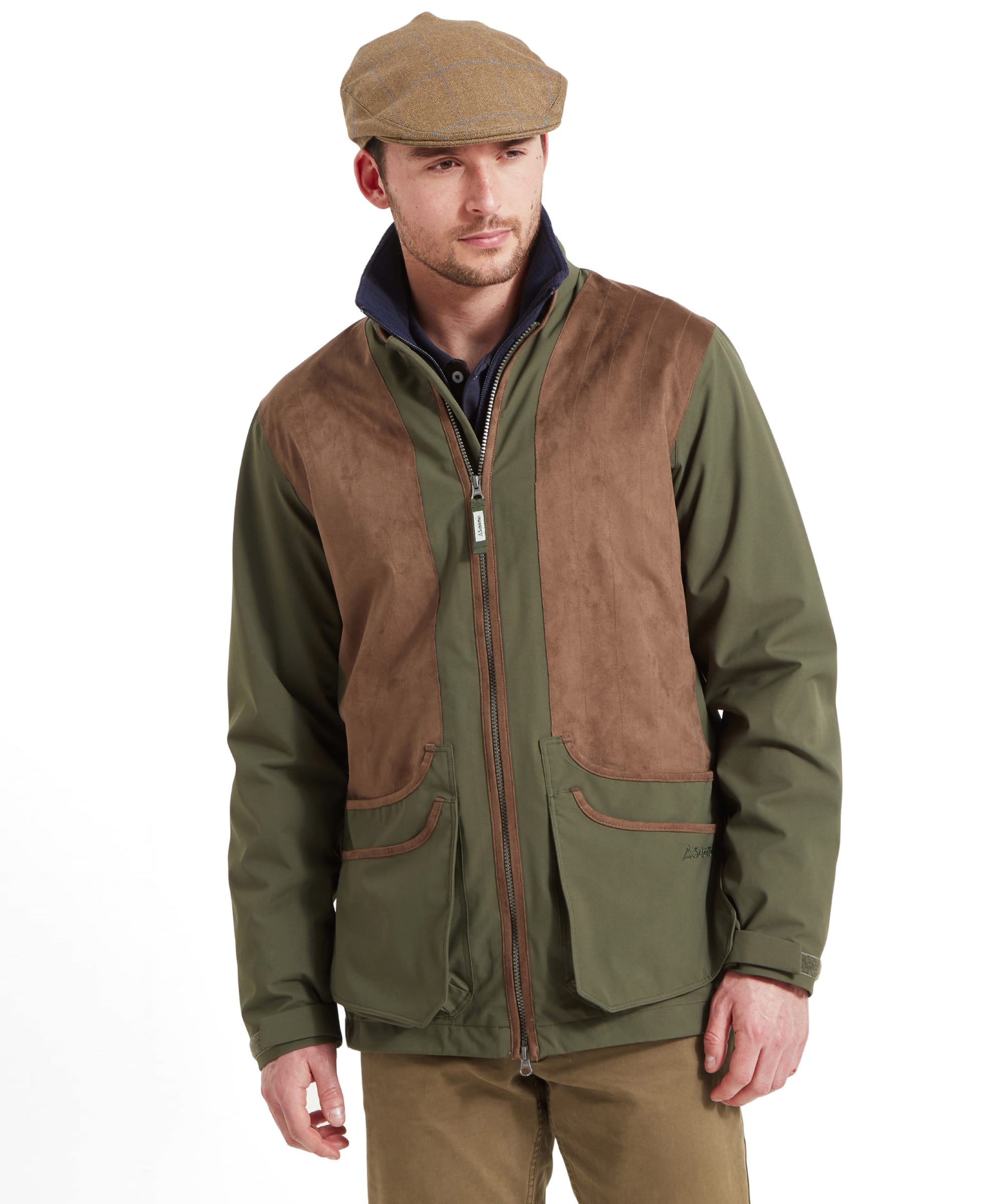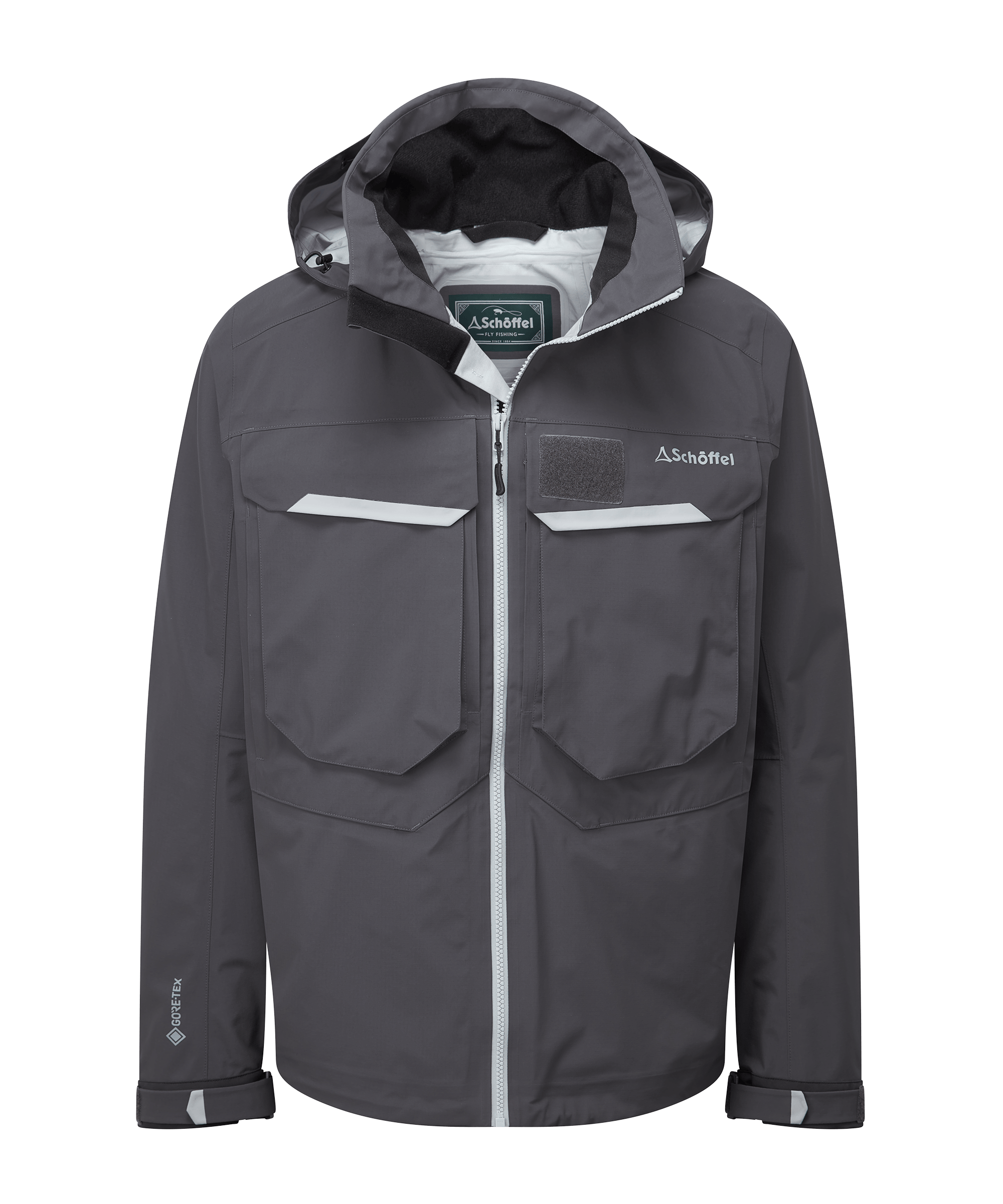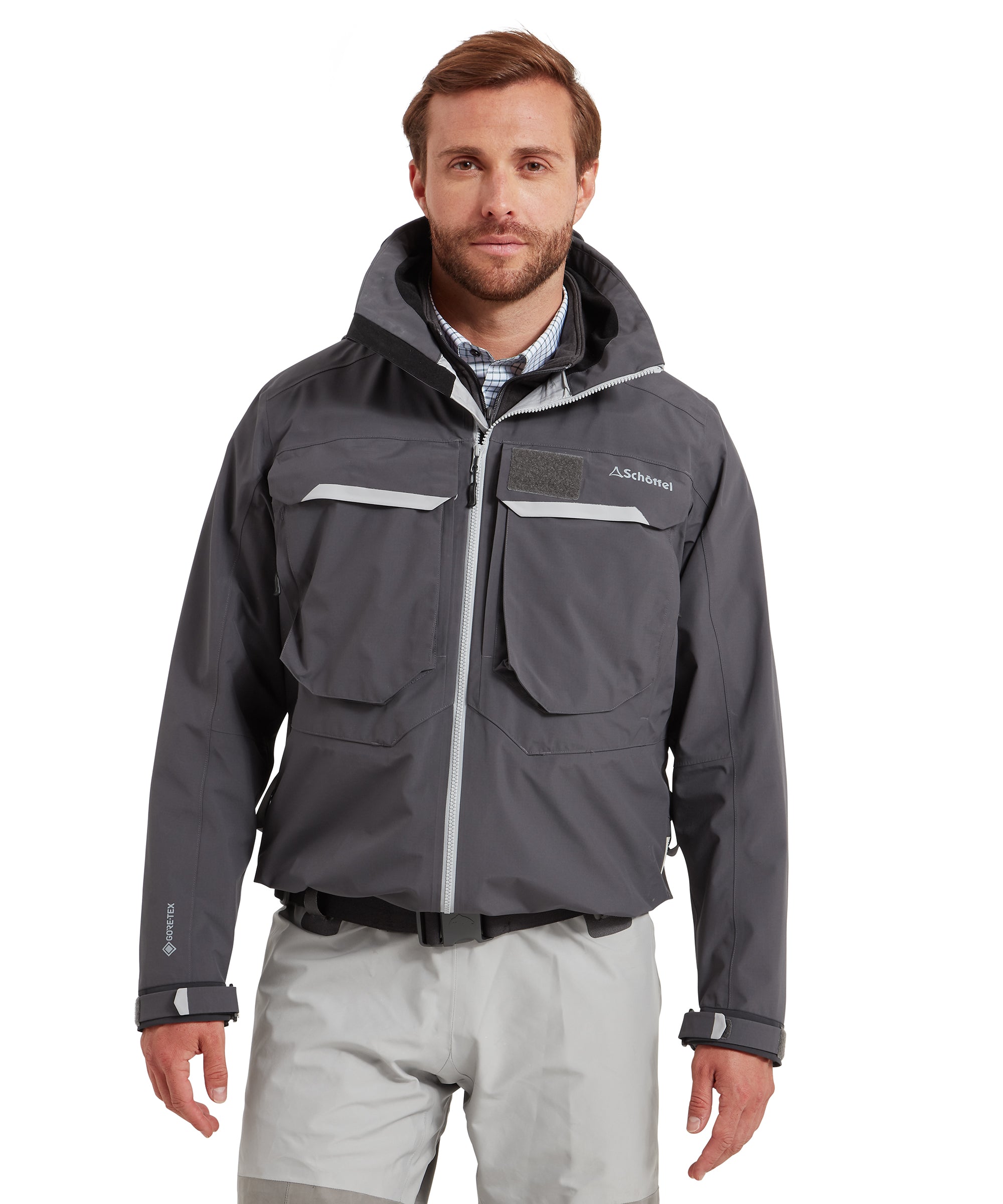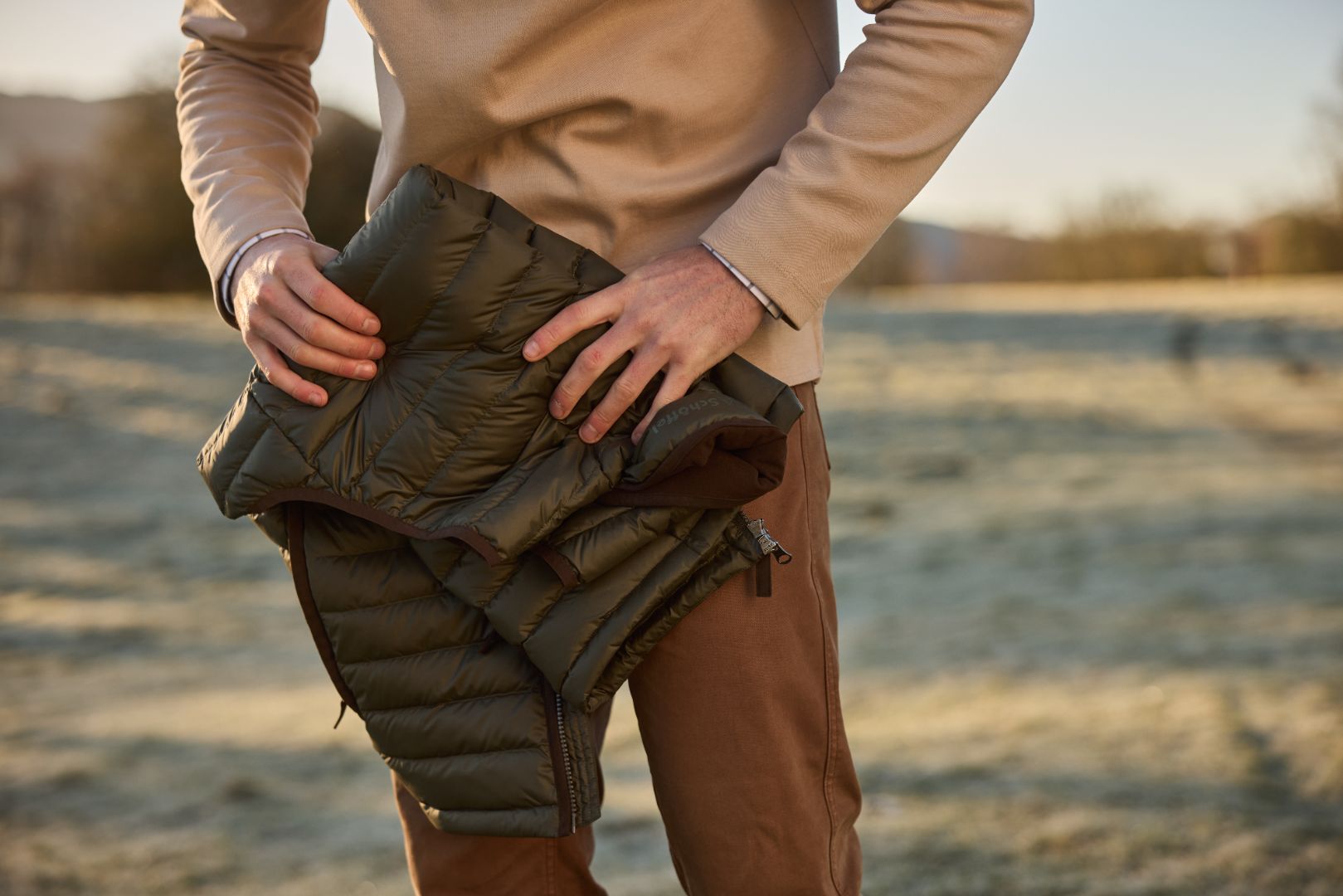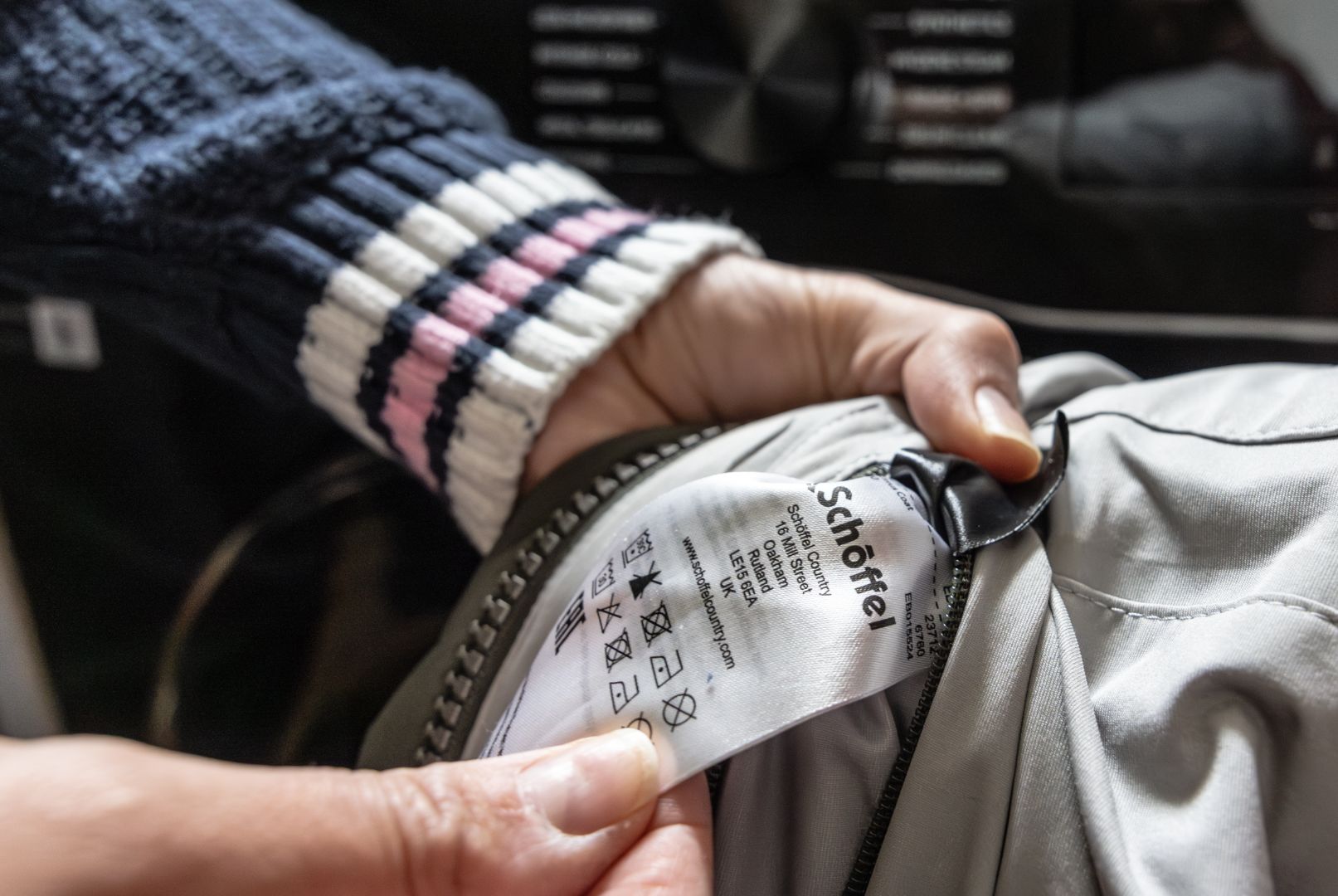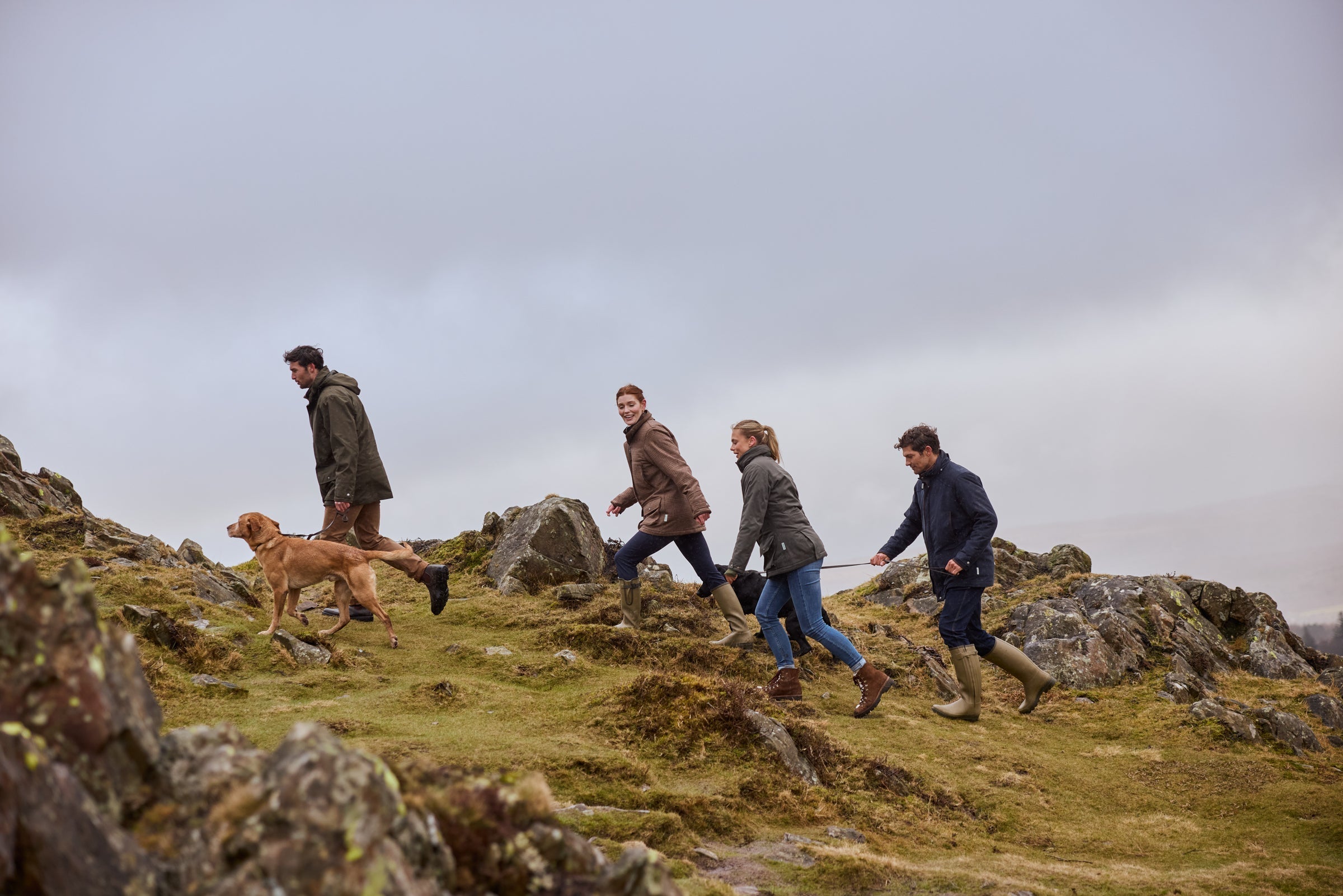

How to choose the right waterproof jacket for you
Whether you're walking the dog, heading into town, or hiking in the hills, the right waterproof jacket makes all the difference. In this expert guide, we explore waterproof ratings, breathability, fit and features – helping you choose the perfect waterproof jacket for comfort, protection and performance in any weather.
Looking for the best waterproof jacket for walking, hiking or everyday wear? From technical features to fit and fabric, our expert guide will help you choose the best waterproof jacket to suit your needs.
As the weather turns cooler and wetter, a high-quality waterproof jacket becomes an essential part of your outdoor wardrobe. Whether you're walking the dogs, hiking in the hills, on the school run, or simply navigating everyday life in the British countryside, staying dry and comfortable is key.
But with so many styles and technologies available – from packable rain jackets to durable, fully waterproof outer shells – how do you choose the right waterproof jacket?
At Schöffel Country, we combine technical performance with timeless country style. Every detail in our waterproof jackets is carefully considered – from breathable membranes and taped seams to practical features like adjustable hoods and storm cuffs, so you can enjoy the outdoors in comfort, whatever the weather.
Understanding waterproof ratings
Not all waterproof jackets are created equal – and understanding waterproof ratings is key to choosing the right level of protection for your needs. Whether you're facing light drizzle or heavy, sustained rain, a fabric’s waterproof rating will tell you how well it can stand up to the elements.
In this section, we’ll explain how a jacket’s waterproof rating is measured, what those numbers really mean, and what to look for depending on how and where you’ll be wearing your jacket. From hydrostatic head measurements to breathability considerations, we’ll help you understand the technical terminology so you can make a confident, informed choice.
What is ‘water column’ and what does ‘hydrostatic head’ measure?
The term ‘water column’ refers to how waterproof a fabric is, and it's measured using something called the hydrostatic head test. In simple terms, it shows how much water pressure a material can withstand before it starts to let moisture through.
The number you’ll often see – say, 5,000mm or 20,000mm – represents the height of a column of water that can sit on the fabric before it leaks. The higher the number, the more waterproof the material. For example, 5,000mm is suitable for light showers and everyday wear, while 20,000mm or more is ideal for prolonged exposure to heavy rain or more demanding outdoor activities. It’s a useful way to compare performance and find the right level of protection for your chosen pursuits.
Breathability vs waterproofing
While staying dry from the rain is crucial, staying dry from within is just as important—especially if you’re walking at pace or wearing your jacket for extended periods. That’s where breathability comes in. A breathable waterproof jacket allows moisture vapour (like sweat) to escape, helping to regulate your temperature and prevent that uncomfortable clammy feeling. The more active you are, the more important this becomes.
Of course, waterproofing remains key – but it’s the balance between the two that makes a jacket truly effective. Look out for technical fabrics with breathable membranes and features like ventilation zips, which allow excess heat to escape without compromising protection from the elements.
At Schöffel Country, we use several types of membrane system and technologies in our technical waterproof jackets – including Venturi and Toray Dermizax – all of which offer protection from the rain and overheating.
Understanding breathability ratings
Breathability is often measured by Moisture Vapor Transmission Rate (MVTR), in grams (g/m²/24h), which refers to how much moisture vapour can pass through a square metre of fabric in 24 hours. For example, a jacket with a 10,000g/m²/24h rating allows 10,000 grams of vapour to escape in a day – suitable for general outdoor use and moderate activity.
For more active pursuits like fieldsports, hiking or hillwalking, look for jackets rated 15,000g/m²/24h or higher, which offer greater moisture management. Beyond the numbers, it’s also worth paying attention to practical features that enhance breathability, such as adjustable cuffs and hems, which help air circulate and prevent overheating while keeping you dry.
Another way breathability is measured is through RET (Resistance of Evaporation of a Textile). Unlike MVTR, where higher numbers indicate better breathability, RET works in reverse – the lower the RET value, the more breathable the fabric. RET measures how much resistance a fabric gives to moisture vapour passing through it, with anything under 6 considered highly breathable, while values over 20 are typically seen as less suitable for active use. It’s a useful metric, particularly when comparing technical garments, and helps you choose a jacket that performs well when it comes to managing internal moisture and keeping you comfortable on the move.
Water-resistant vs waterproof
It’s easy to assume that water-resistant and waterproof mean the same thing – but there’s an important difference. Water-resistant jackets offer a basic level of protection, typically enough to keep you dry in a light shower, but they won’t hold up in sustained or heavy rain. The fabric may repel water initially, often thanks to a DWR (durable water-repellent) coating, but without a waterproof membrane or sealed seams, water can eventually soak through. In contrast, waterproof jackets are built to withstand much wetter conditions, using materials that block out rain entirely, along with features like taped seams, storm flaps, and waterproof zips. If you’re heading out in unpredictable or persistent weather, waterproof is the way to go.
Types of waterproof jackets
Lightweight and packable waterproof jackets
Of course, there are many types of waterproof jacket, each with its own merits for different situations and seasons. Lightweight waterproof jackets or waterproof shell jackets are favoured by those who prefer to layer beneath their coat for warmth and do not want extra bulk or insulation. They serve as a guard against the rain and that is it. Easy to carry if the sun makes an appearance, and perfect for active situations where complete freedom of movement is preferred, these jackets are also very versatile and can be used right the way through the year.
Some of our lightweight waterproof jackets at Schöffel Country even pack away into an internal pocket – packable jackets are very convenient and are the ideal choice for long walks or hiking in changeable weather, as they can be quickly stowed into a rucksack or bag.
Insulated waterproof jackets
In colder conditions, some favour waterproof coats with in-built insulation. Insulated waterproof jackets are ideal for cold, wet conditions when you want warmth and protection in one piece – perfect for standing still on shoot days, on the touchline watching sport, or for winter walks and frosty mornings. They’re convenient, low-fuss, and often use down or synthetic fill – like PrimaLoft – to trap heat while keeping rain out.
At Schöffel Country, we have a range of insulated waterproof jackets. Some styles are more casual and excel in versatility, while others are designed specifically for the shooting field or for fly fishing. All of our styles benefit from meticulous attention to detail during the design stage, quality fabrics, and proven technologies.
Some coats feature a greater level of insulation than others, which is why we have ratings for ‘warmth’, shown clearly on sliding scales across our prduct page
Durable waterproof jackets
Durability is a key consideration when choosing a waterproof jacket, particularly if you need a jacket for walking through rough terrain where there is likely to be coarse vegetation like thorns and brambles.
Some jackets use hardwearing ‘ripstop’ outer fabrics, while others are made using a polyester and cotton mix for extra durability.
Features like high-quality zips, taped seams, and robust stitching also contribute to long-lasting performance. While lighter, packable jackets have their place, they’re not always built for tough use. If you’re looking for a jacket that will see you through many seasons, it’s worth choosing one designed with durability in mind – especially for more rugged or repeated use.
Consider the jacket use before buying
The best waterproof jackets for hiking and walking
A reliable waterproof hiking jacket needs to strike the right balance between protection, comfort, and practicality. First and foremost, it should offer a high waterproof rating – ideally with fully taped seams, a durable water-repellent (DWR) finish, and a breathable membrane to keep you dry inside and out.
A well-fitting, adjustable hood is essential for keeping rain off your face without restricting vision. You’ll also want a jacket that’s lightweight yet durable, with enough room to layer underneath if needed. Thoughtful details like secure pockets, and adjustable cuffs and hems all enhance performance when walking or hiking, making your time outdoors more enjoyable, no matter what the weather brings.
The best waterproof urban jackets
When it comes to waterproof jackets for urban wear, performance is still key – but so is style, comfort, and everyday practicality.
A great urban waterproof should offer reliable protection from sudden downpours – look for a solid waterproof rating, taped seams, and a DWR finish – while maintaining a streamlined, versatile silhouette that pairs well with your day-to-day wardrobe.
Breathability remains important, particularly for commuting or walking between appointments, and lightweight insulation or a smart liner can add warmth without bulk.
Practical features such as a stowaway hood, discreet pockets for essentials, and adjustable cuffs help keep you dry without compromising on looks. The ideal urban waterproof performs in poor weather but blends effortlessly into your routine – whether you’re heading to the office, walking the dog, or running weekend errands around town.
The best all-rounder waterproof jackets
If you're after one jacket that can handle a bit of everything – from countryside walks and weekend hikes to the school run or a sudden downpour in town – then a good all-rounder waterproof jacket is a smart investment.
The best all-rounders combine reliable waterproofing with everyday comfort, breathability, and versatile styling. Look for a mid-weight construction that’s light enough for layering but still offers enough protection for prolonged showers. A well-designed hood, taped seams, adjustable cuffs, and practical pocket placement are all marks of a jacket built for real-life use. Ideally, it should move well with you, suit a range of outfits, and feel just as at home in the countryside as it does on the high street. If you want one jacket to cover most bases, this is the type to reach for.
Waterproof jacket care and maintenance
At Schöffel Country, we take pride in crafting high-quality waterproof jackets that are made to last. But even the most robust outerwear can suffer if not cared for correctly.
Improper washing, drying or storage can lead to misshapen fabrics, worn-out coatings, and reduced performance, ultimately cutting short the life of your investment. With the right care, however, your waterproof jacket can look better for longer and continue to perform season after season.
Below, we explain how to care for your waterproof coats and jackets, and share essential tips on cleaning, drying and storing your jacket properly.
How to properly wash a waterproof jacket
To keep your waterproof jacket performing at its best, it's essential to wash it correctly. Over time, dirt, sweat and oils can build up on the fabric, reducing both its breathability and water resistance.
The golden rule is to always check the garment’s care label. Almost all our waterproof jackets at Schöffel Country are machine washable and easy to care for, but instructions specific to each jacket – including the wash temperature and details on washing solutions – can be found on the care labels.
Standard detergents or fabrics softeners should never be used with waterproof jackets, as they can damage the waterproof membrane. And all zips and fastenings should be closed before washing.
View our other blog for more on how to care for winter jackets.
How to re-waterproof a jacket
Over time and after many uses, even the best waterproof jackets begin to lose their ability to repel rain as the durable water-repellent (DWR) coating wears off.
If water no longer beads on the surface and instead soaks into the fabric, it’s time to re-waterproof your jacket. First, give it a proper clean using a technical wash; dirt and oils can prevent new treatments from bonding effectively. Once clean and damp, apply a reproofing treatment – either a spray-on for targeted application or a wash-in for overall coverage – following the product instructions carefully. Reproofing your waterproof jacket restores its rain resistance, improves breathability, and ensures it’s ready to perform when the weather turns.
How to store a waterproof jacket
Proper storage is key to maintaining the performance and shape of your waterproof jacket when it’s not in use.
Always store it clean and completely dry, as putting away a damp jacket can lead to mildew, odours, and fabric damage. Avoid folding it tightly for long periods, too, as this can cause creases that weaken the waterproof membrane over time. Instead, hang your jacket on a wide, sturdy hanger in a cool, dry, and well-ventilated space, away from direct sunlight or heat sources, which can degrade technical fabrics and coatings.
If you're packing it away for the season, a breathable garment bag offers protection without trapping moisture. Storing your waterproof jacket correctly helps preserve its shape and extend its lifespan.
The Schöffel Country repairs service
At Schöffel Country, we stand behind the craftsmanship, performance, and longevity of every product we make. With over two centuries of heritage, our commitment to quality, innovation, and technical design continues to shape every collection – helping you enjoy the outdoors with confidence.
To reflect this, we offer a comprehensive warranty programme across our range. Sitting alongside this is our repairs service. If your garment is still inside the specified prodeuct warranty period, out team will assess the level of damage and arrange repair if possible.
Some repairs, such as zips, press studs, and buttons, are carried out in house by our team, while others are outsourced to the very highly regarded Scottish Mountain Gear.
